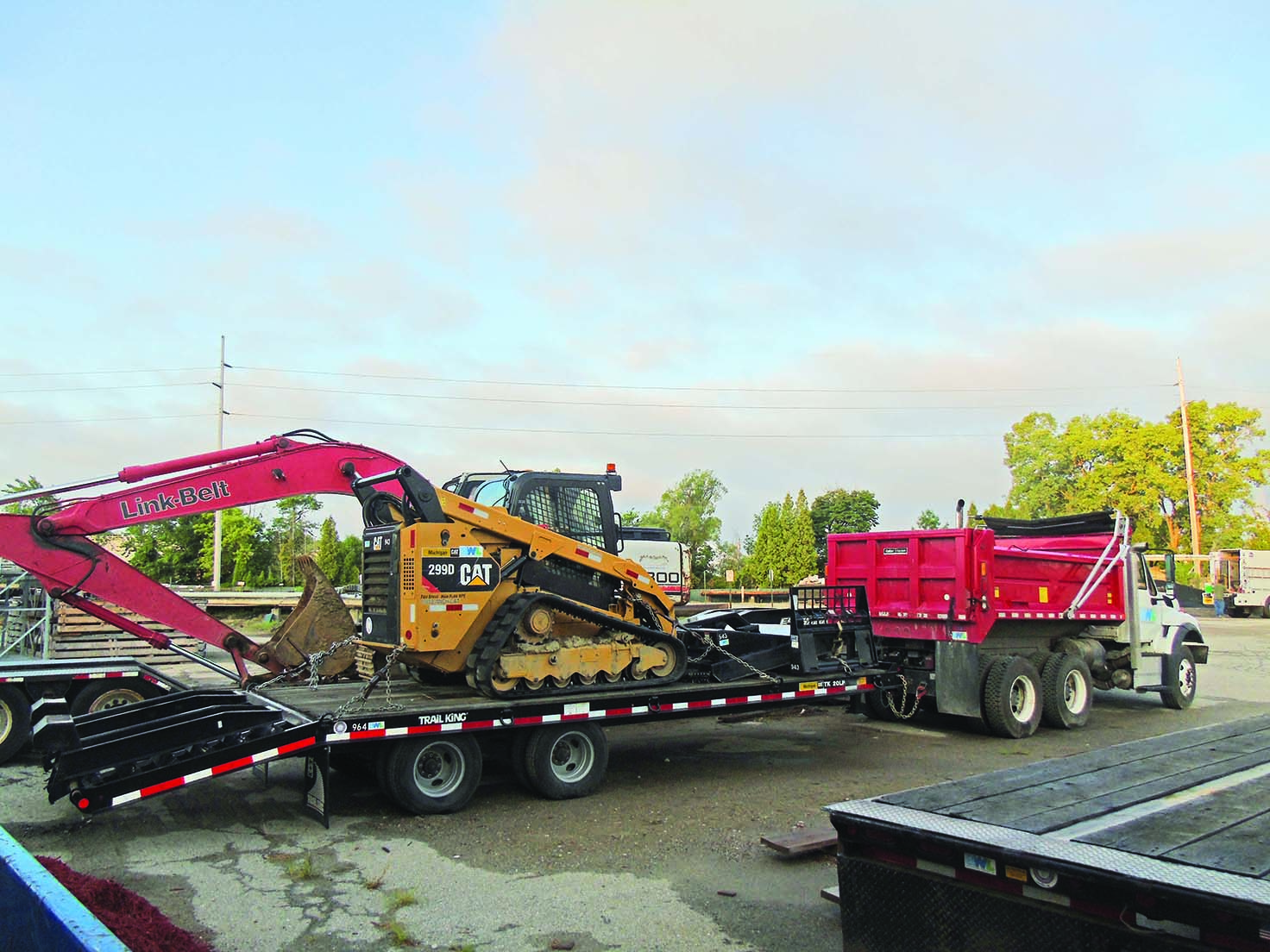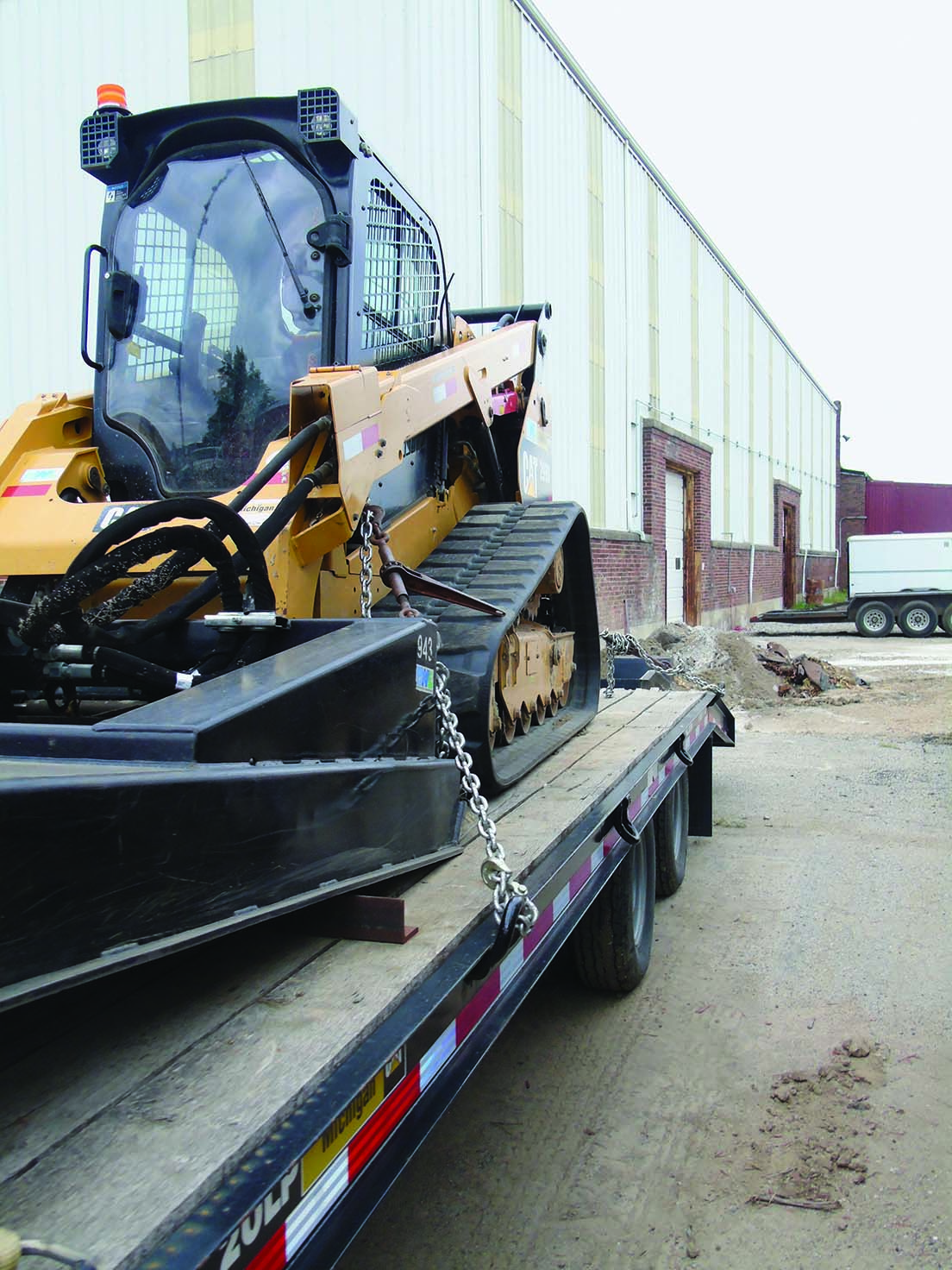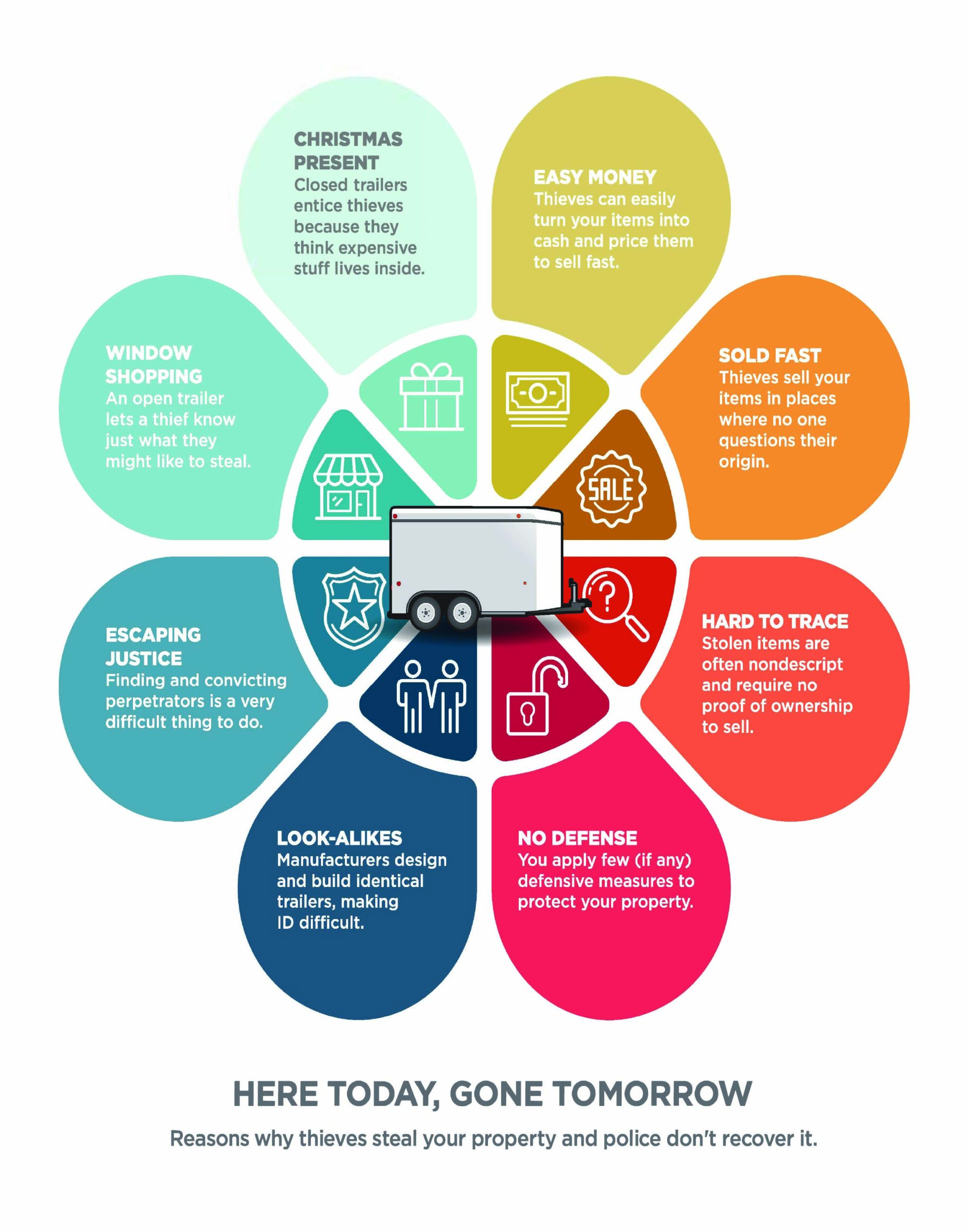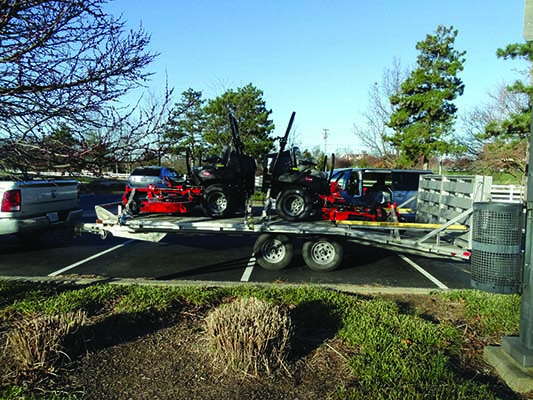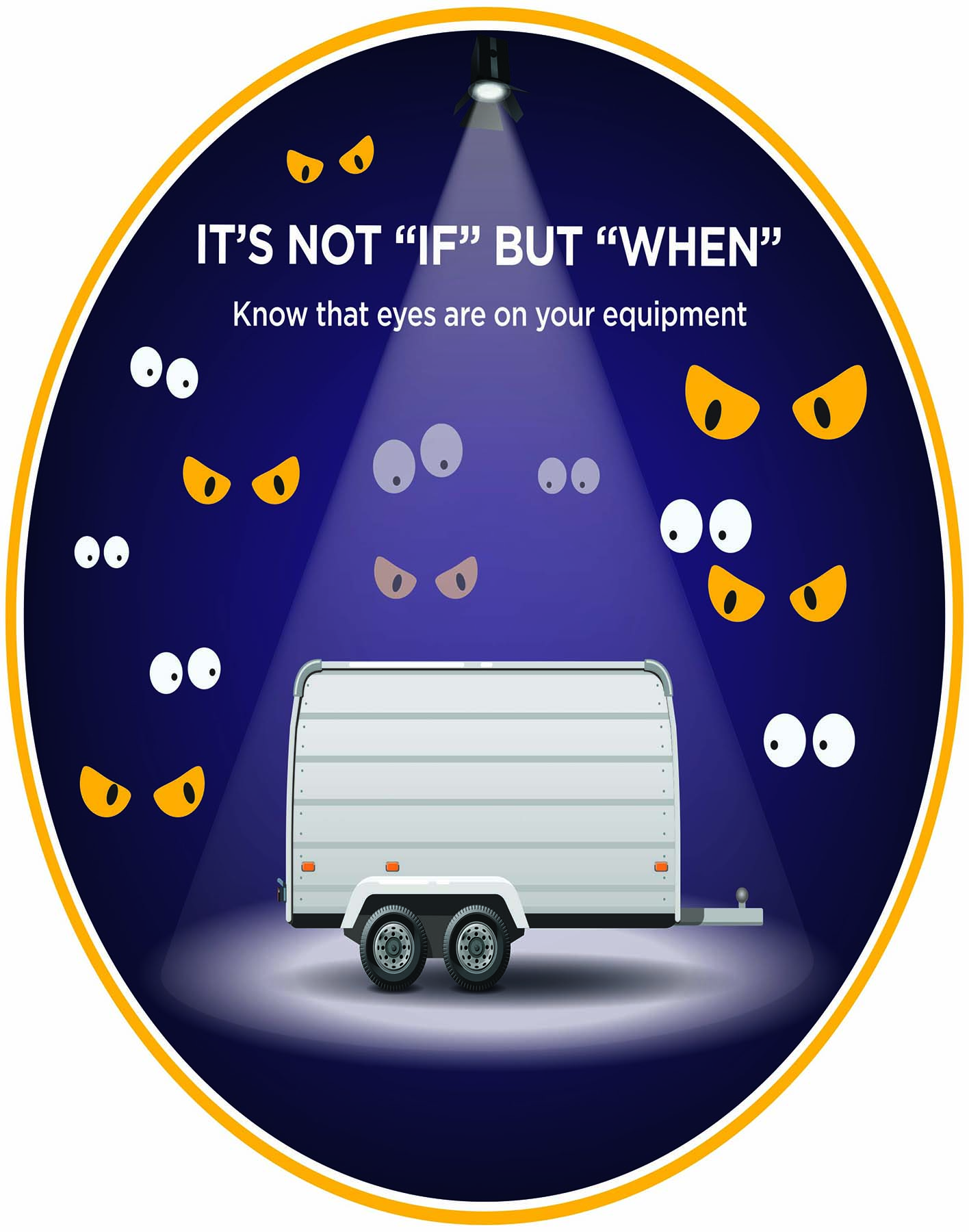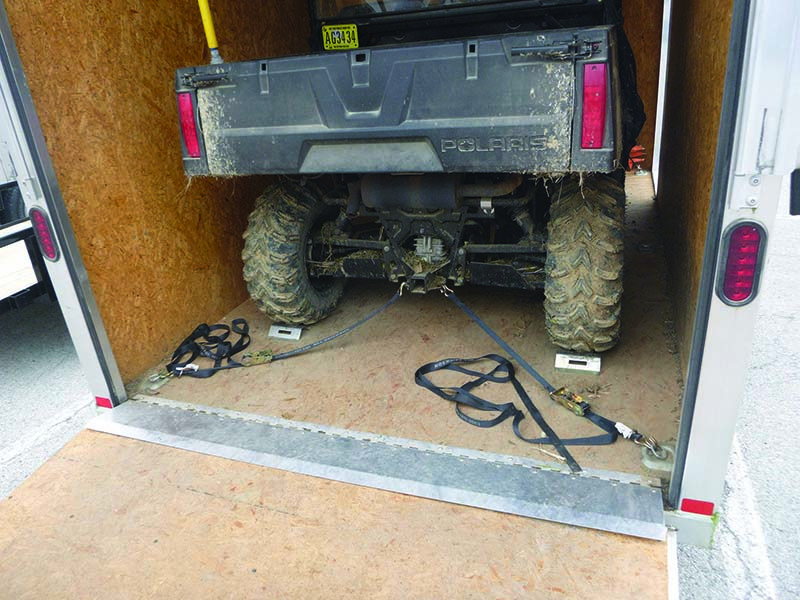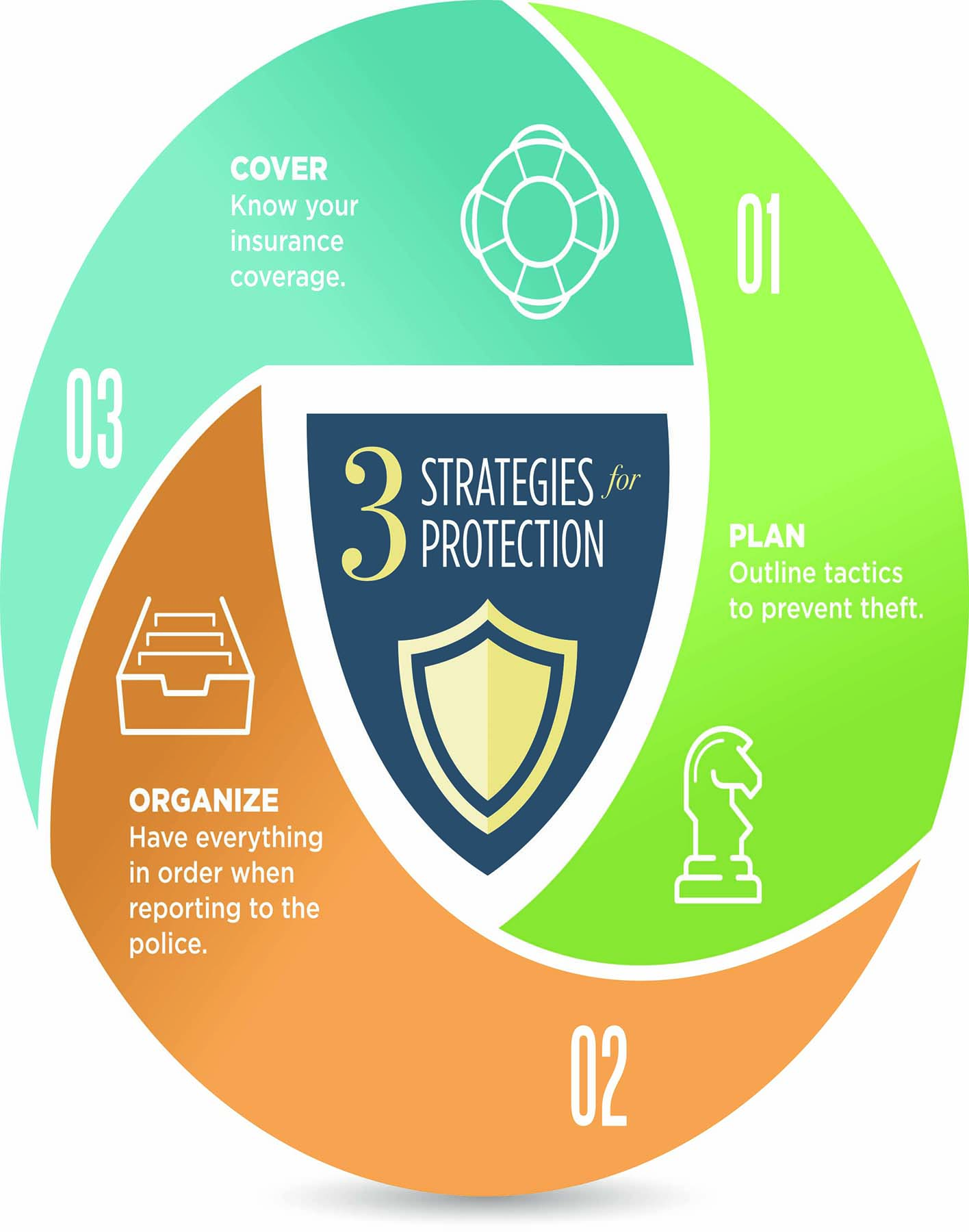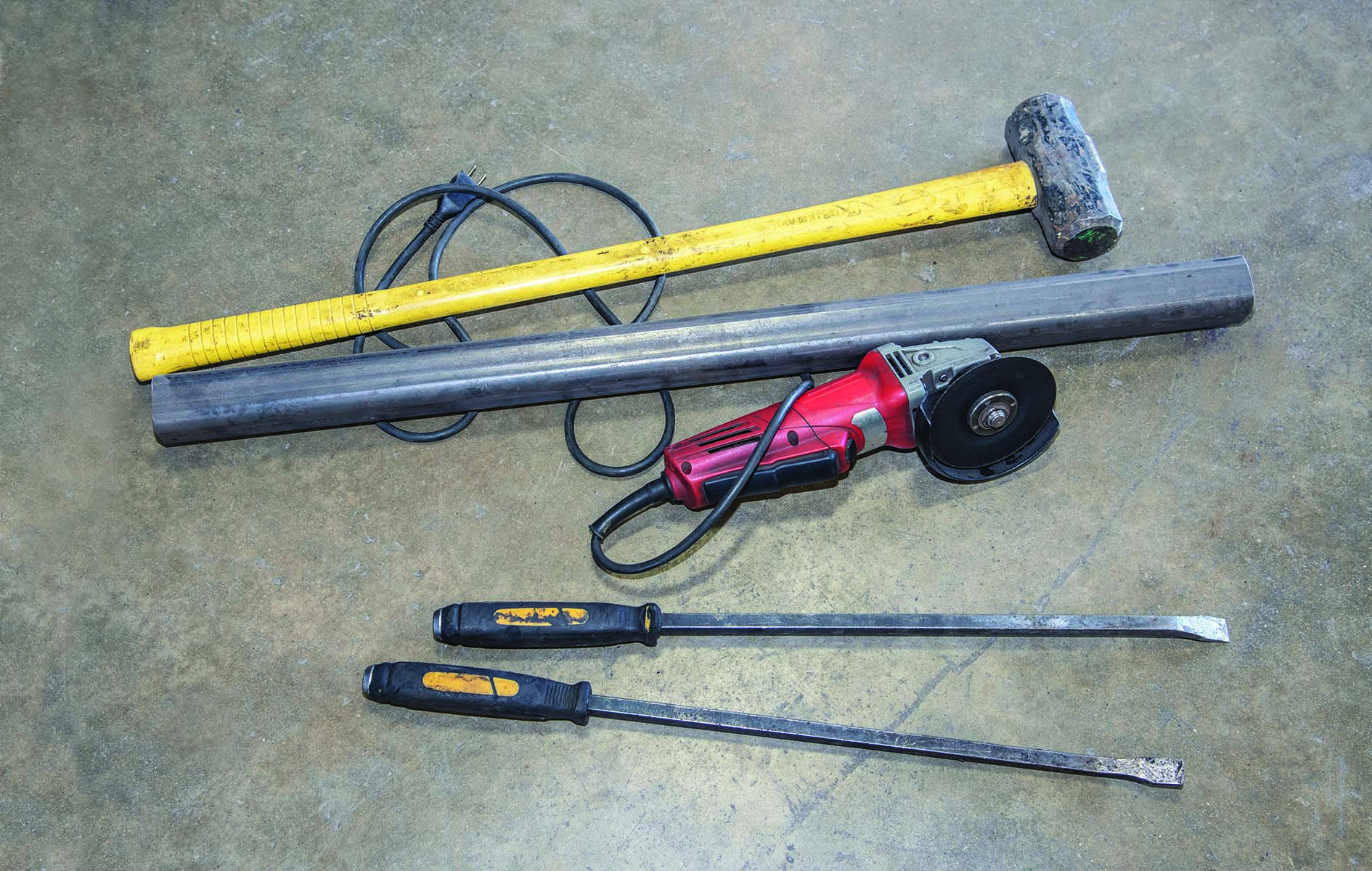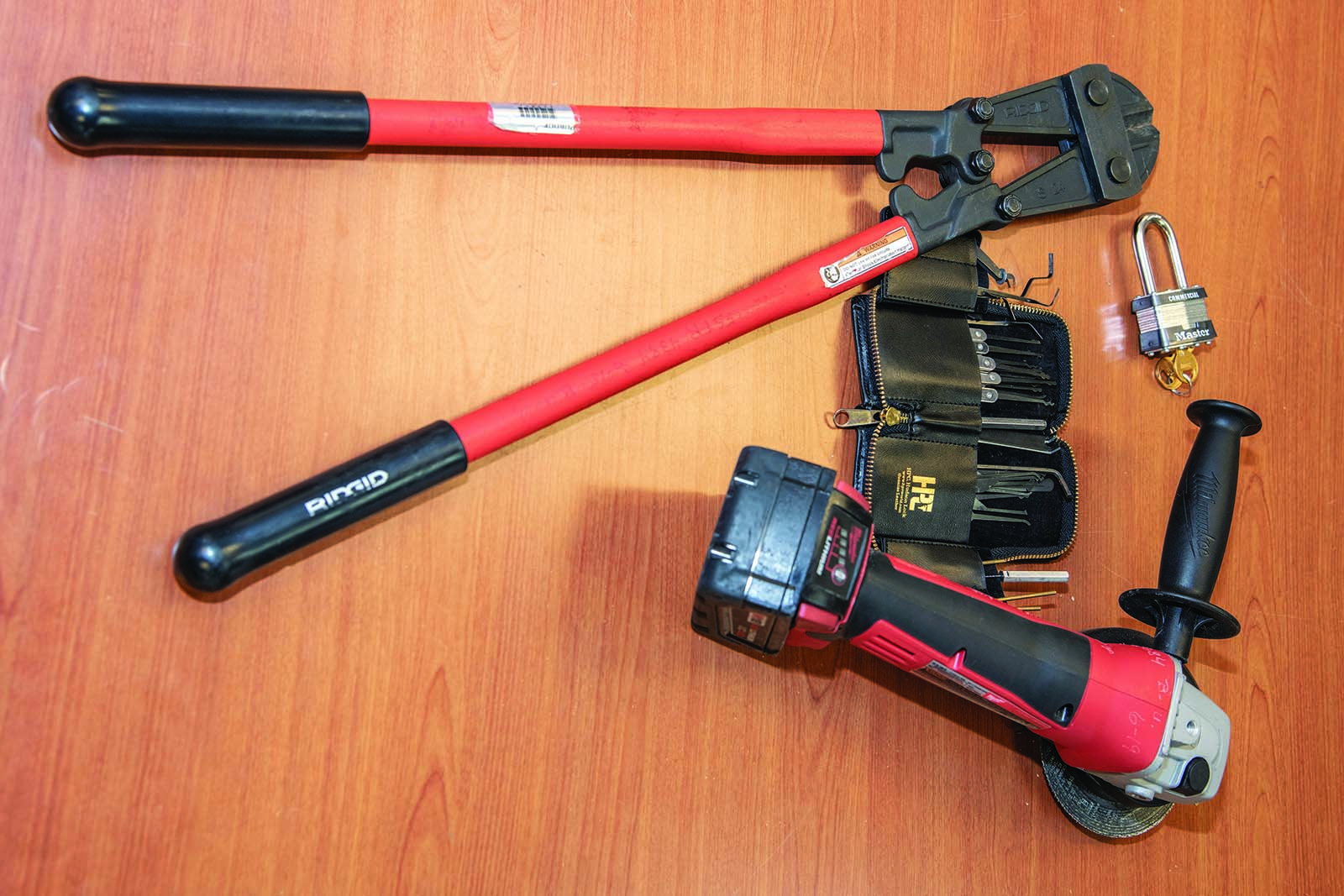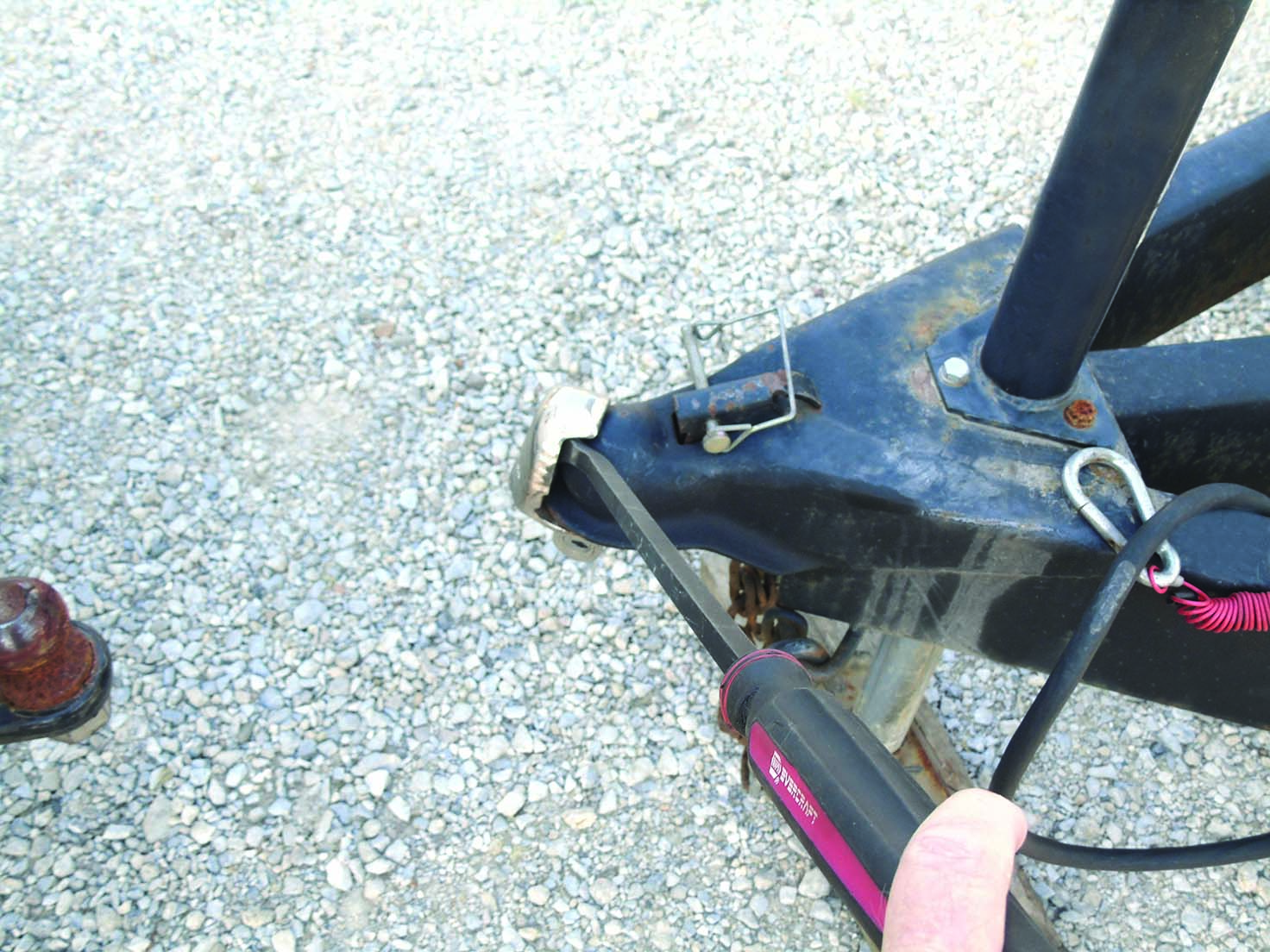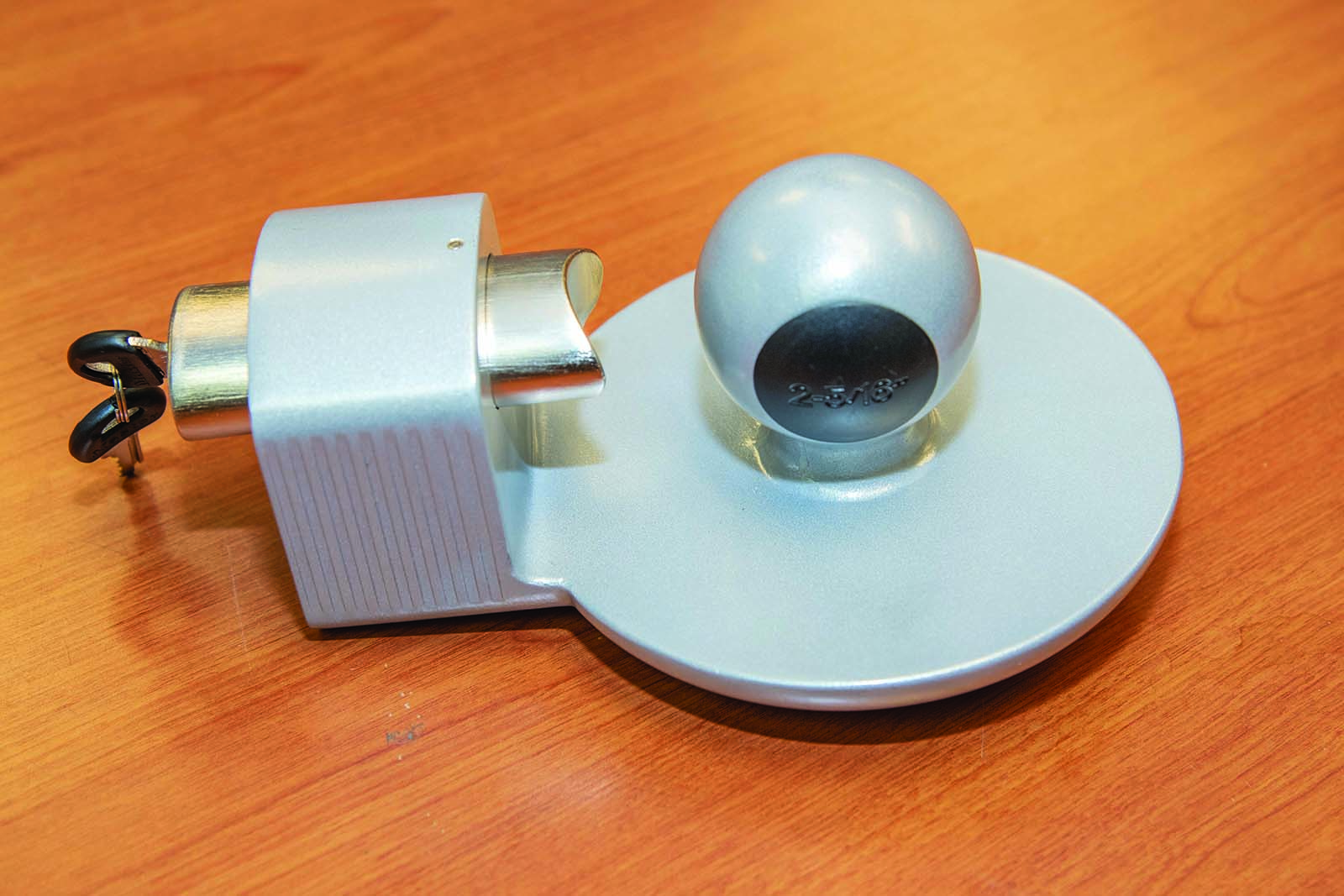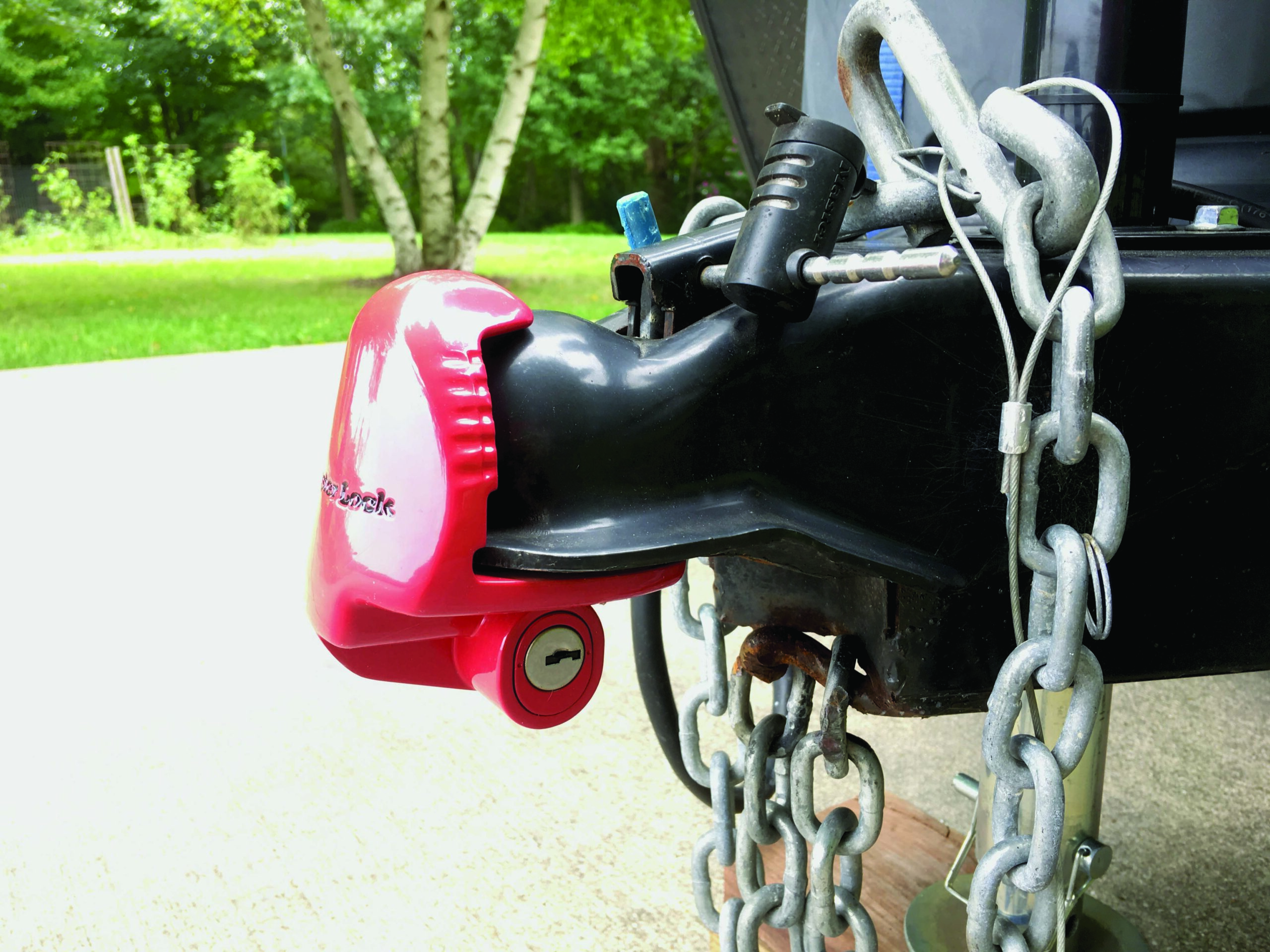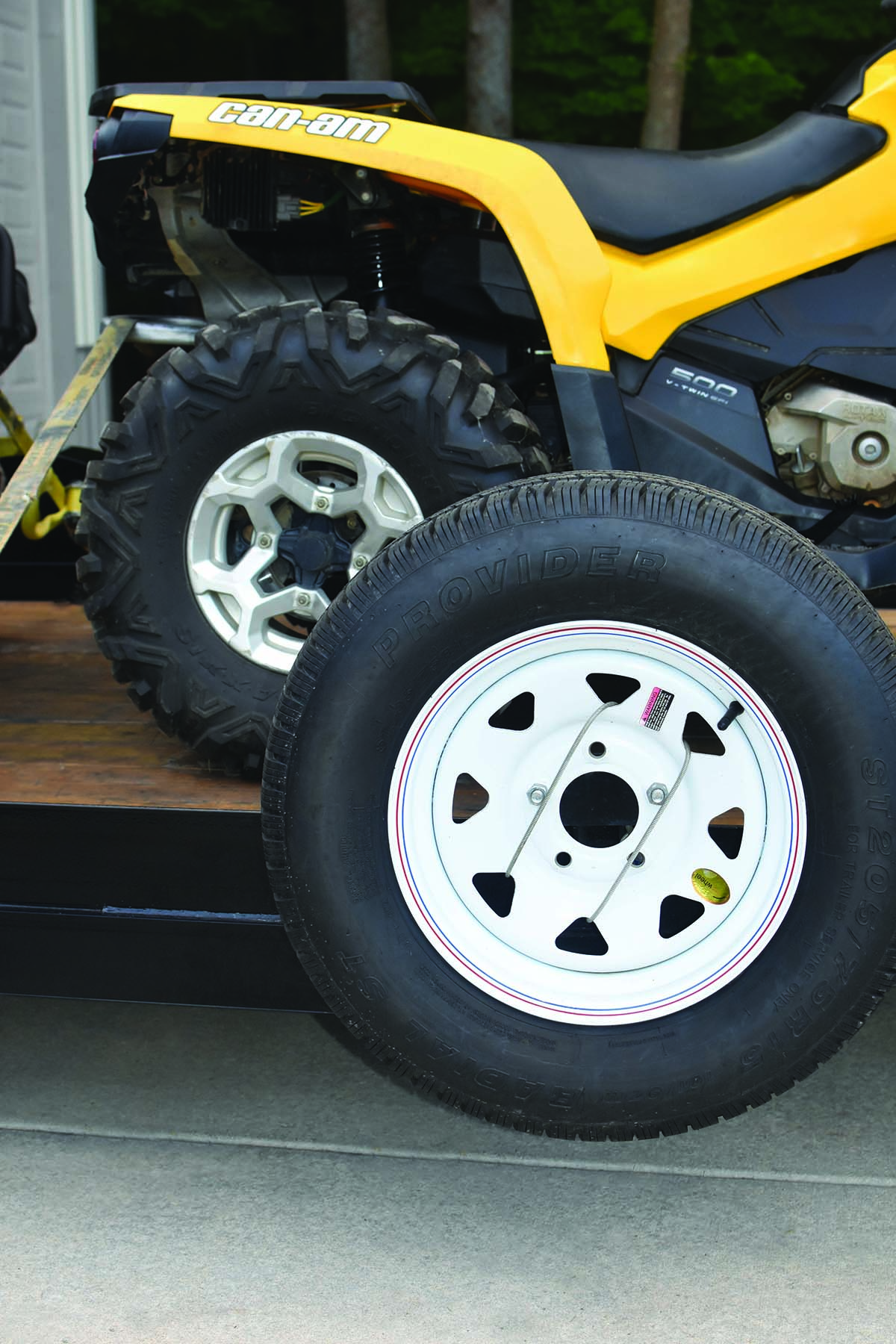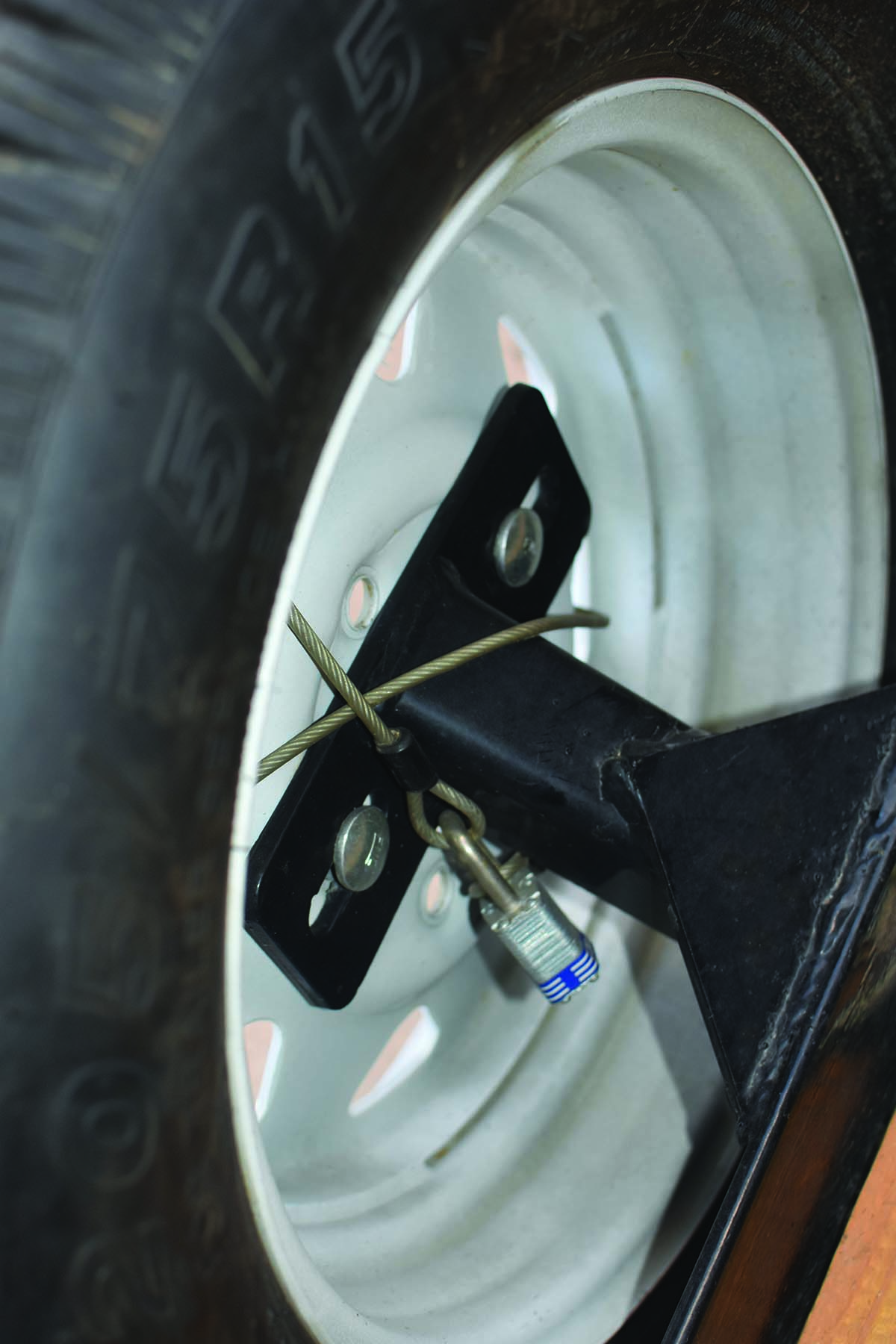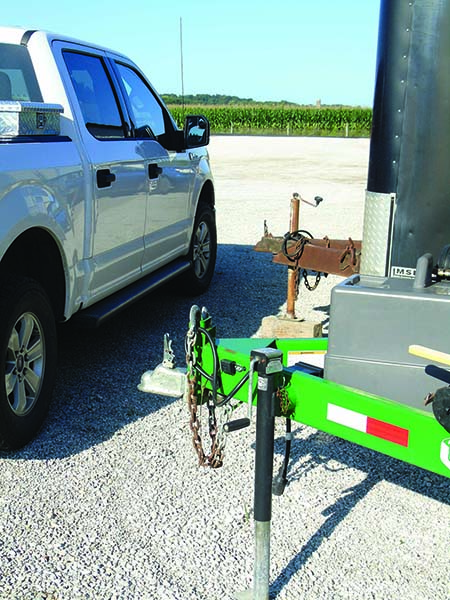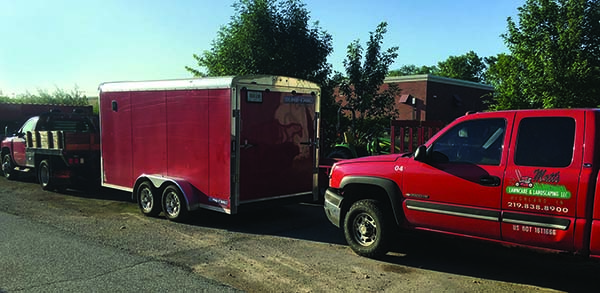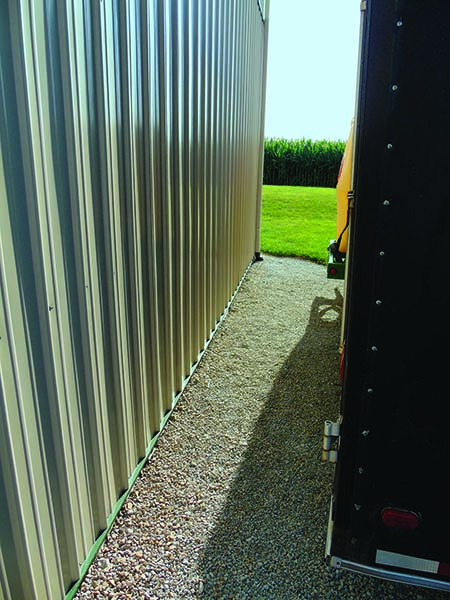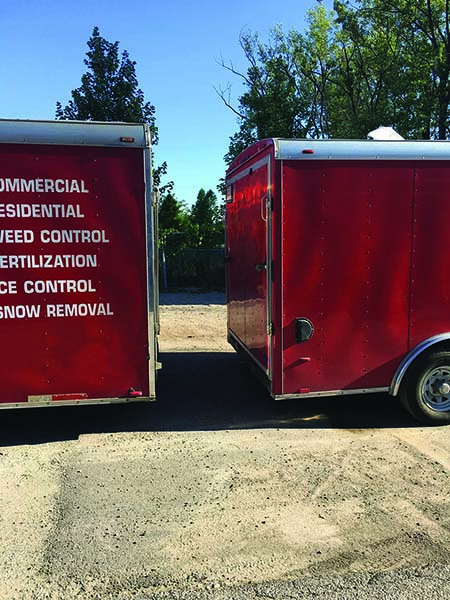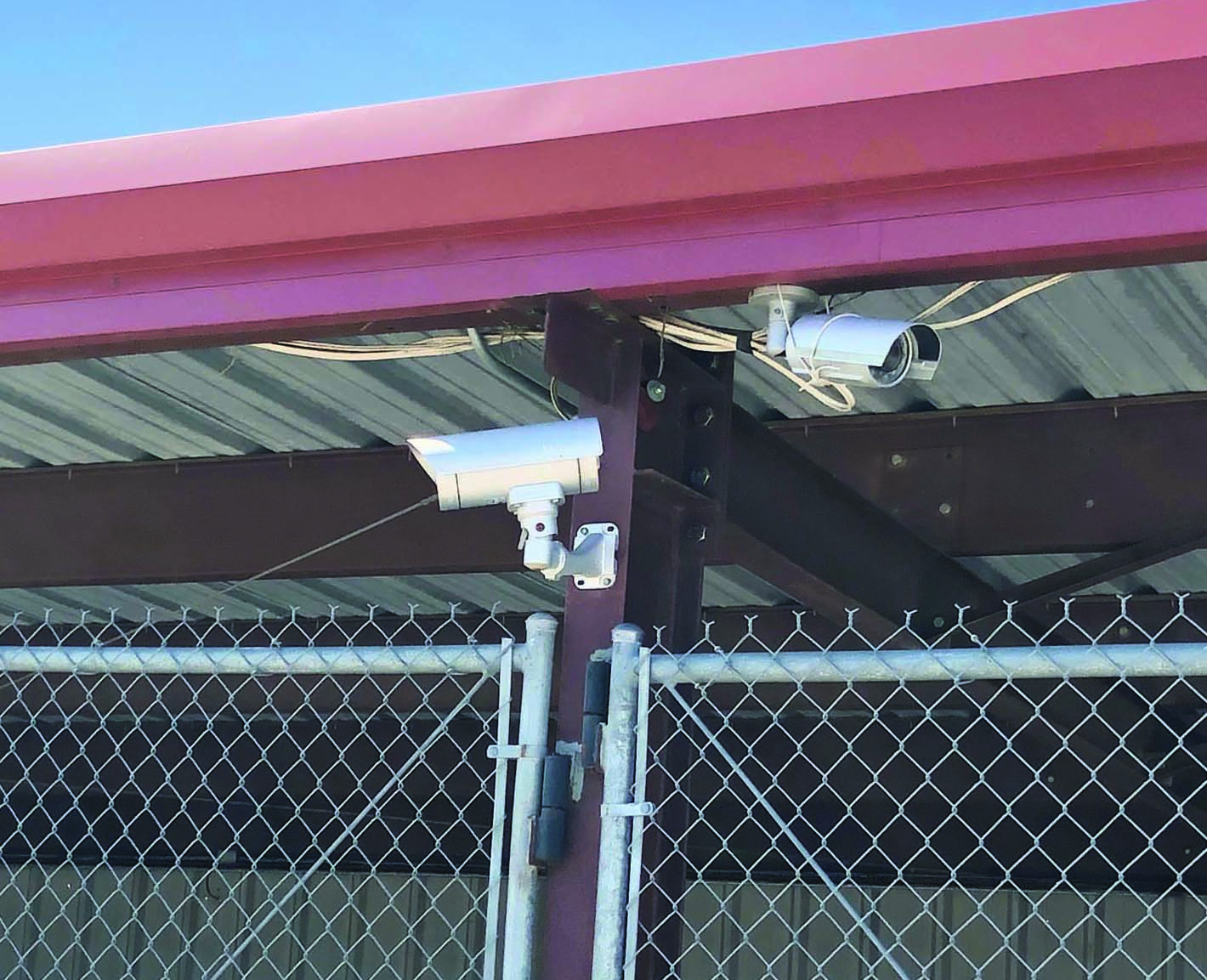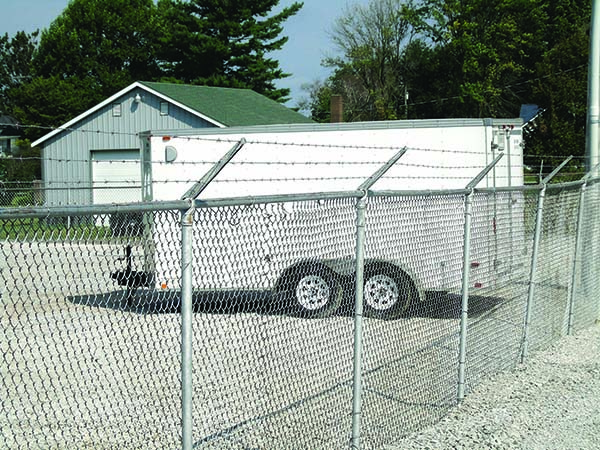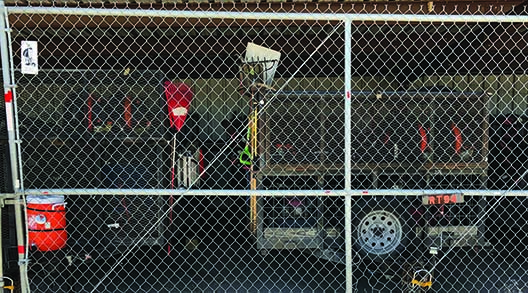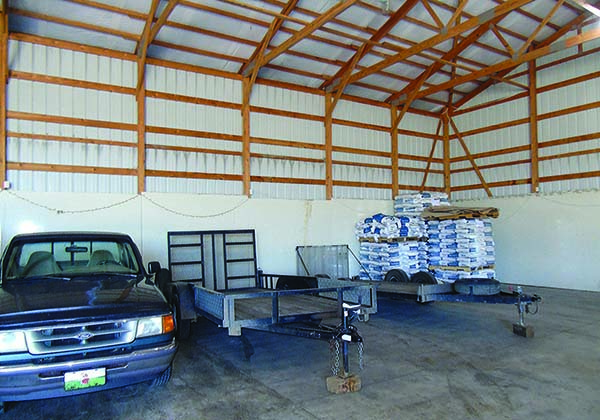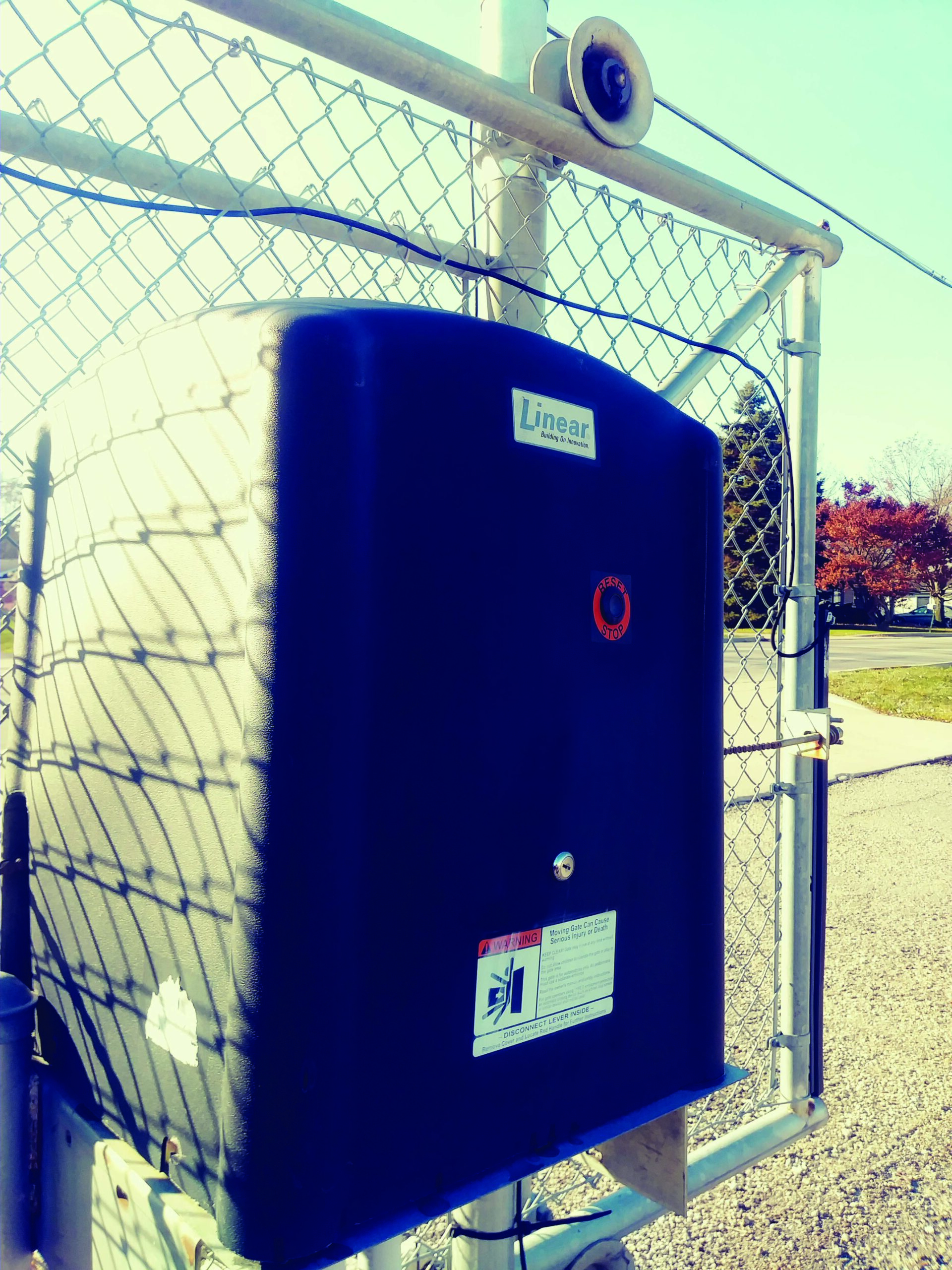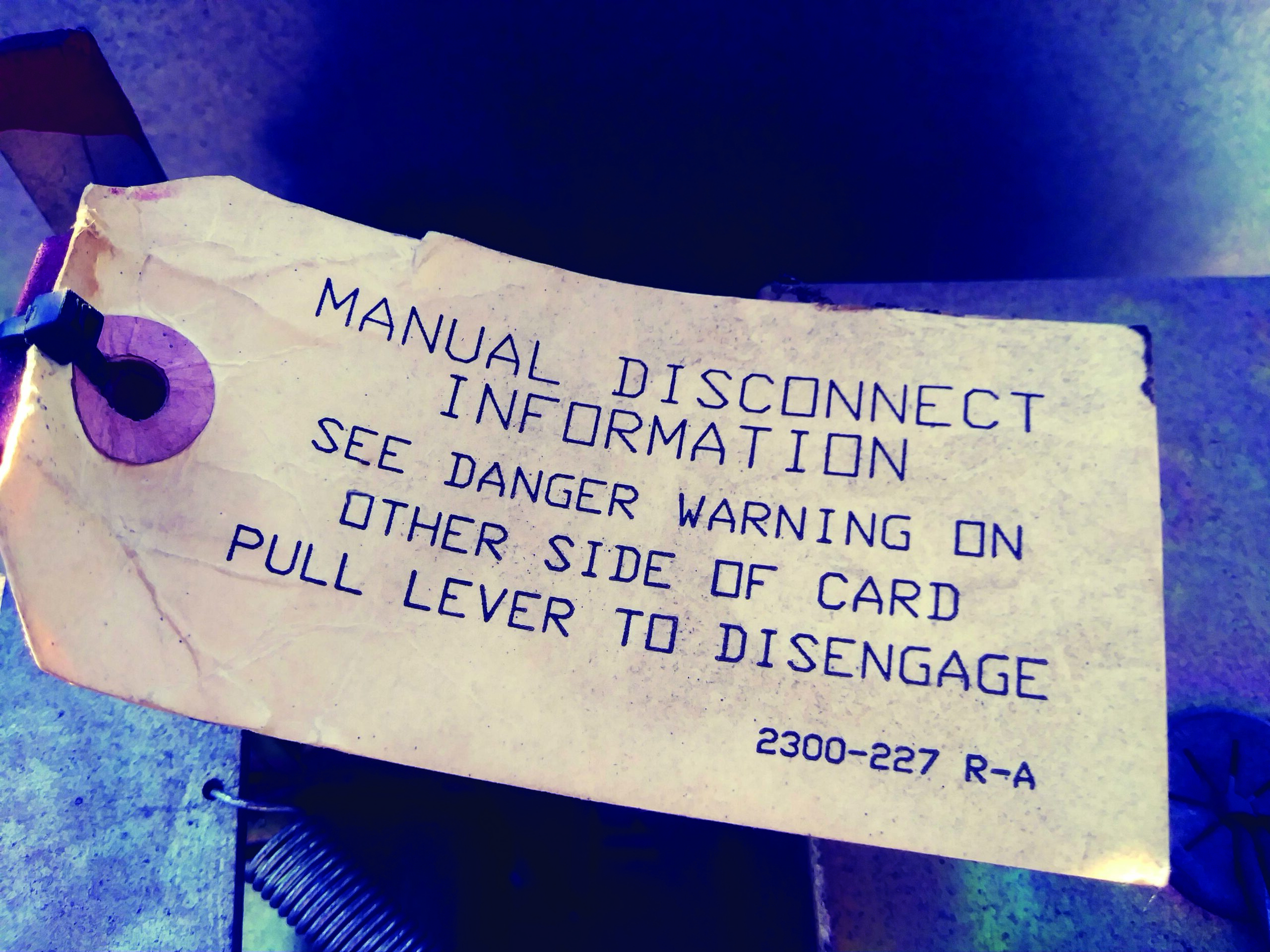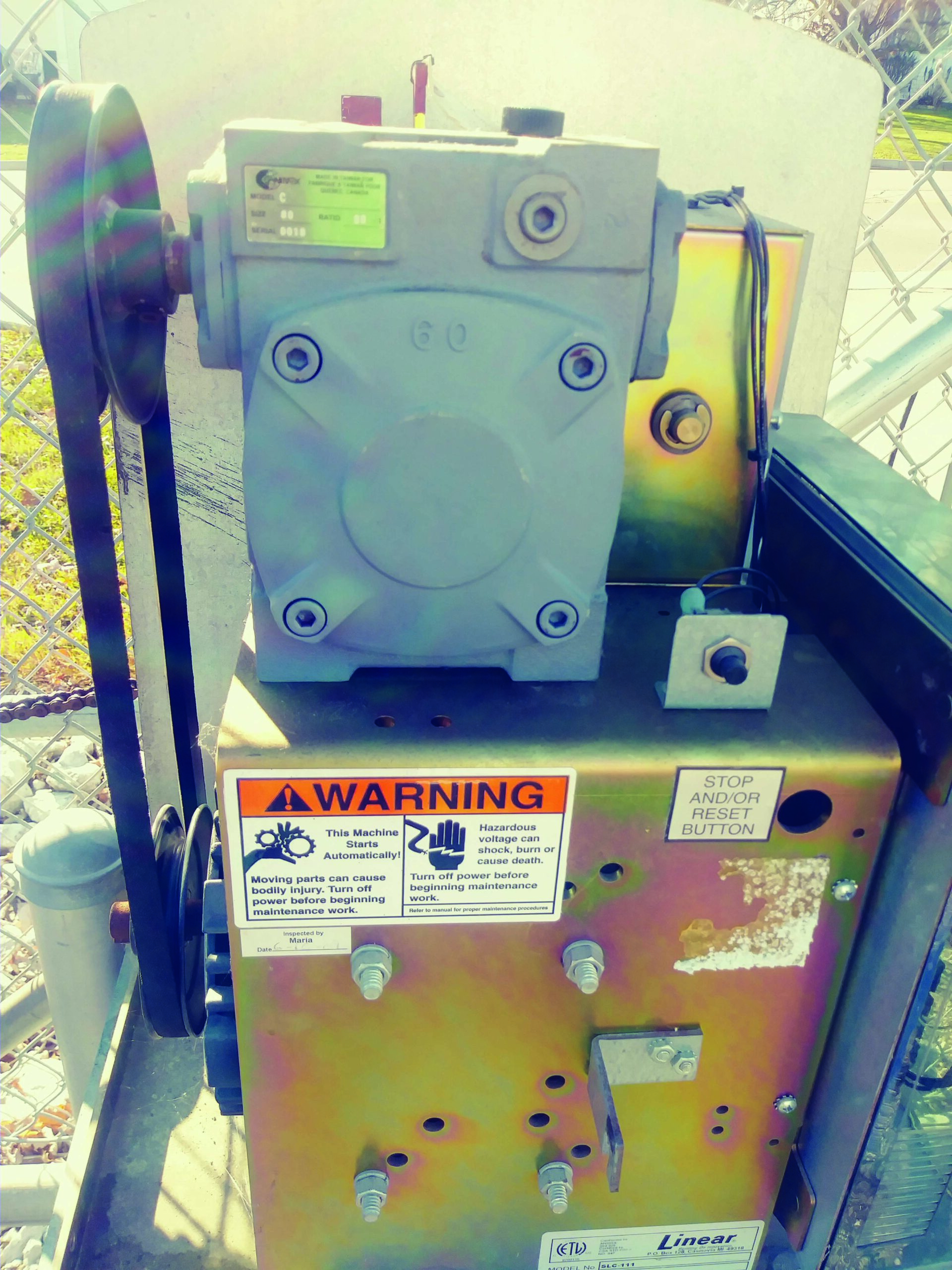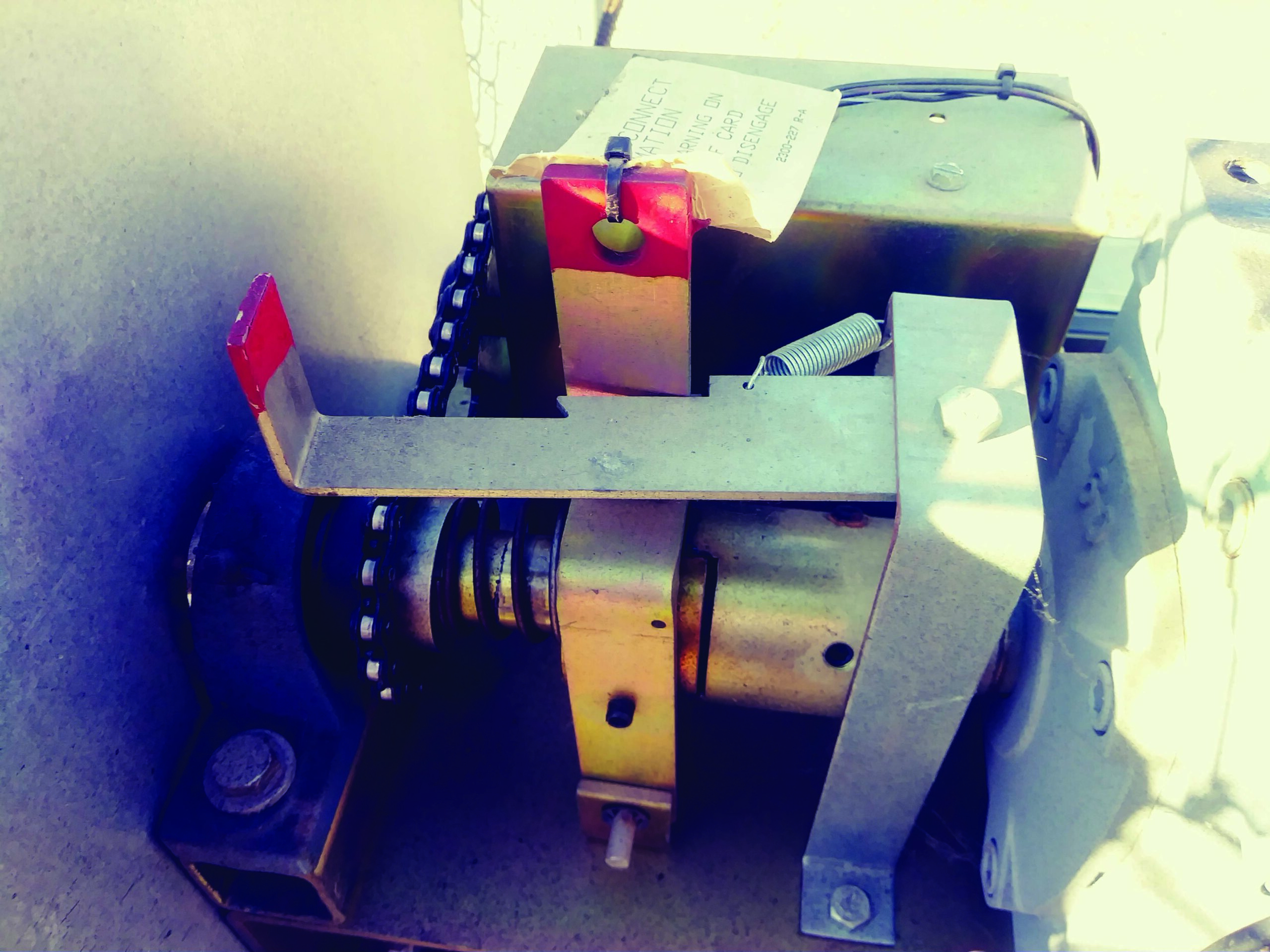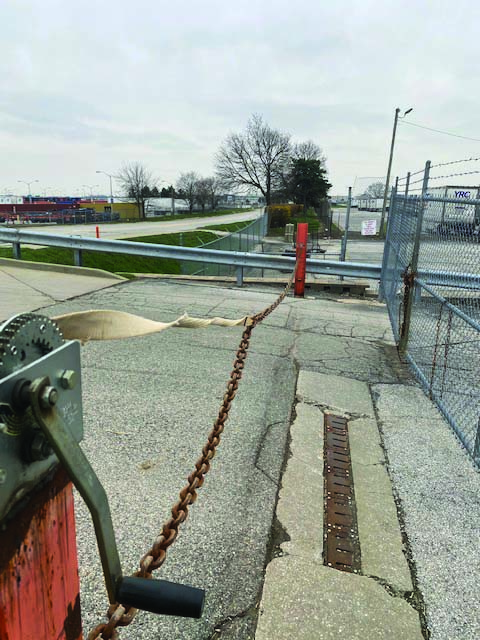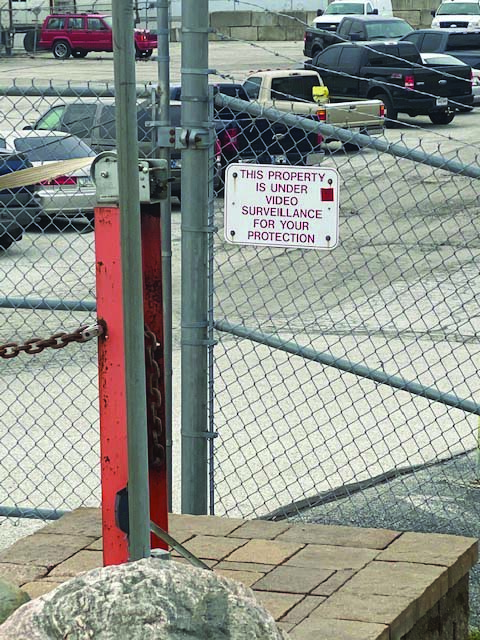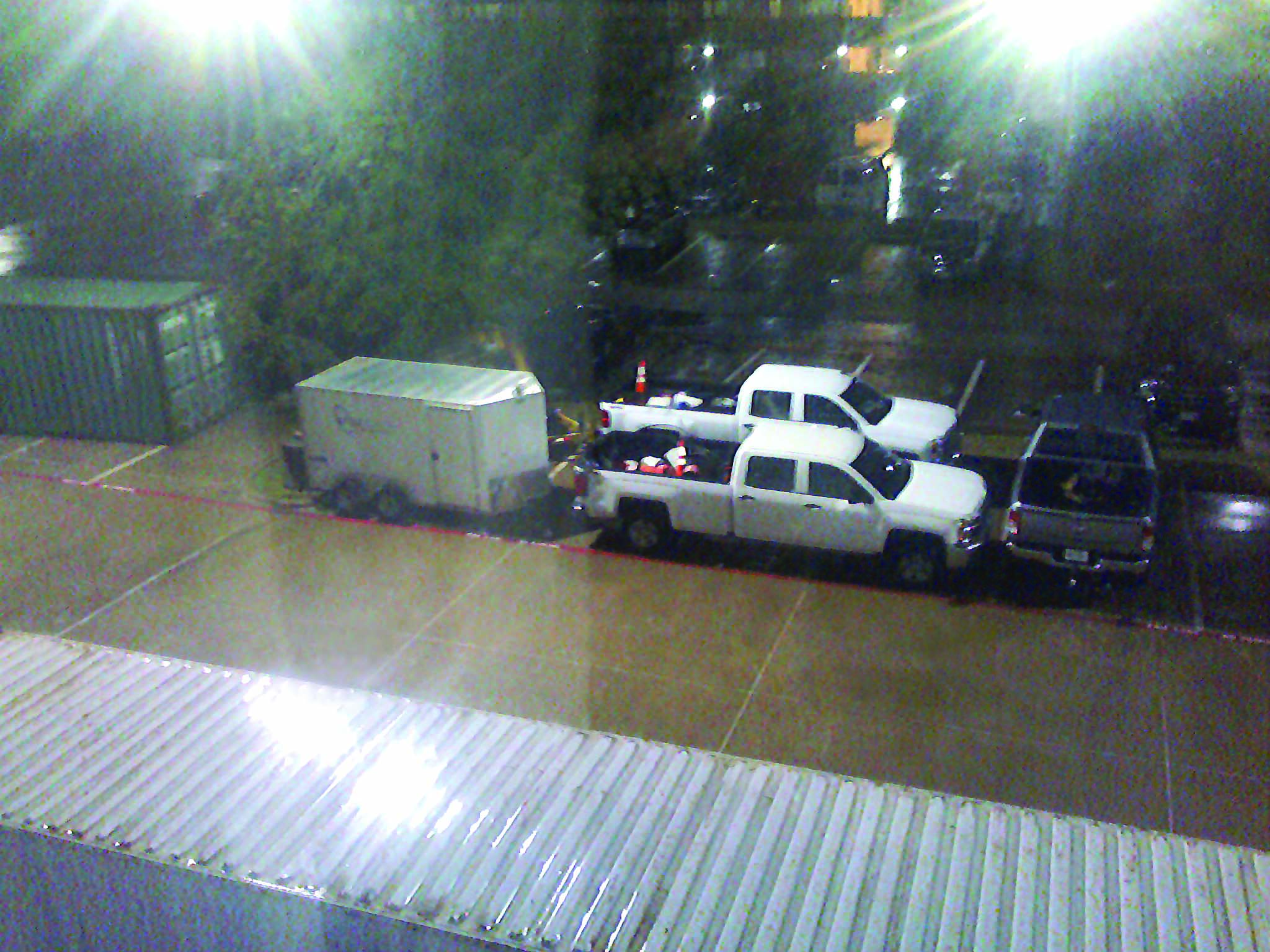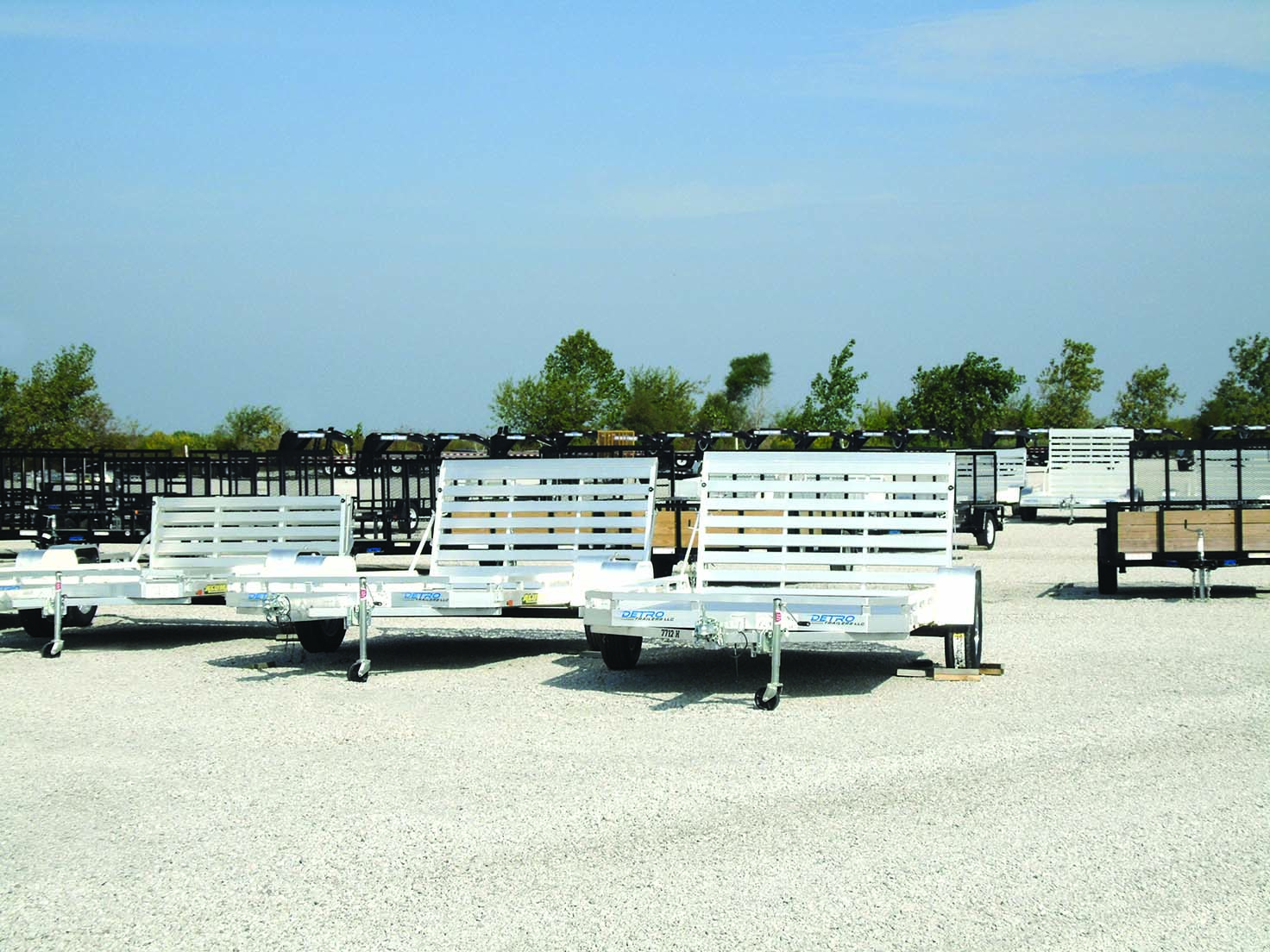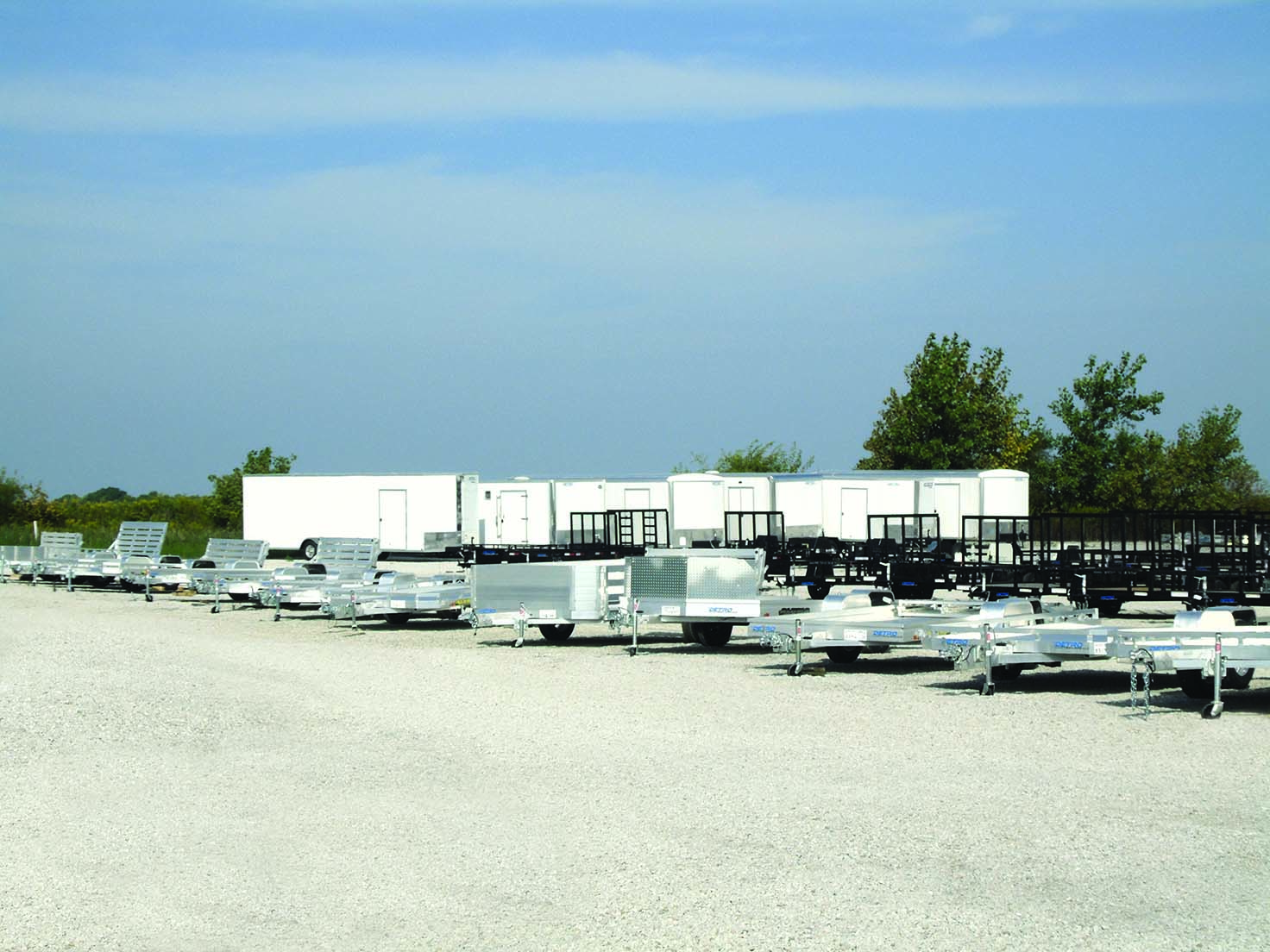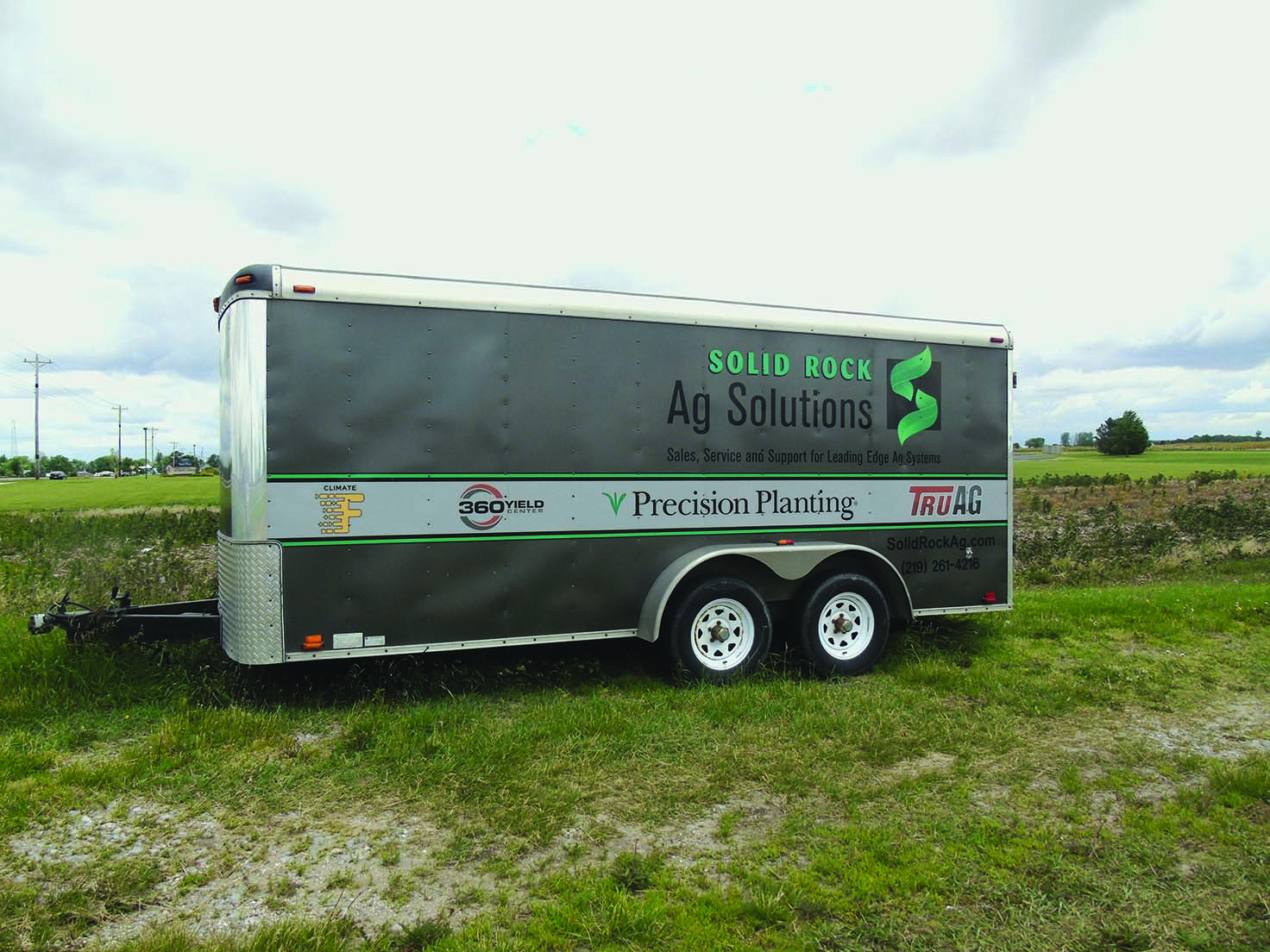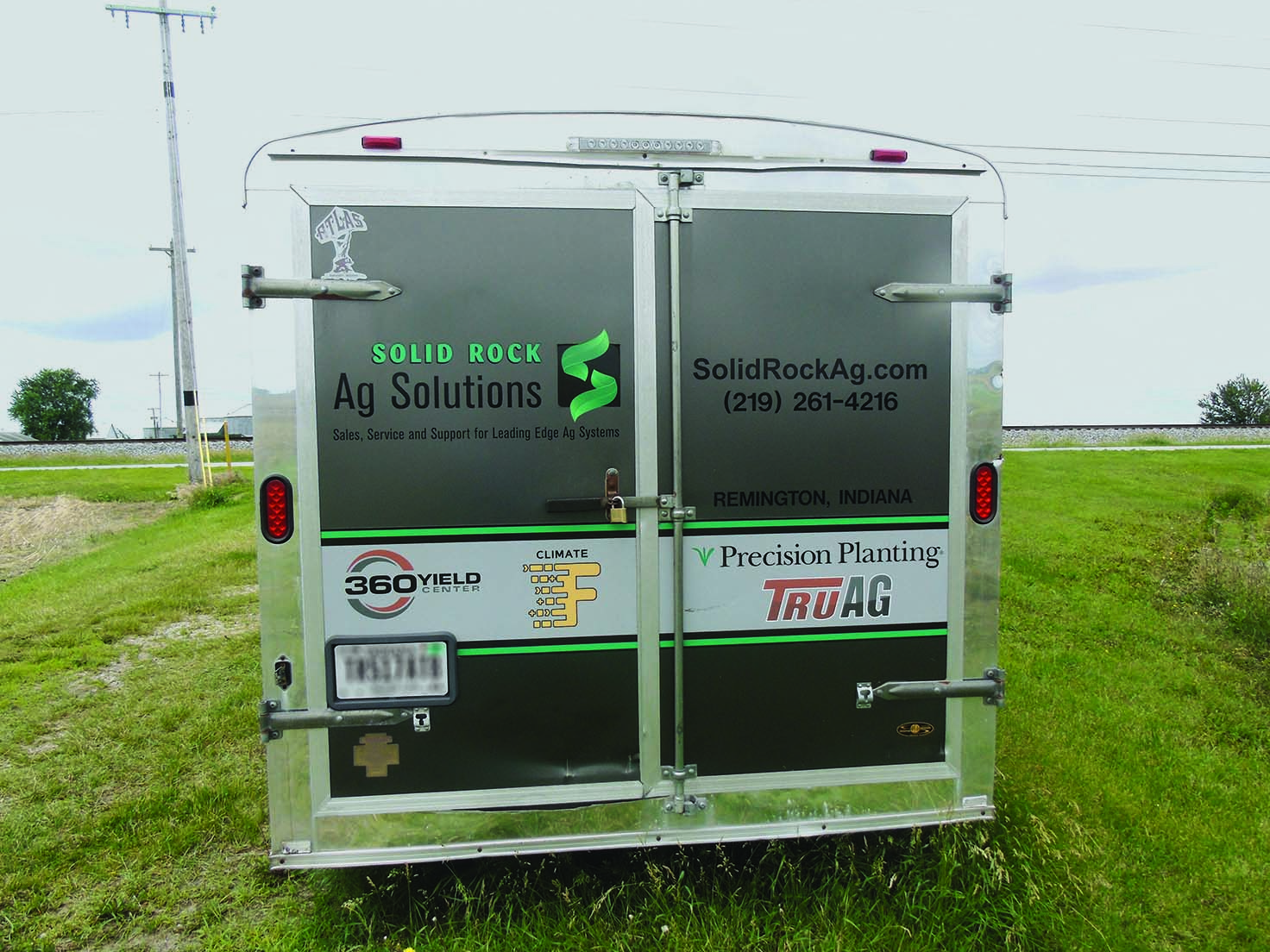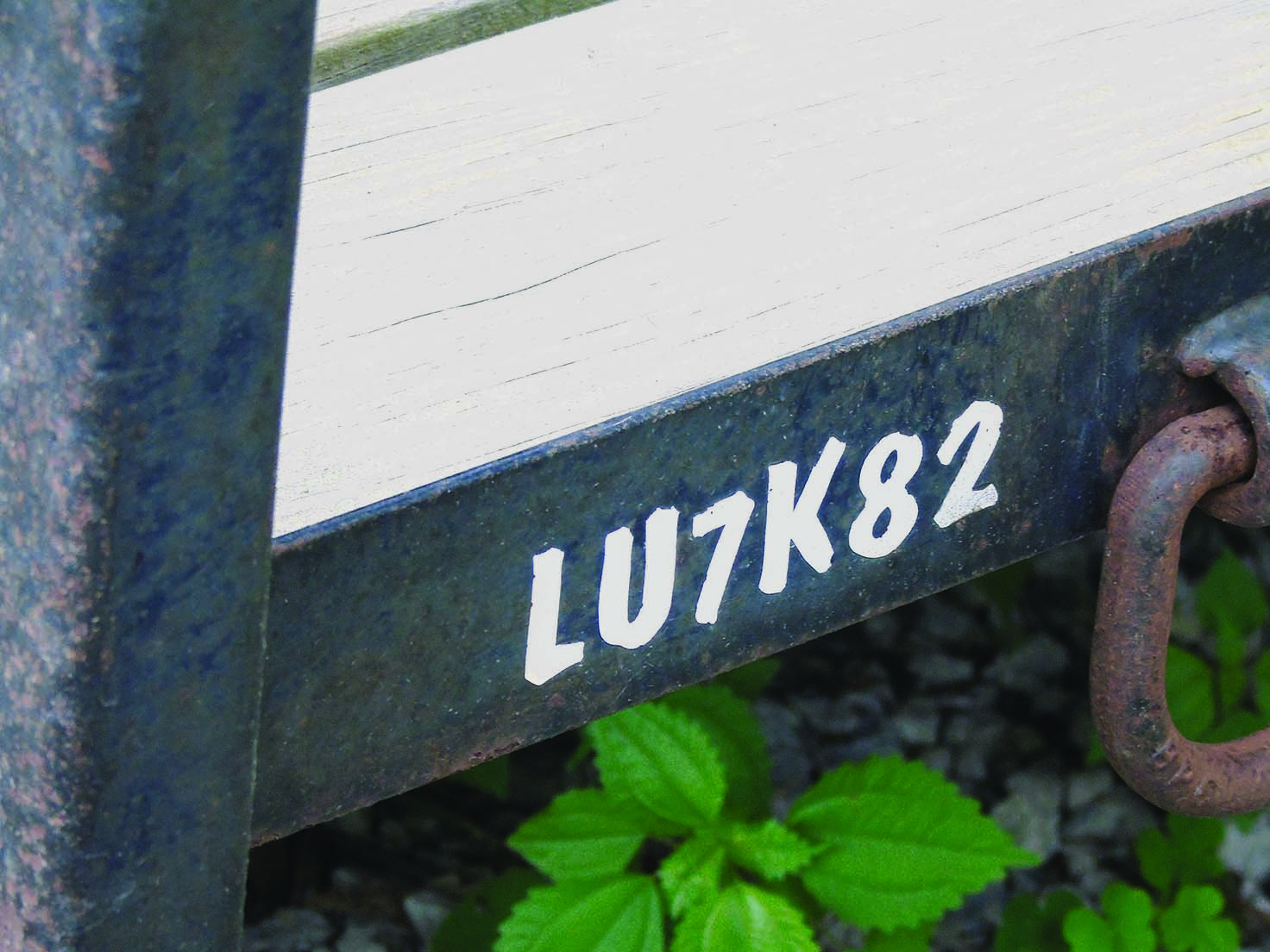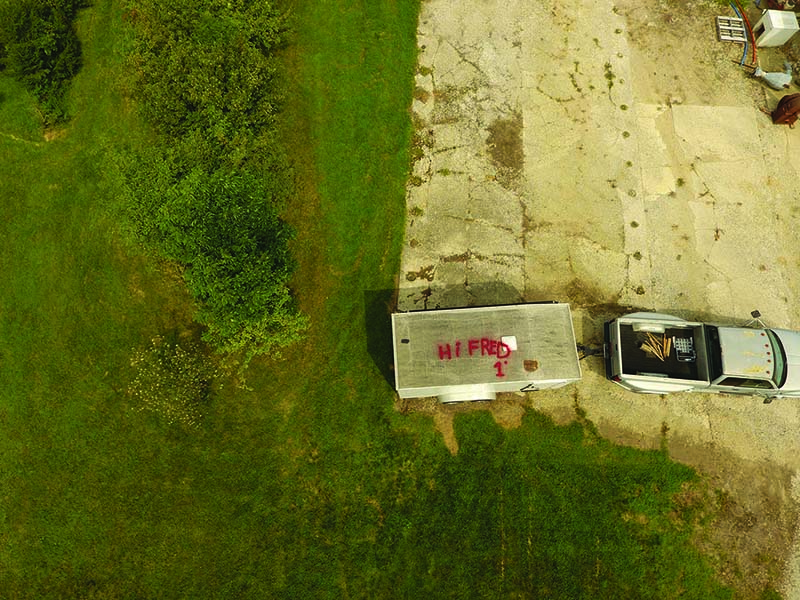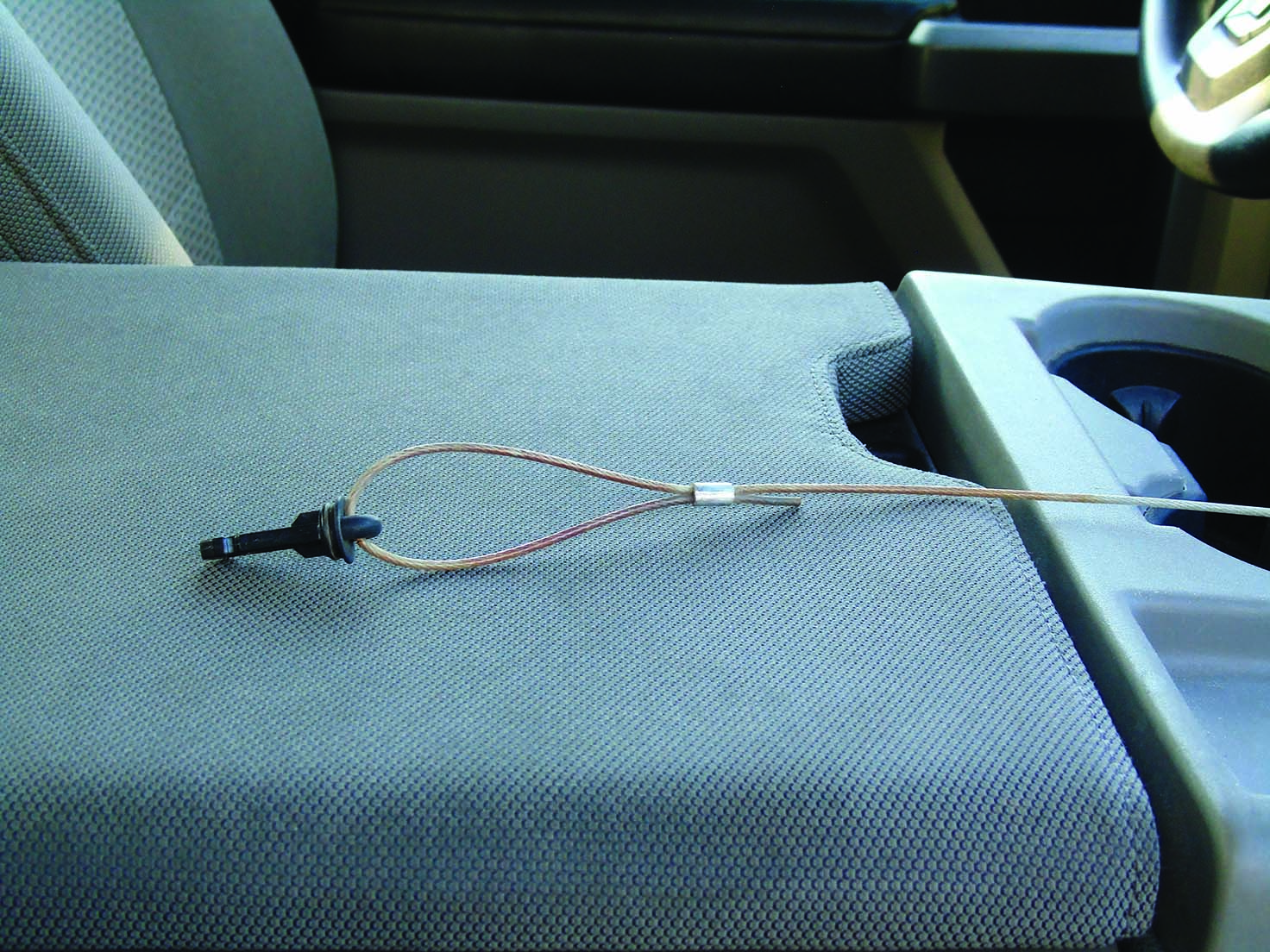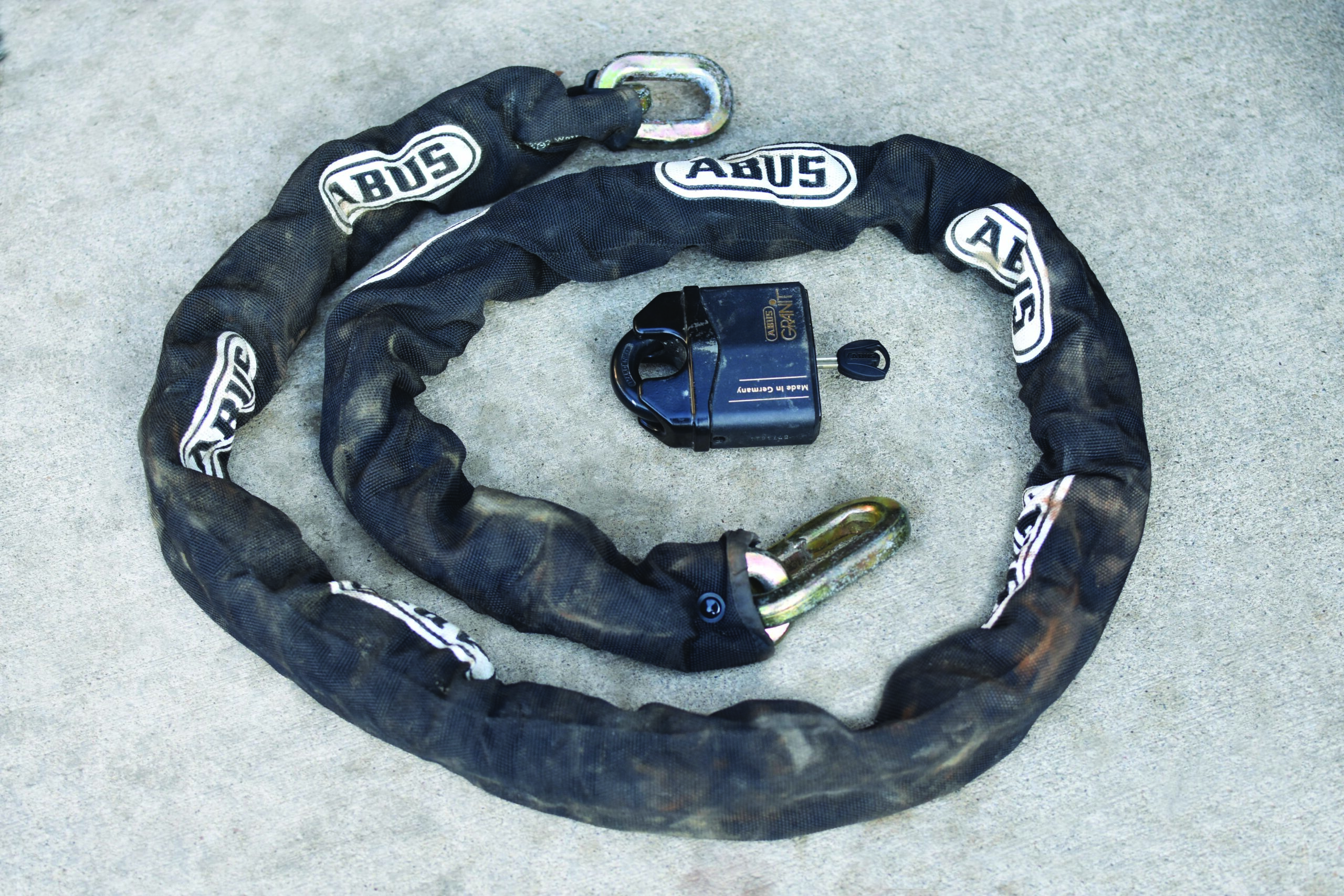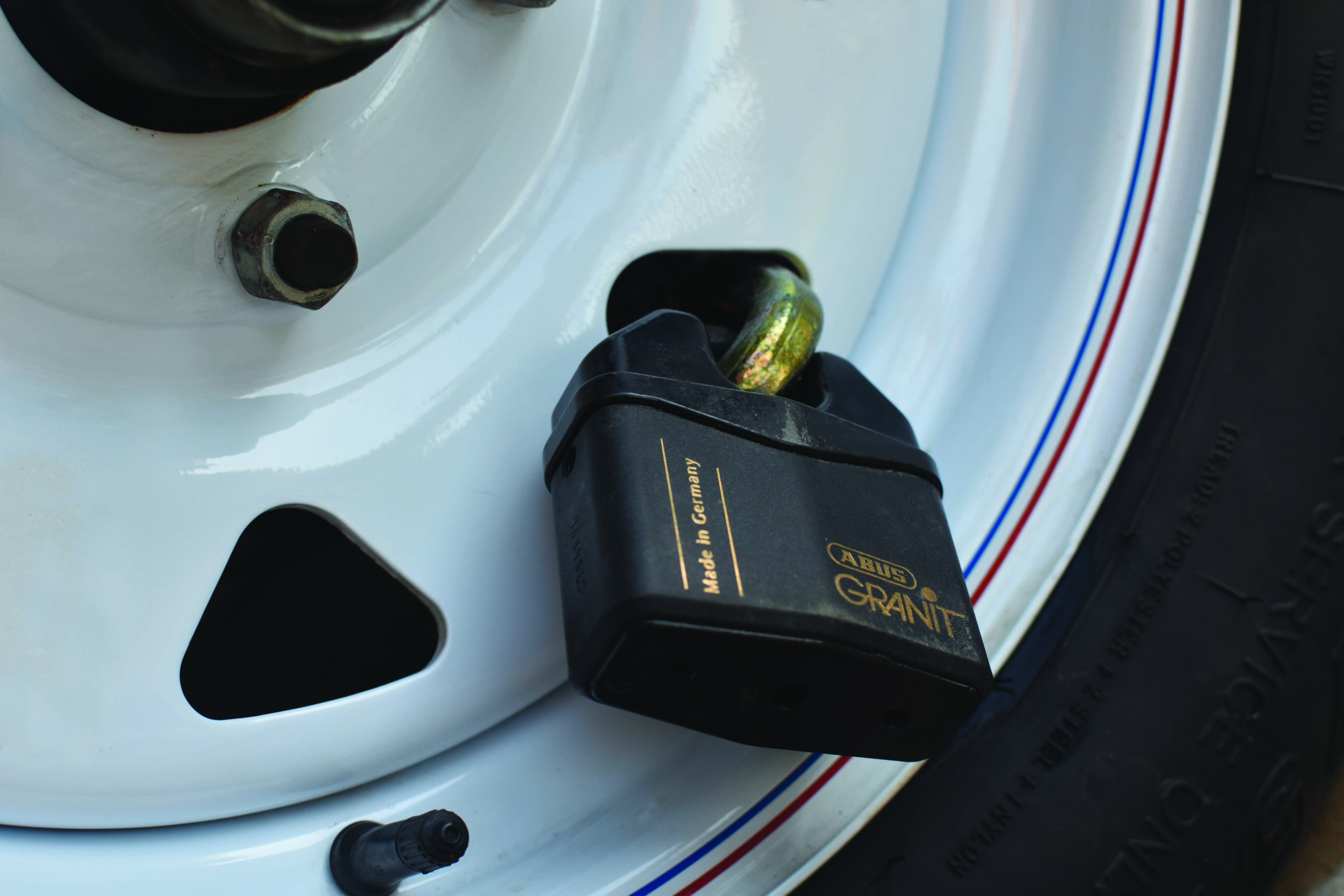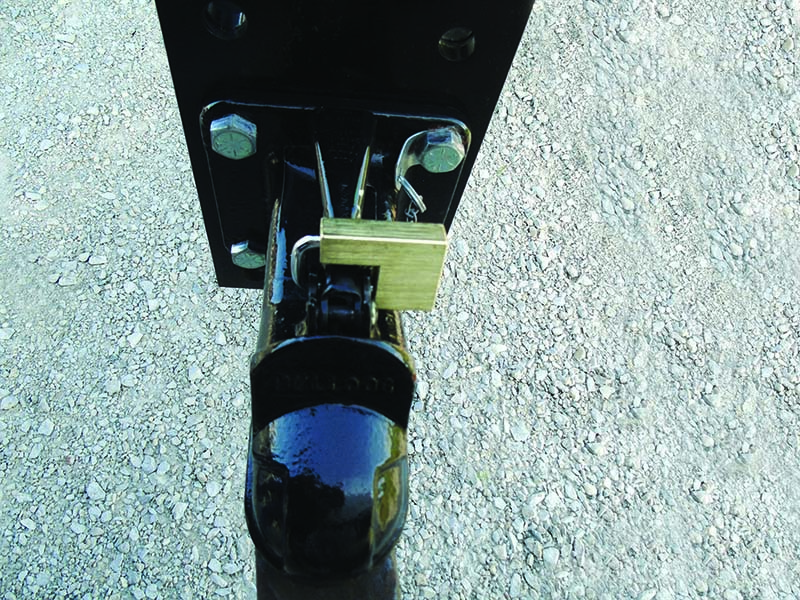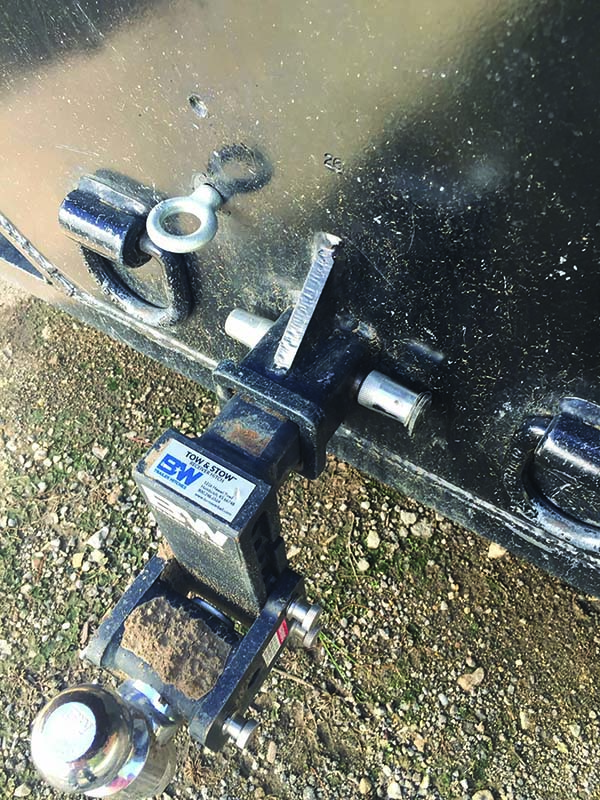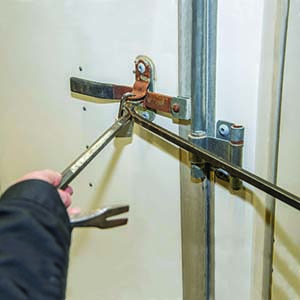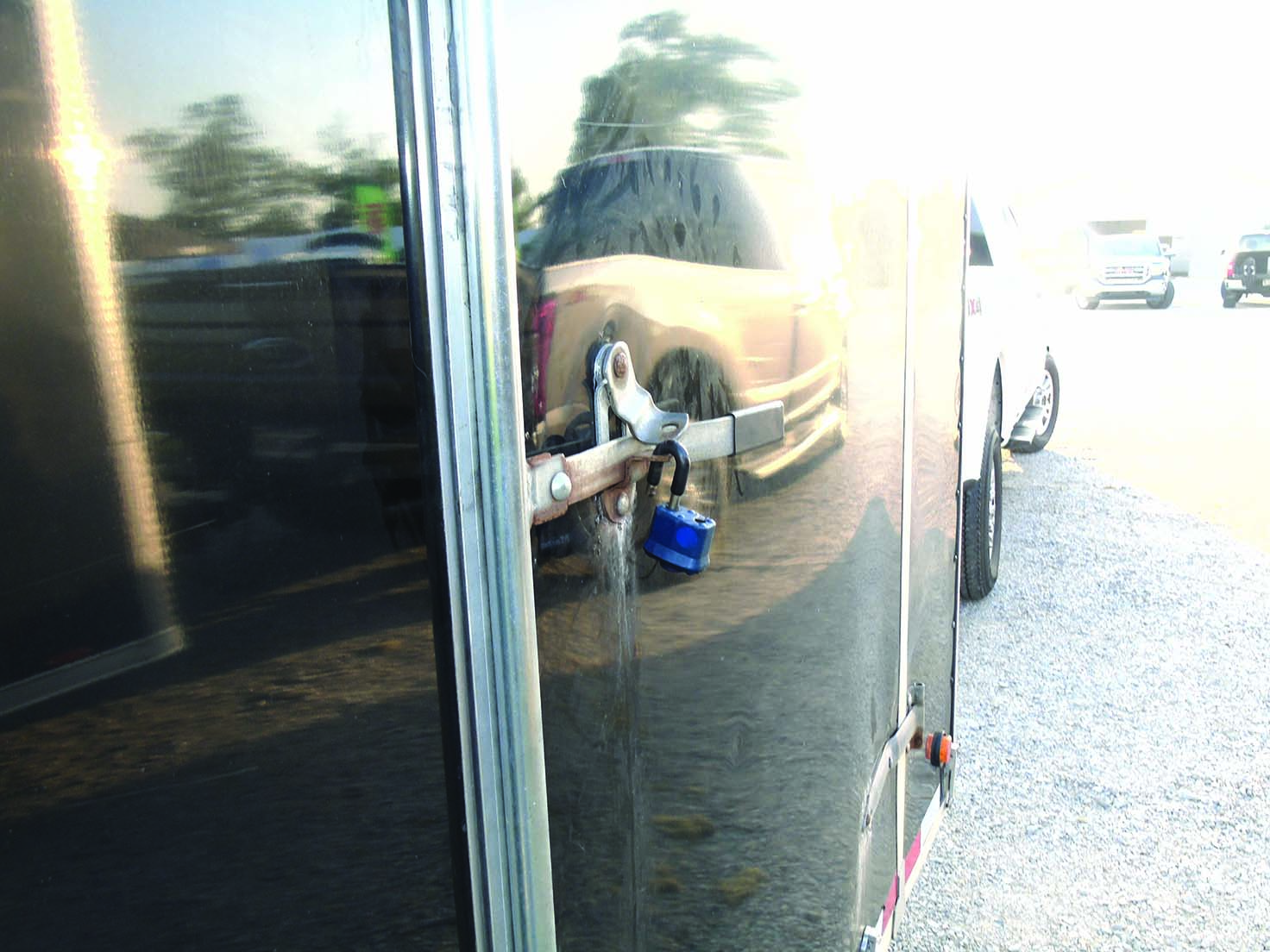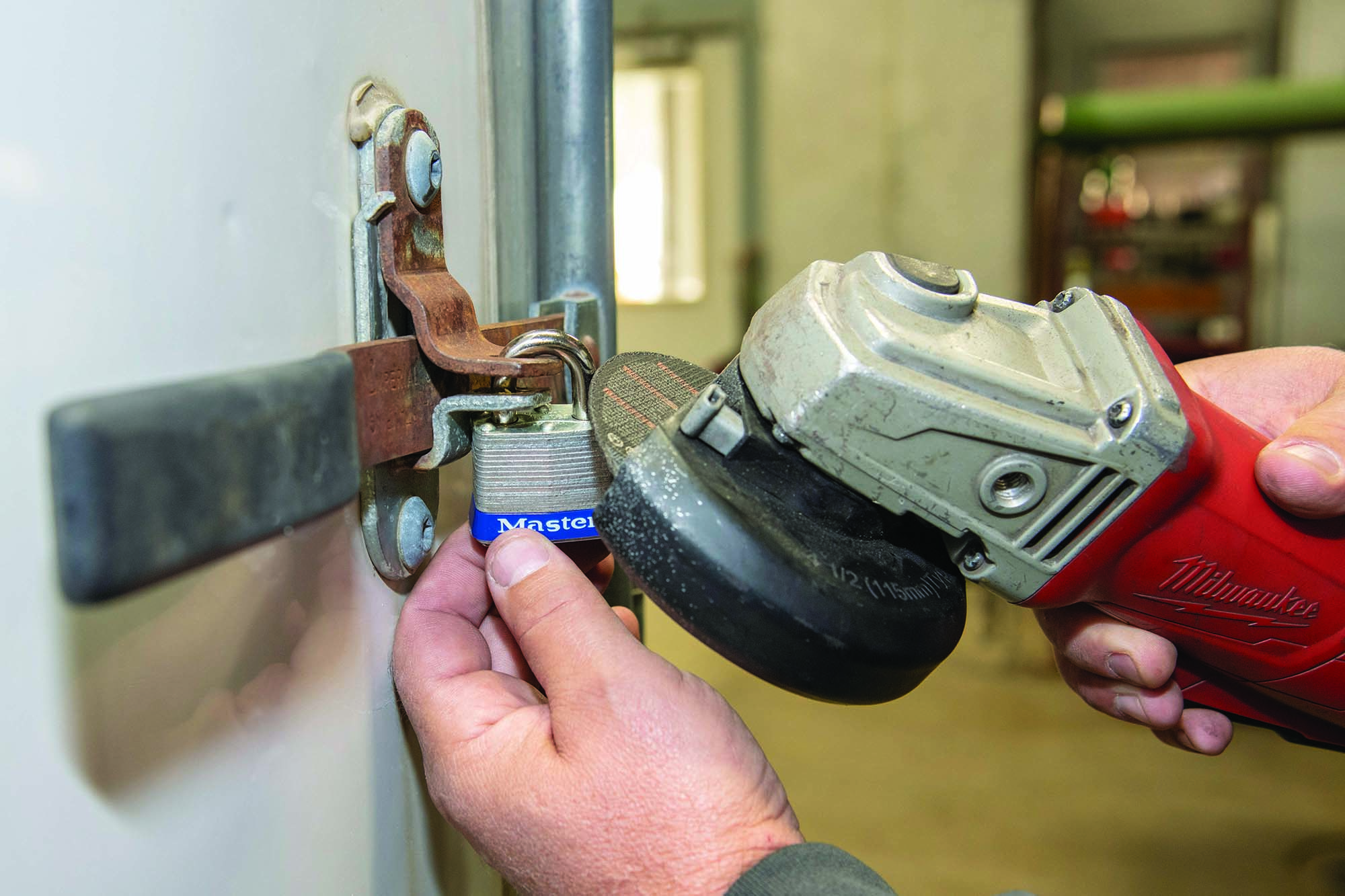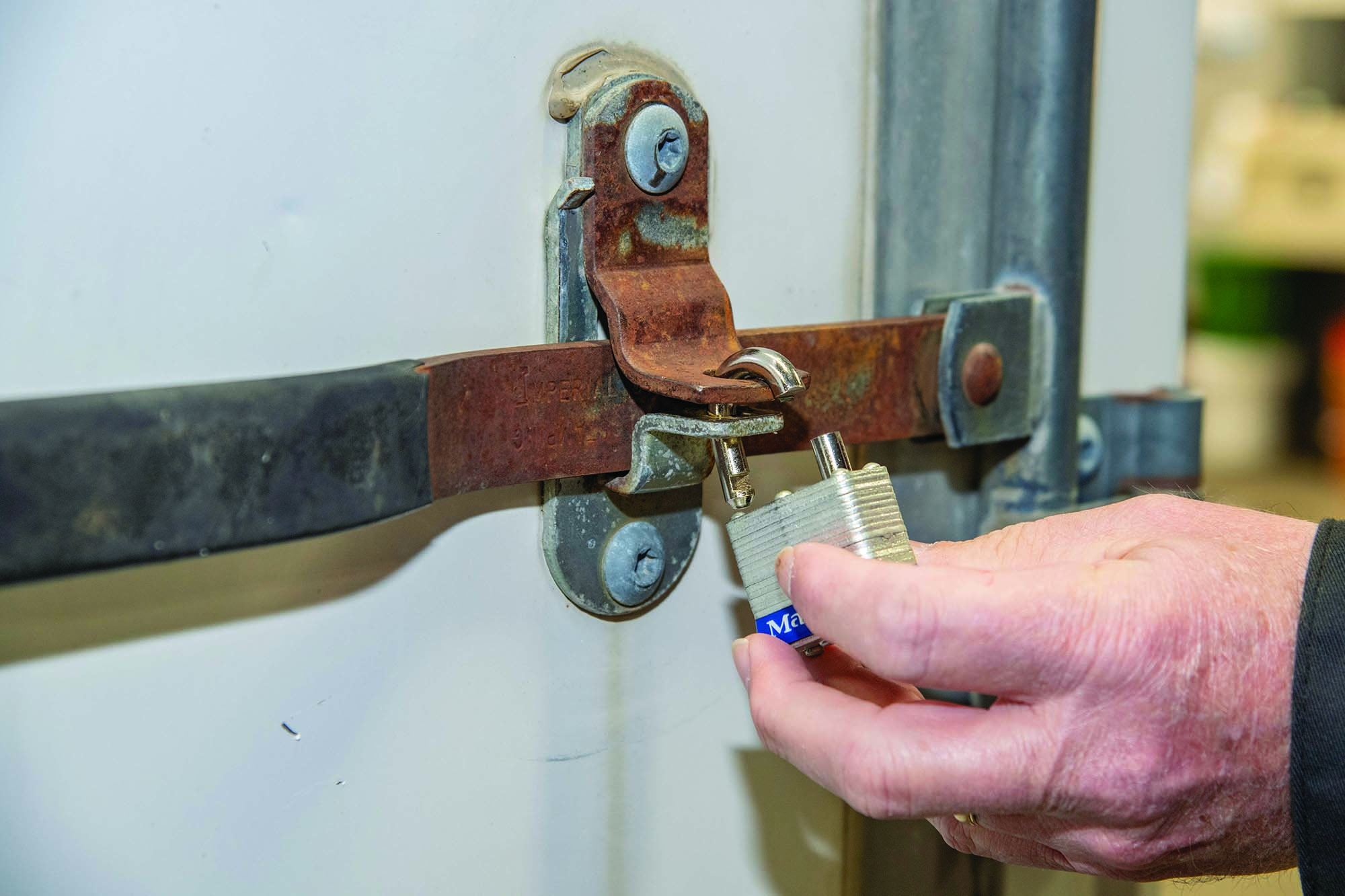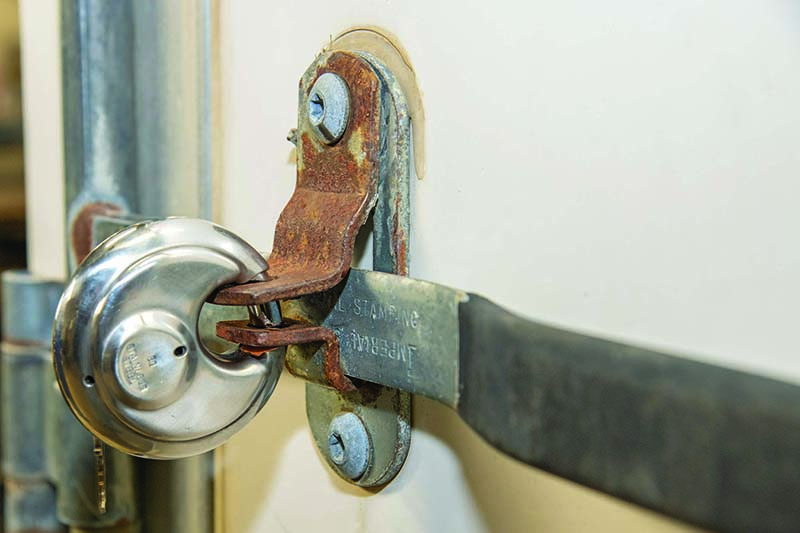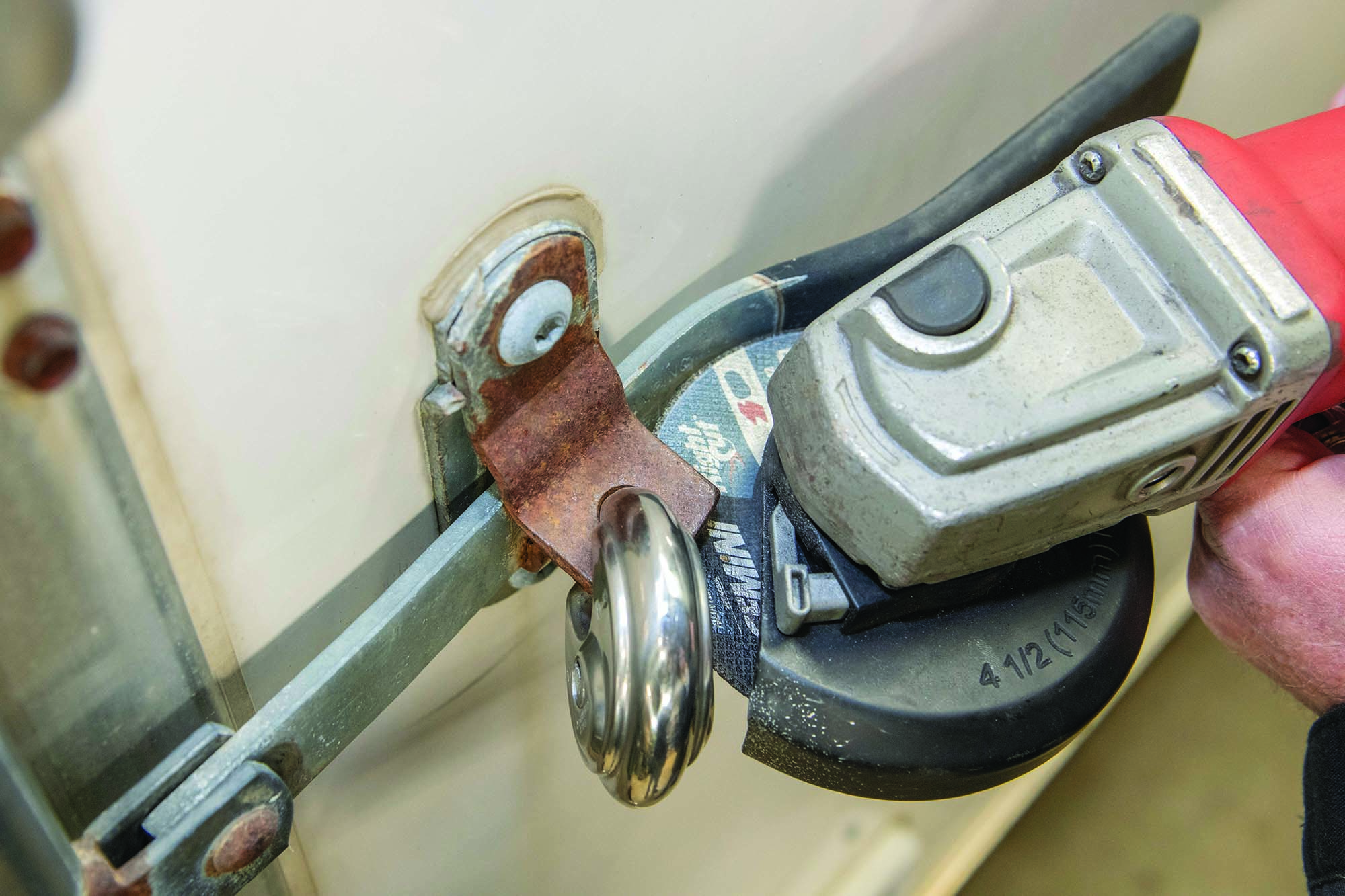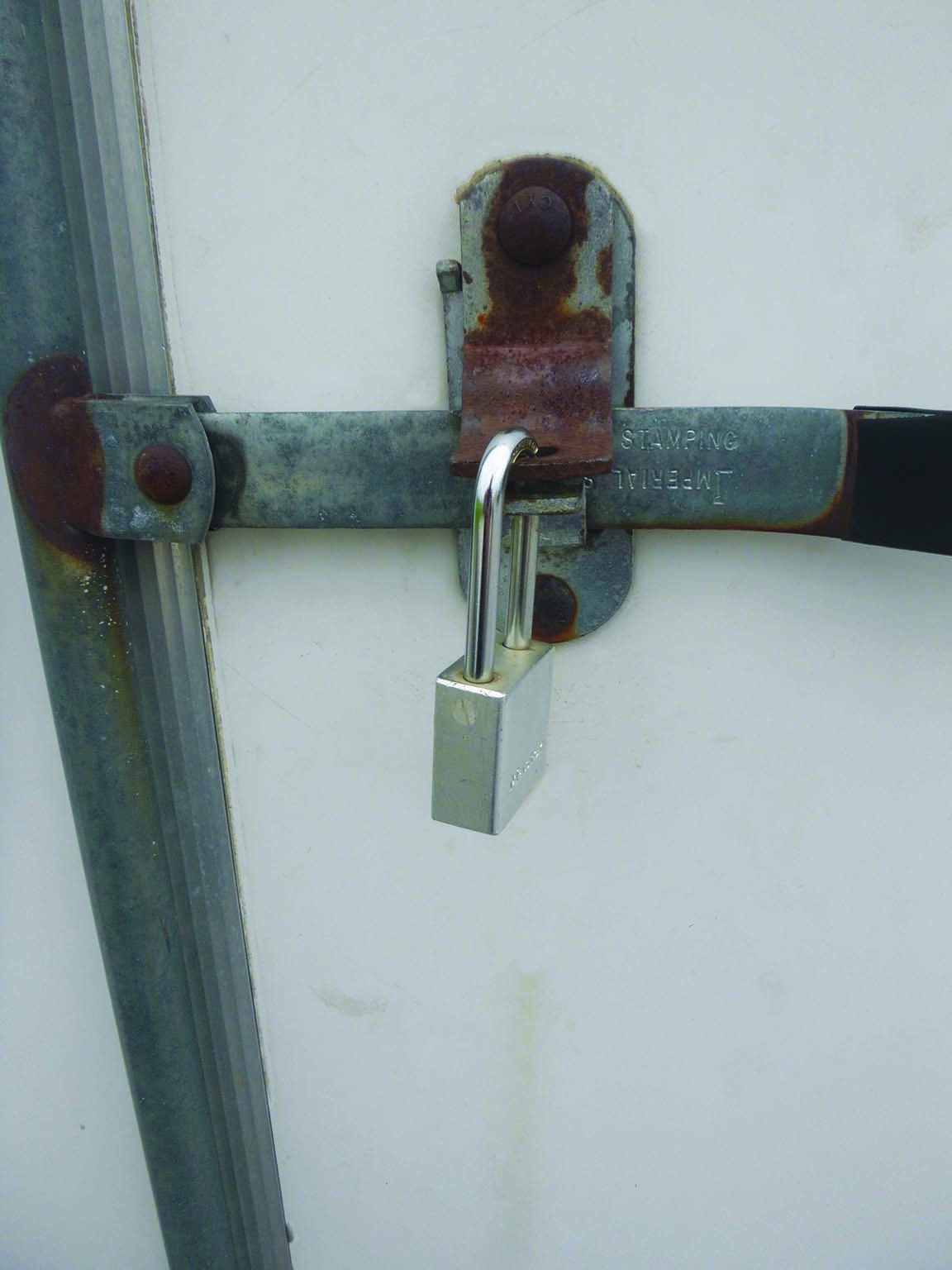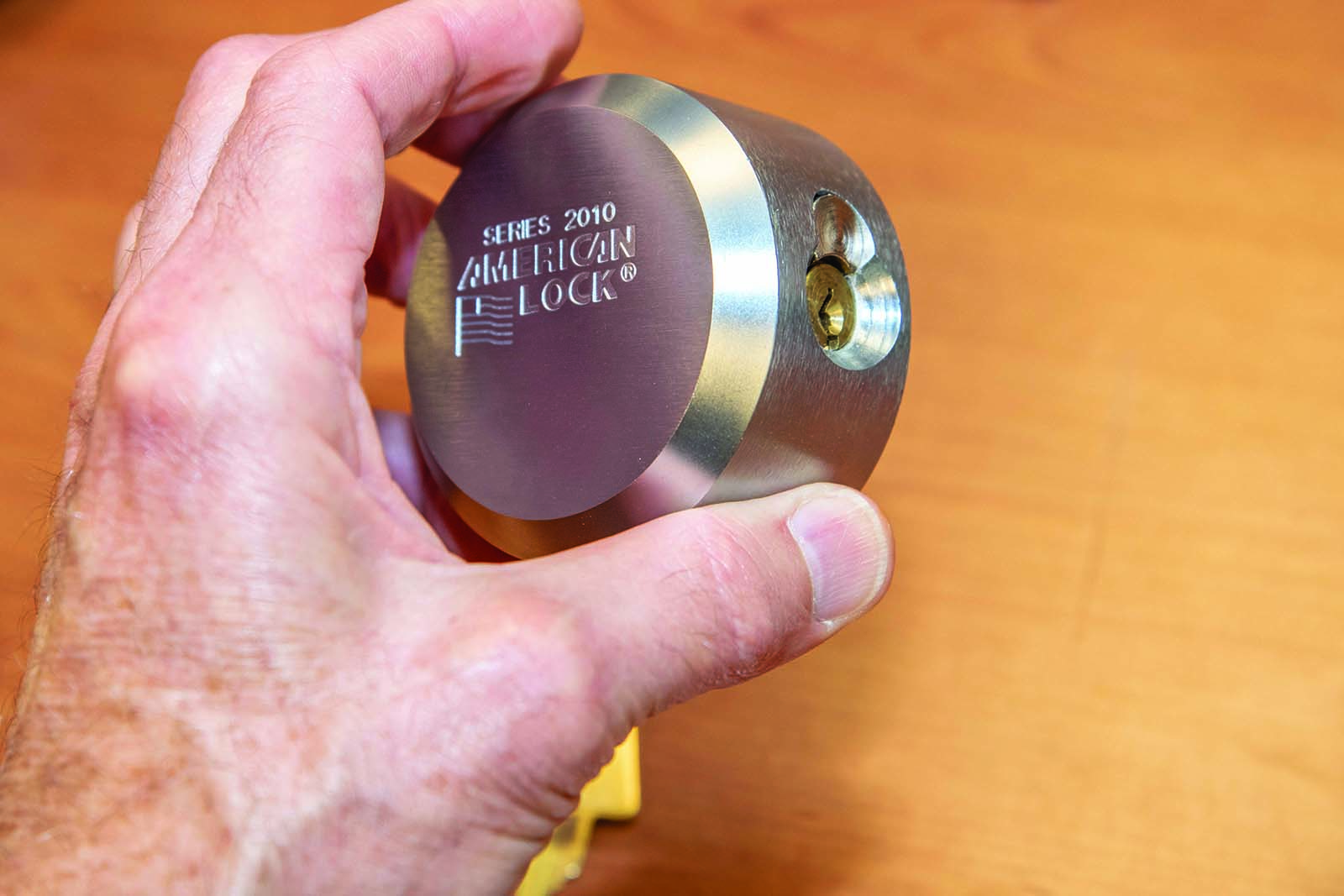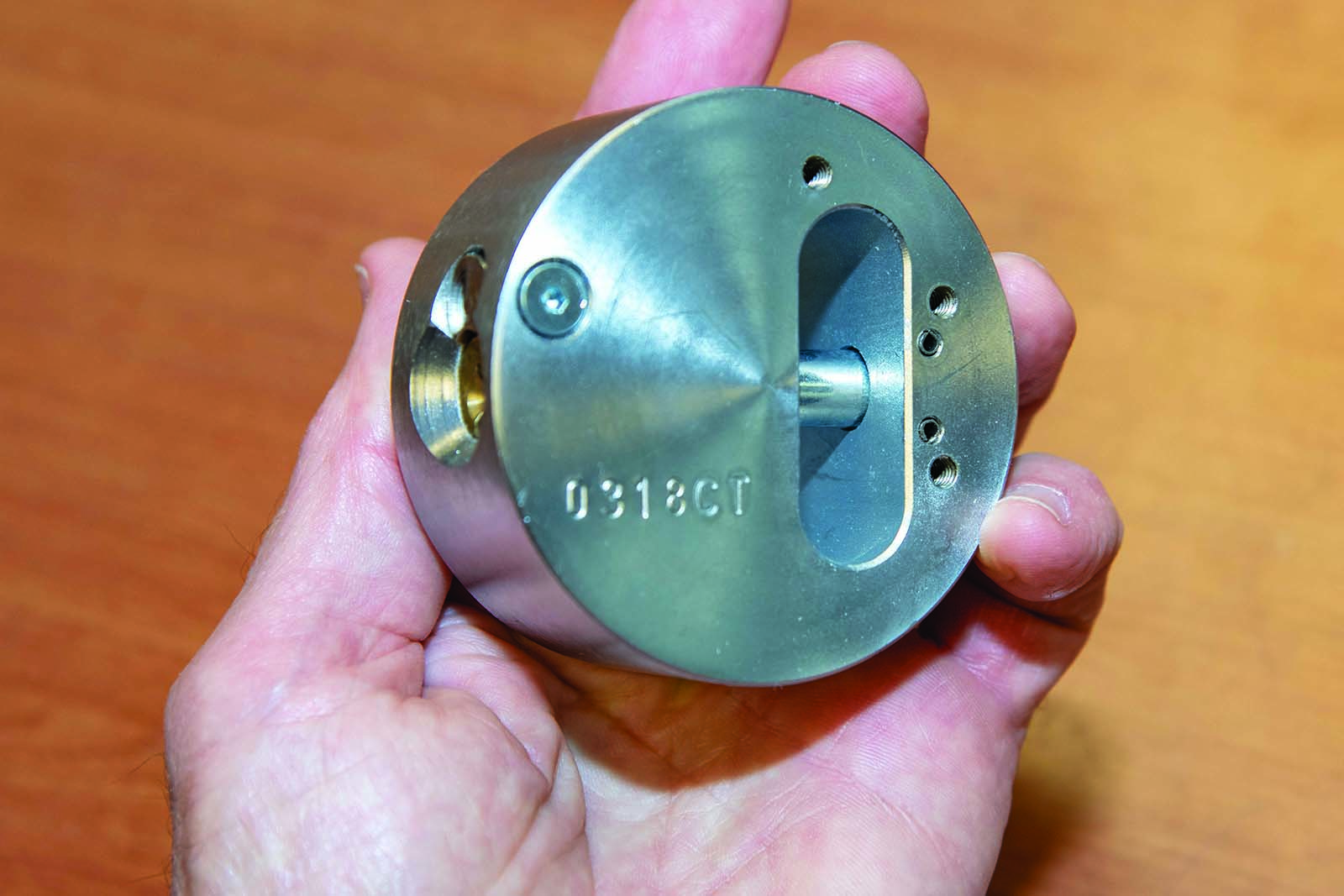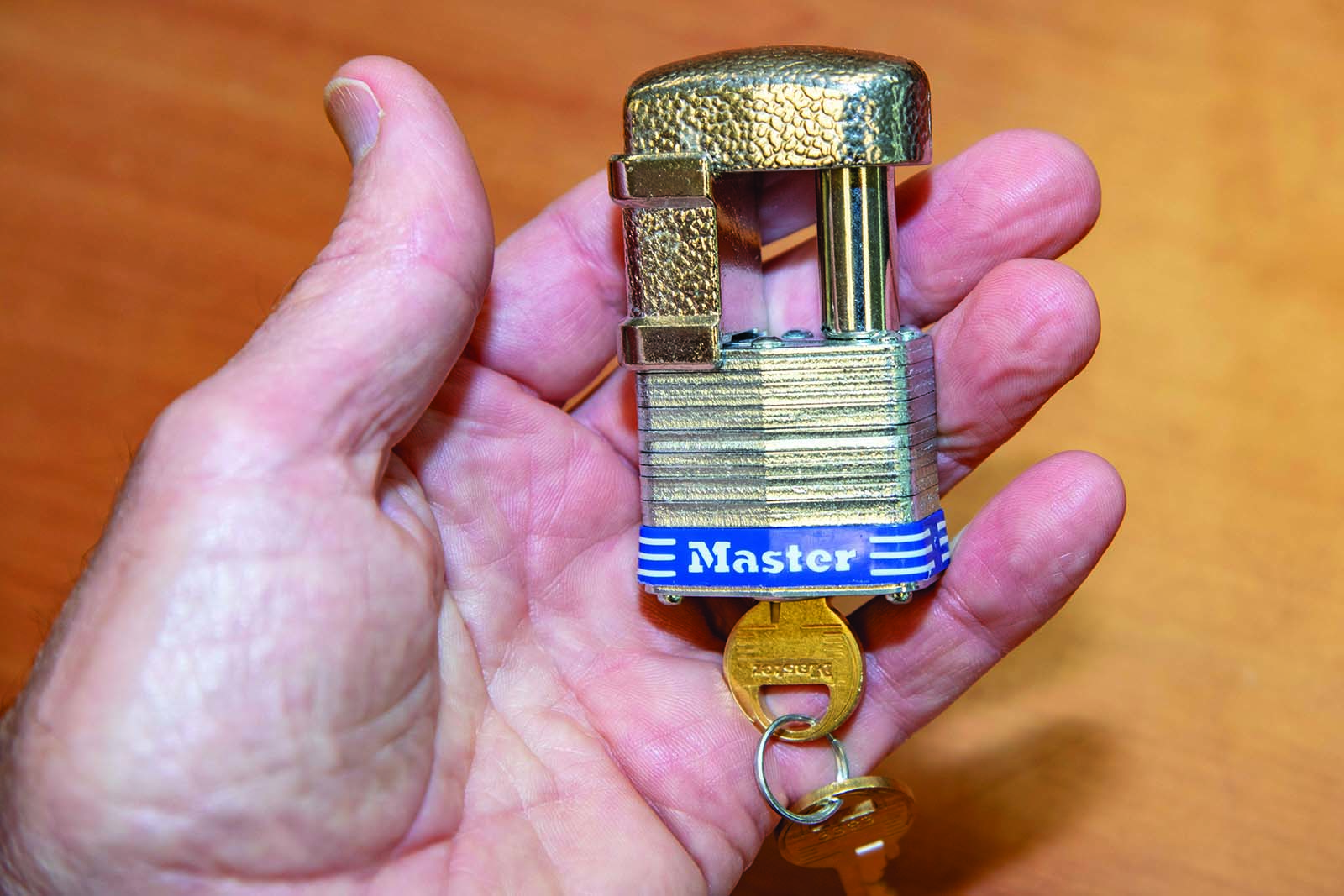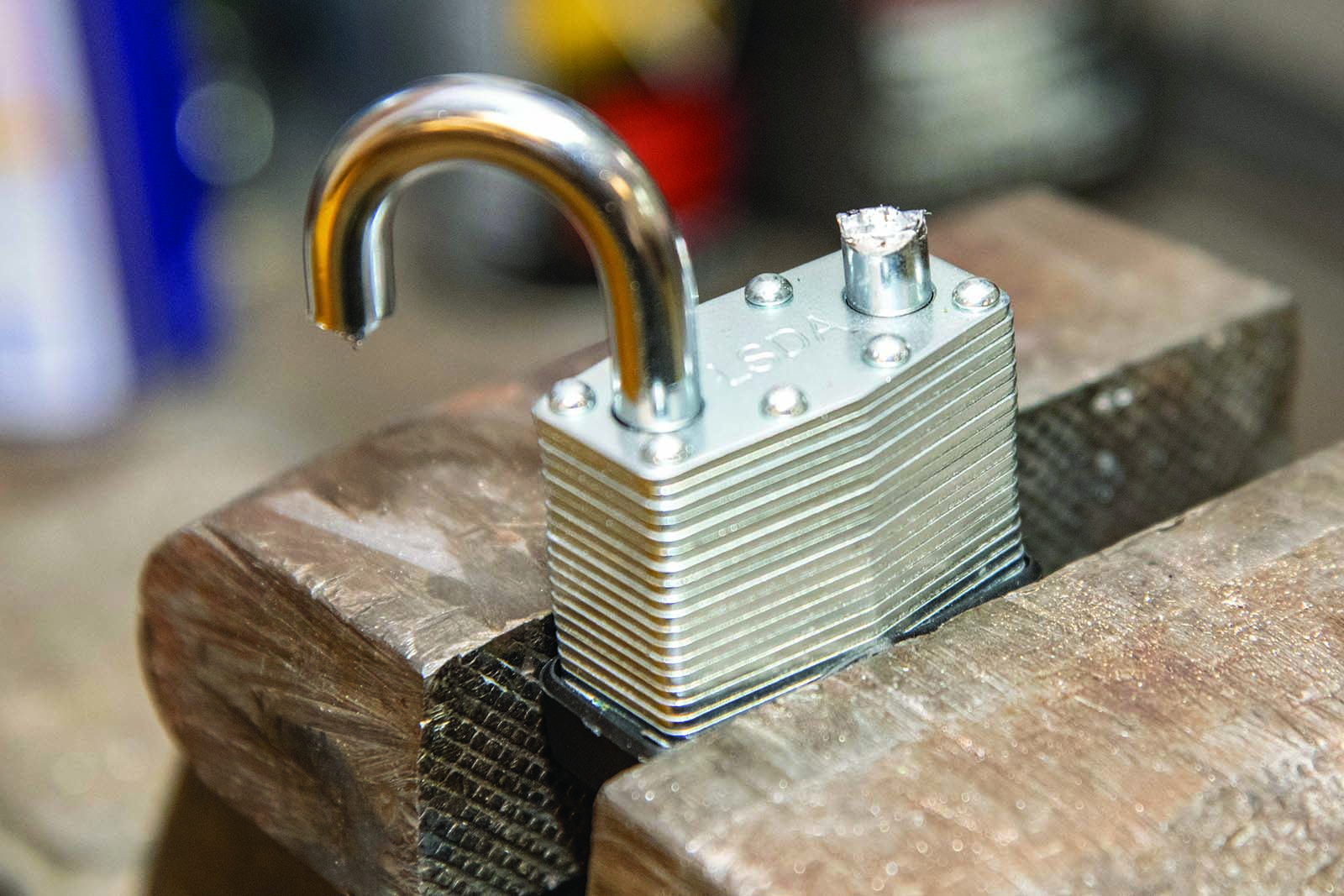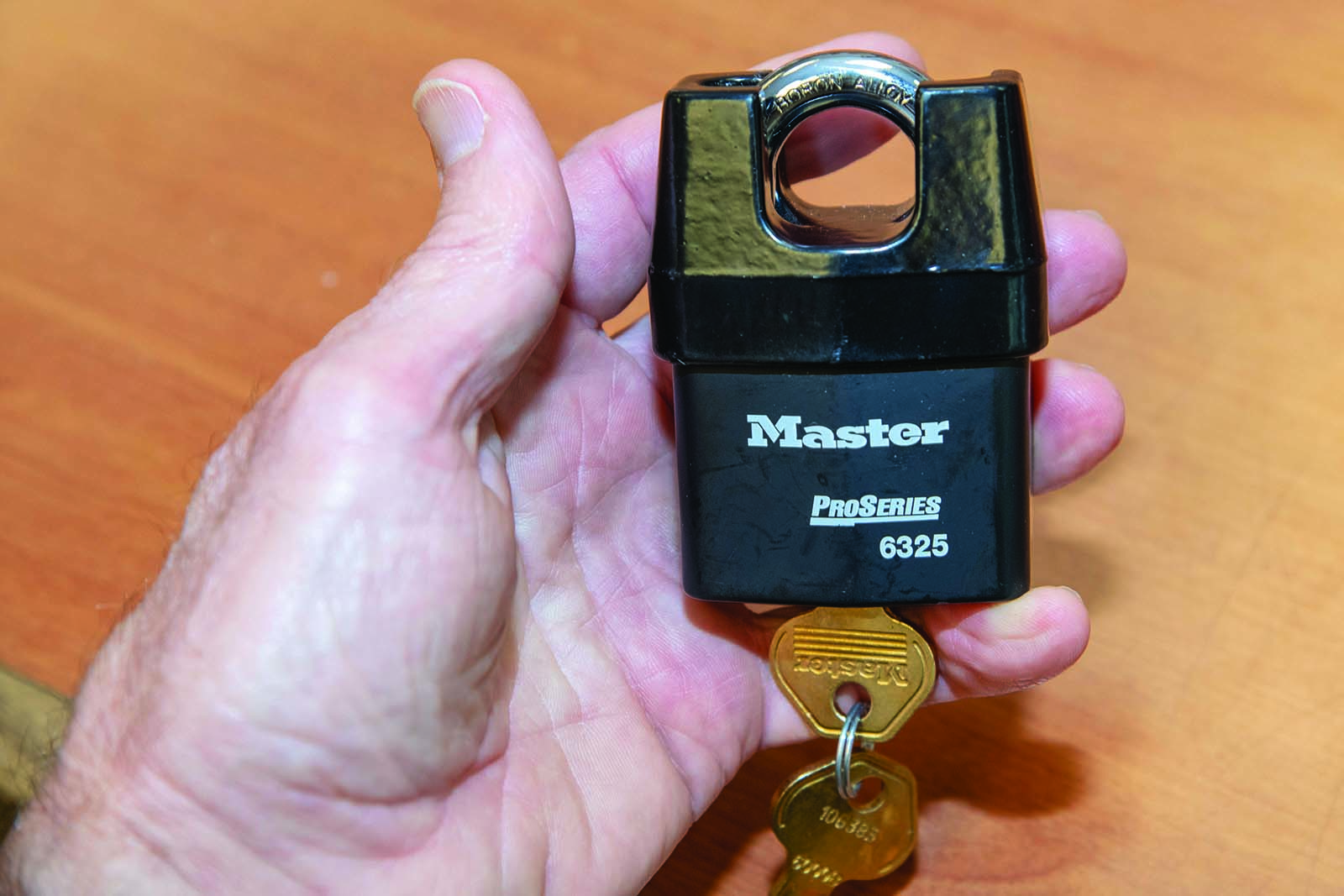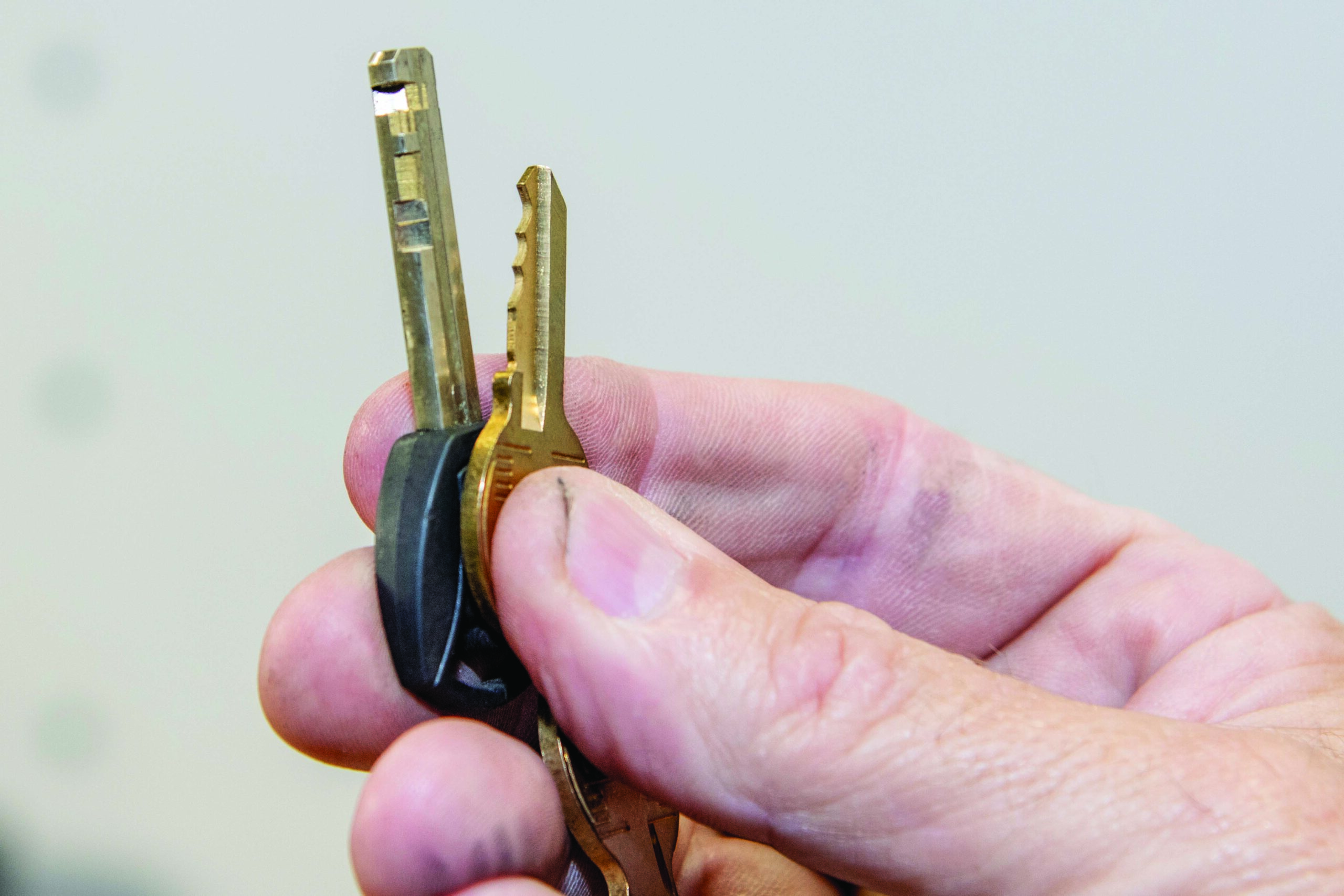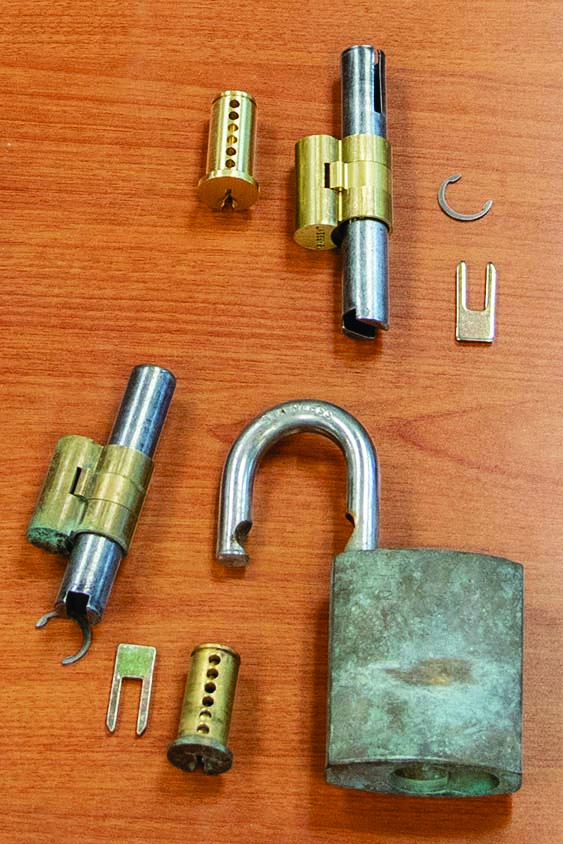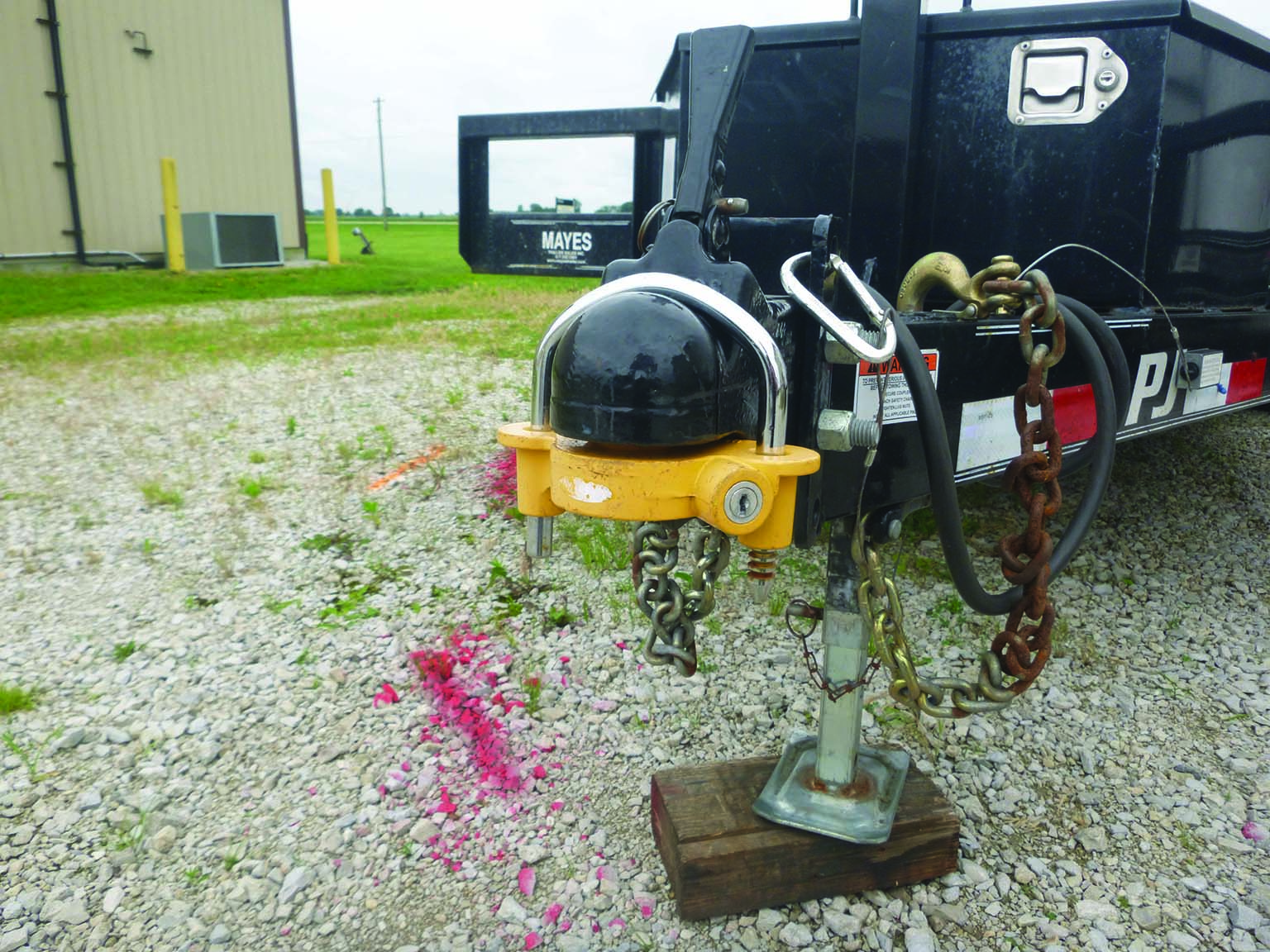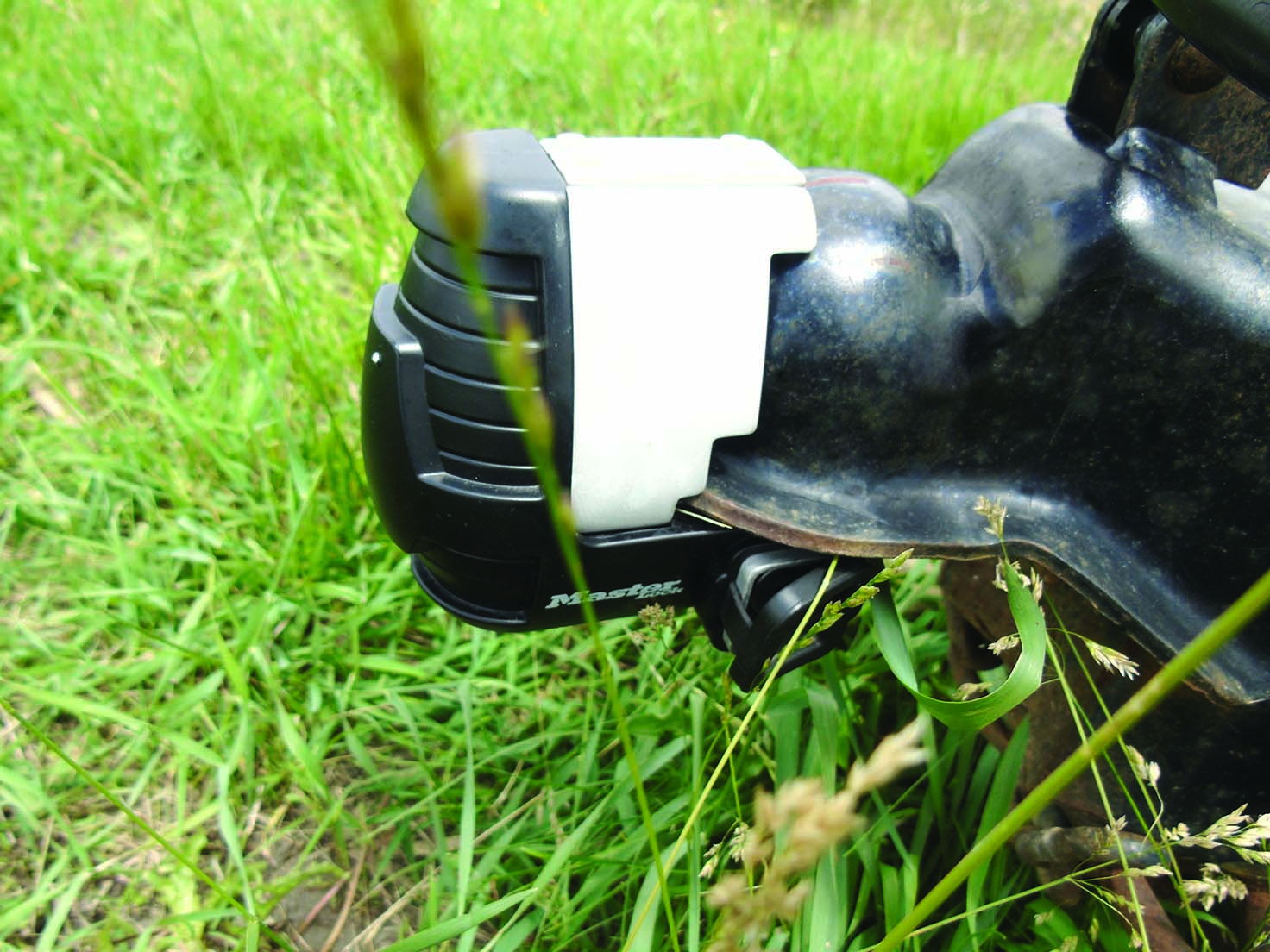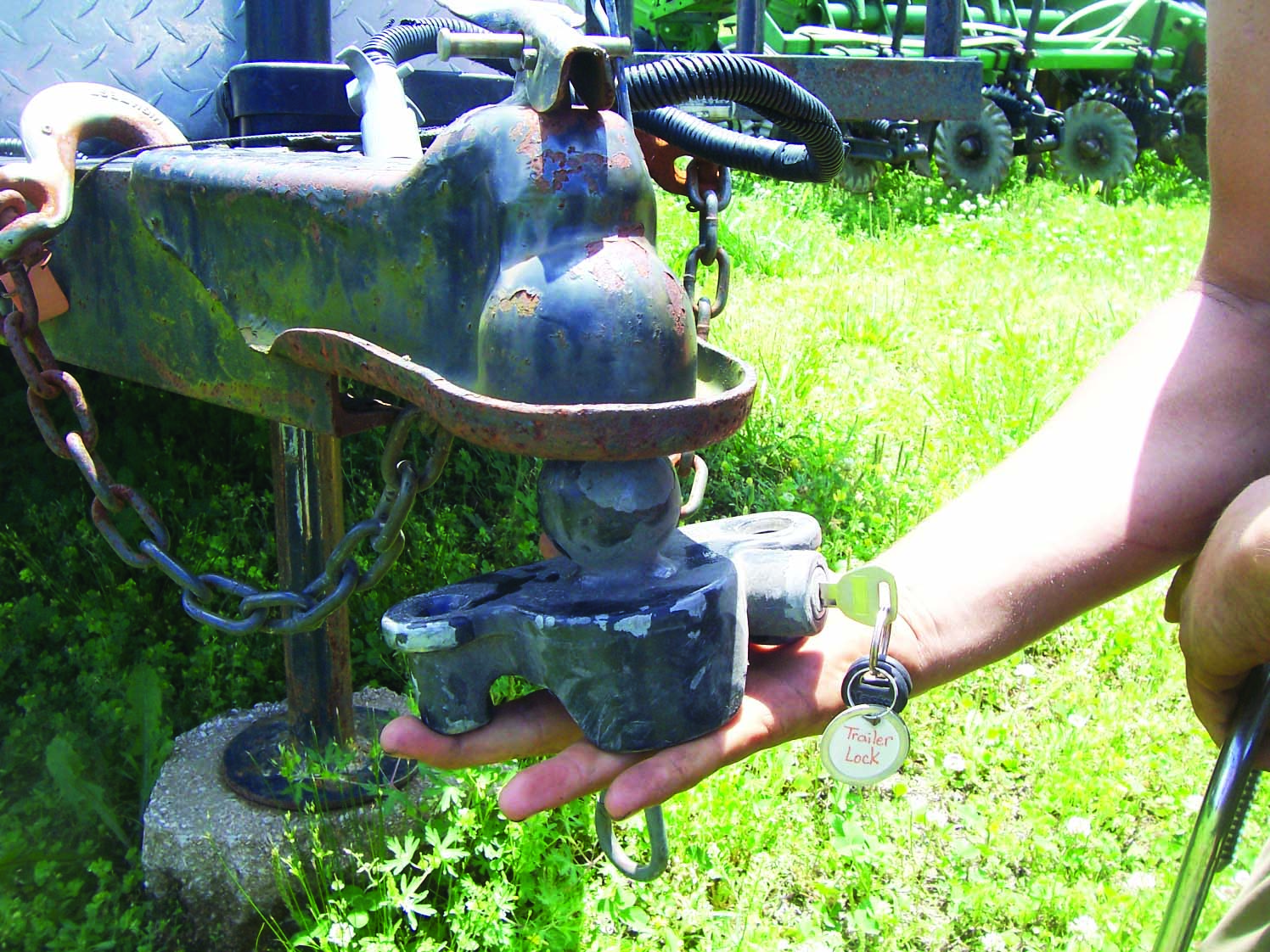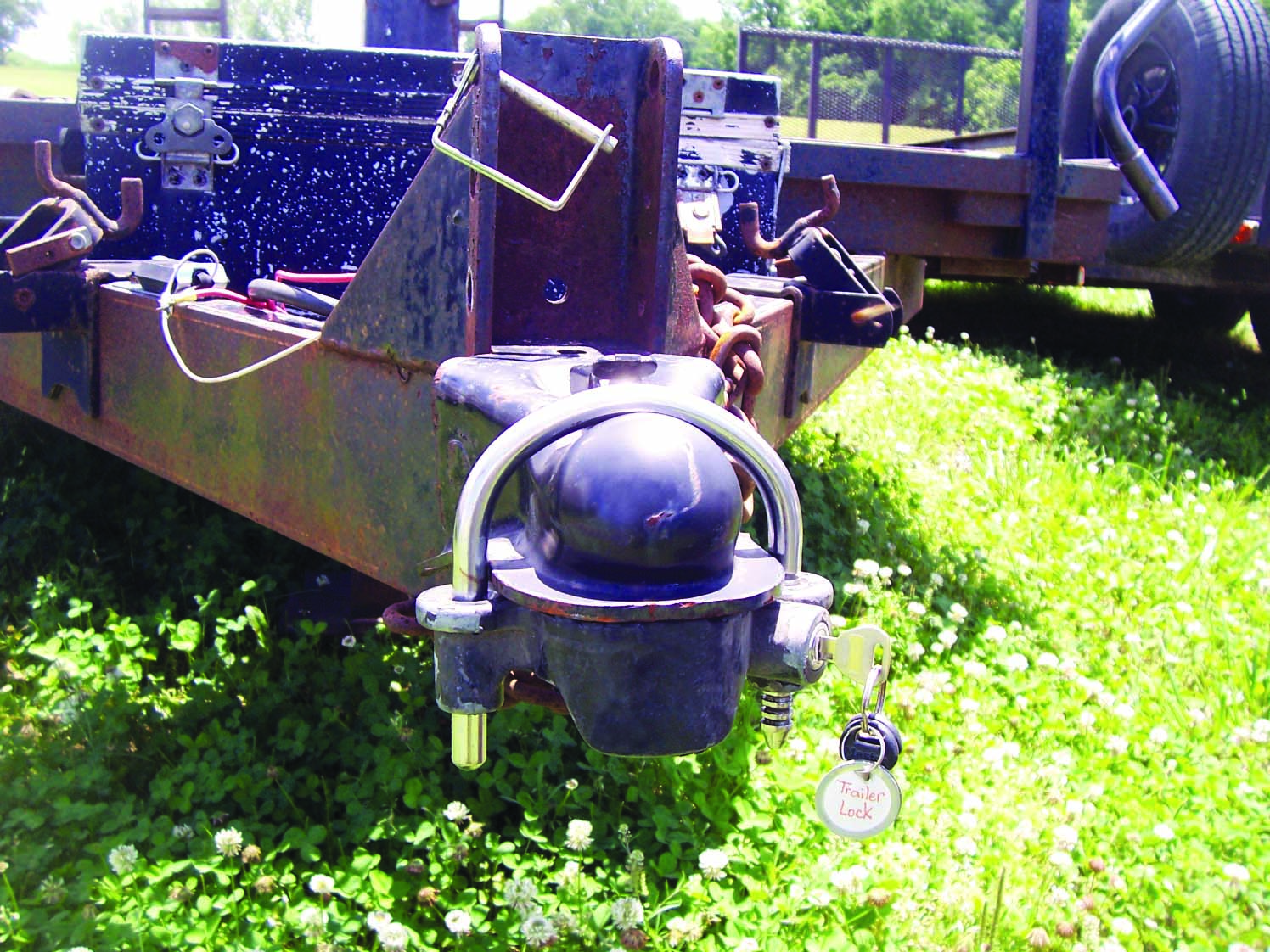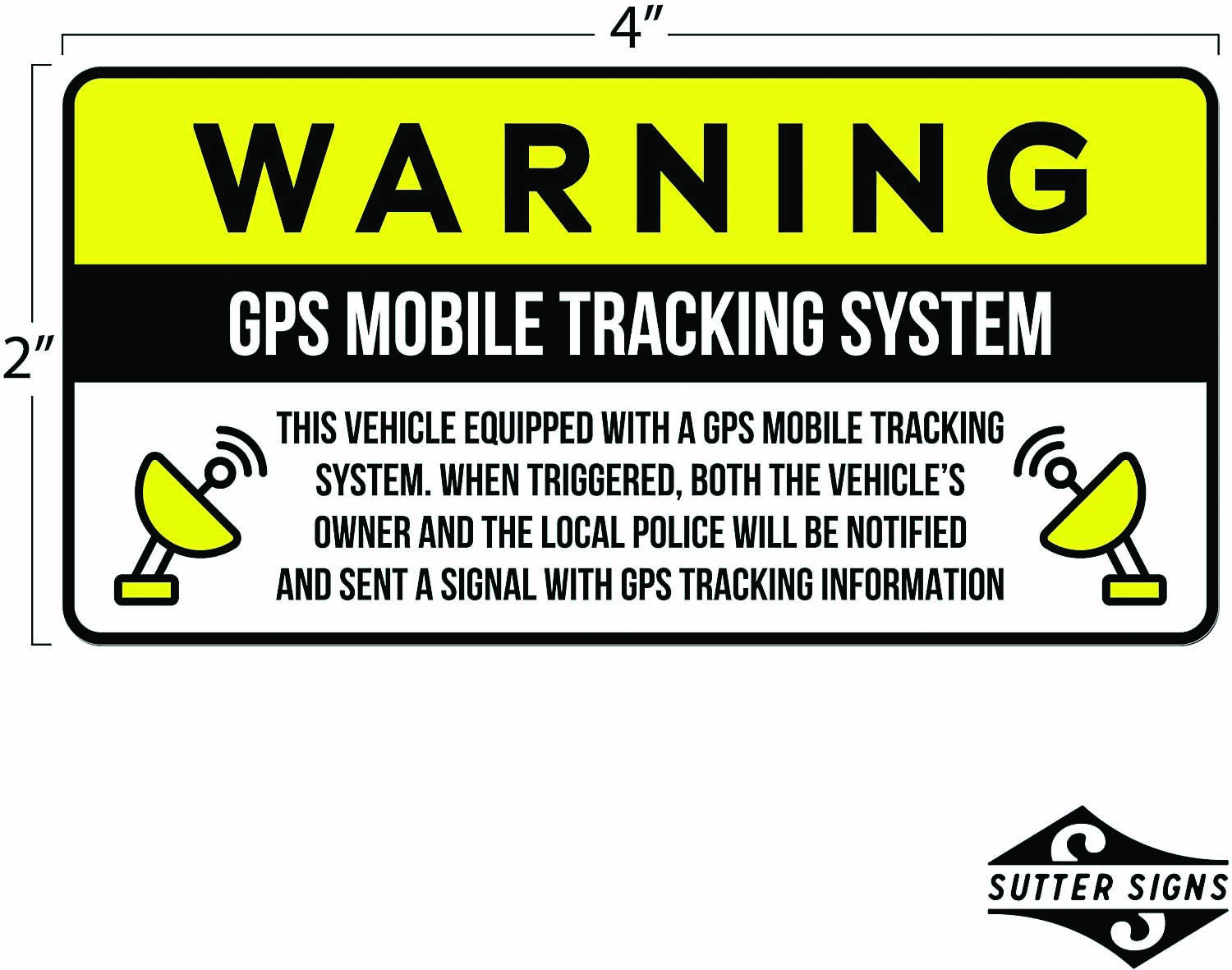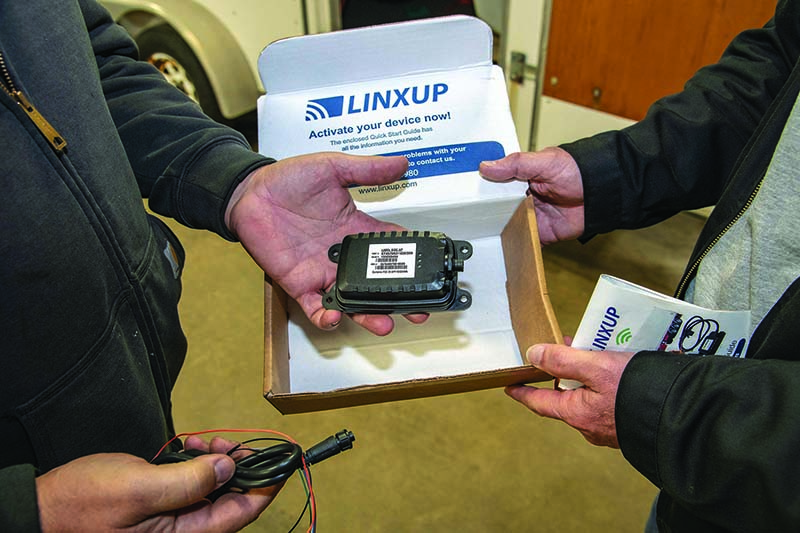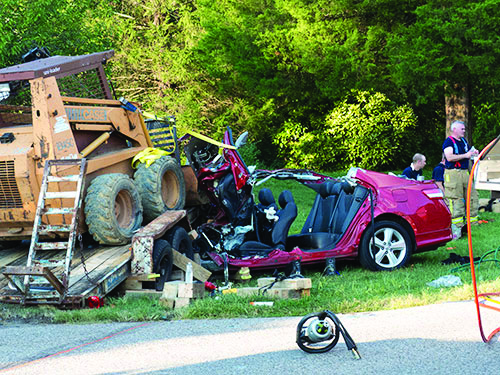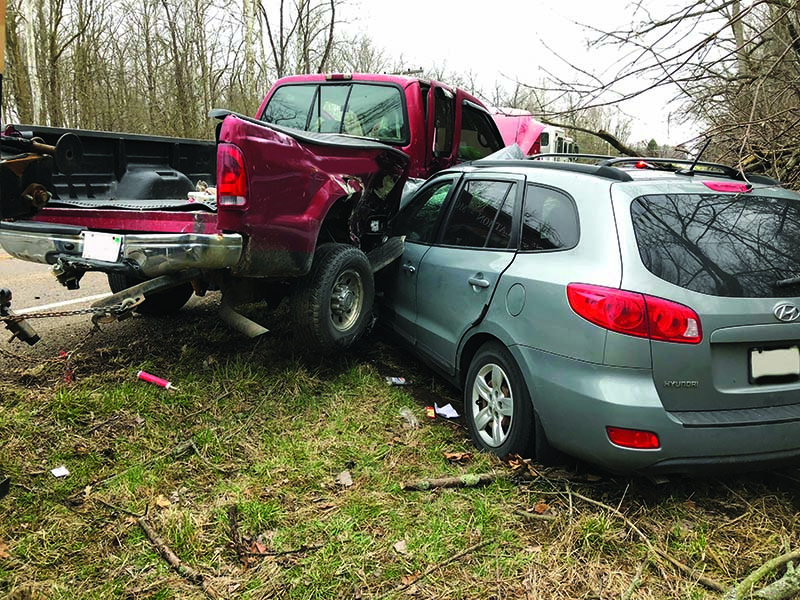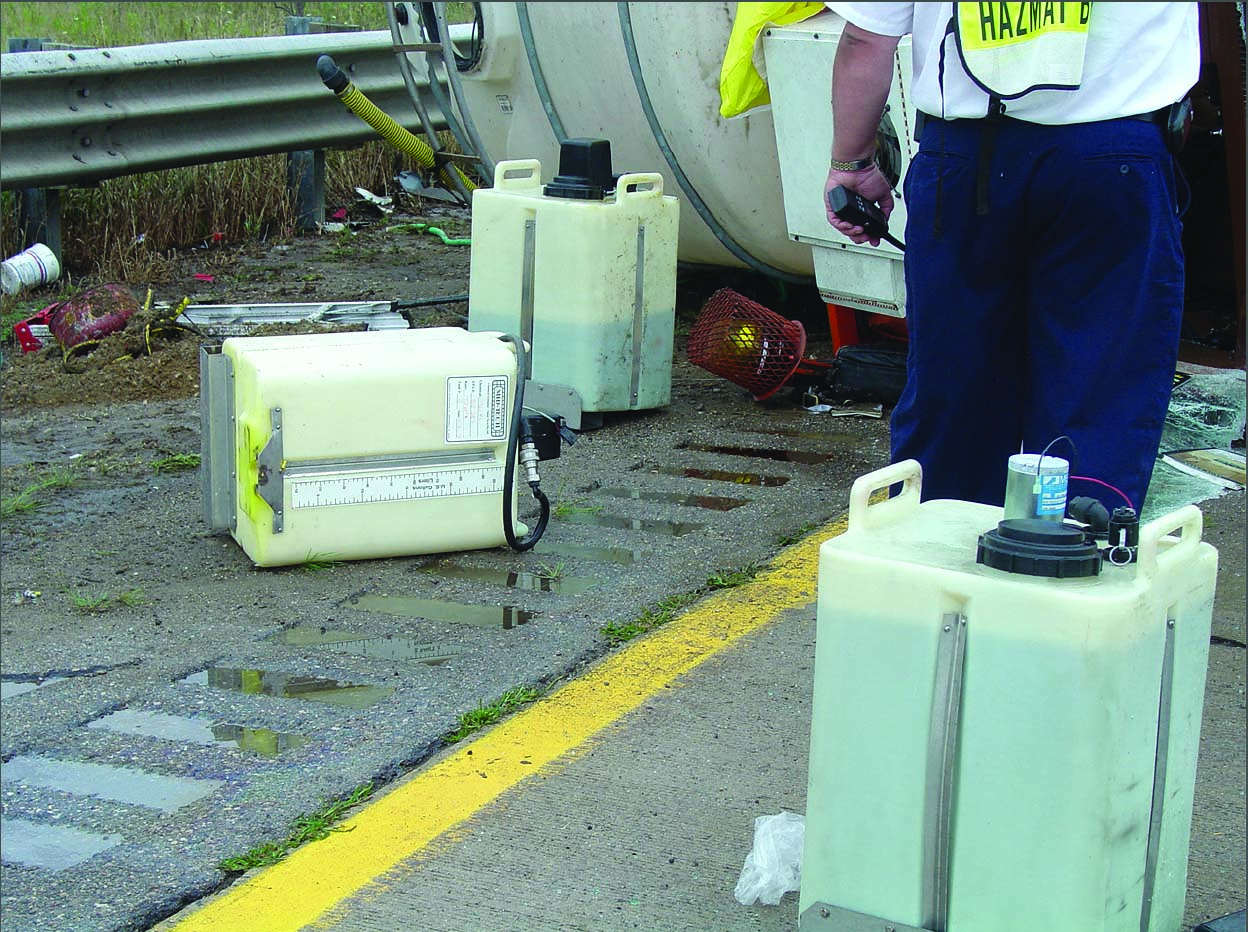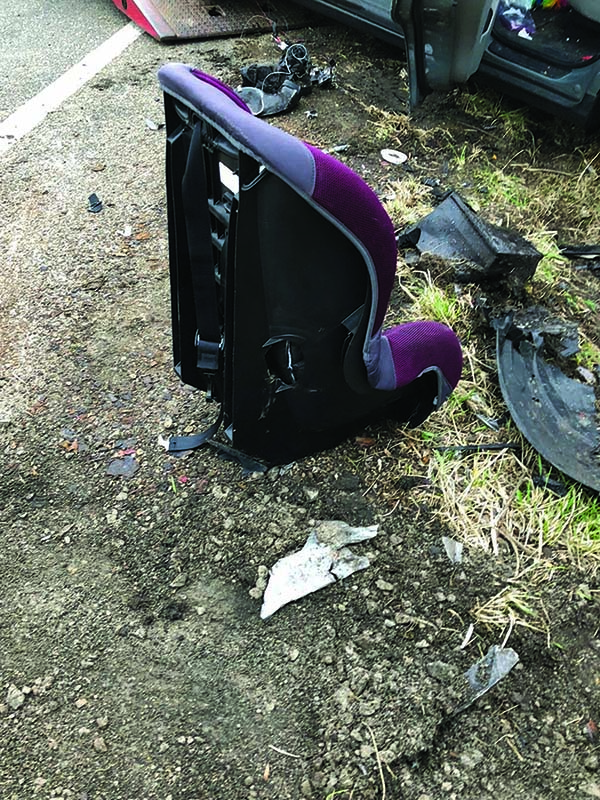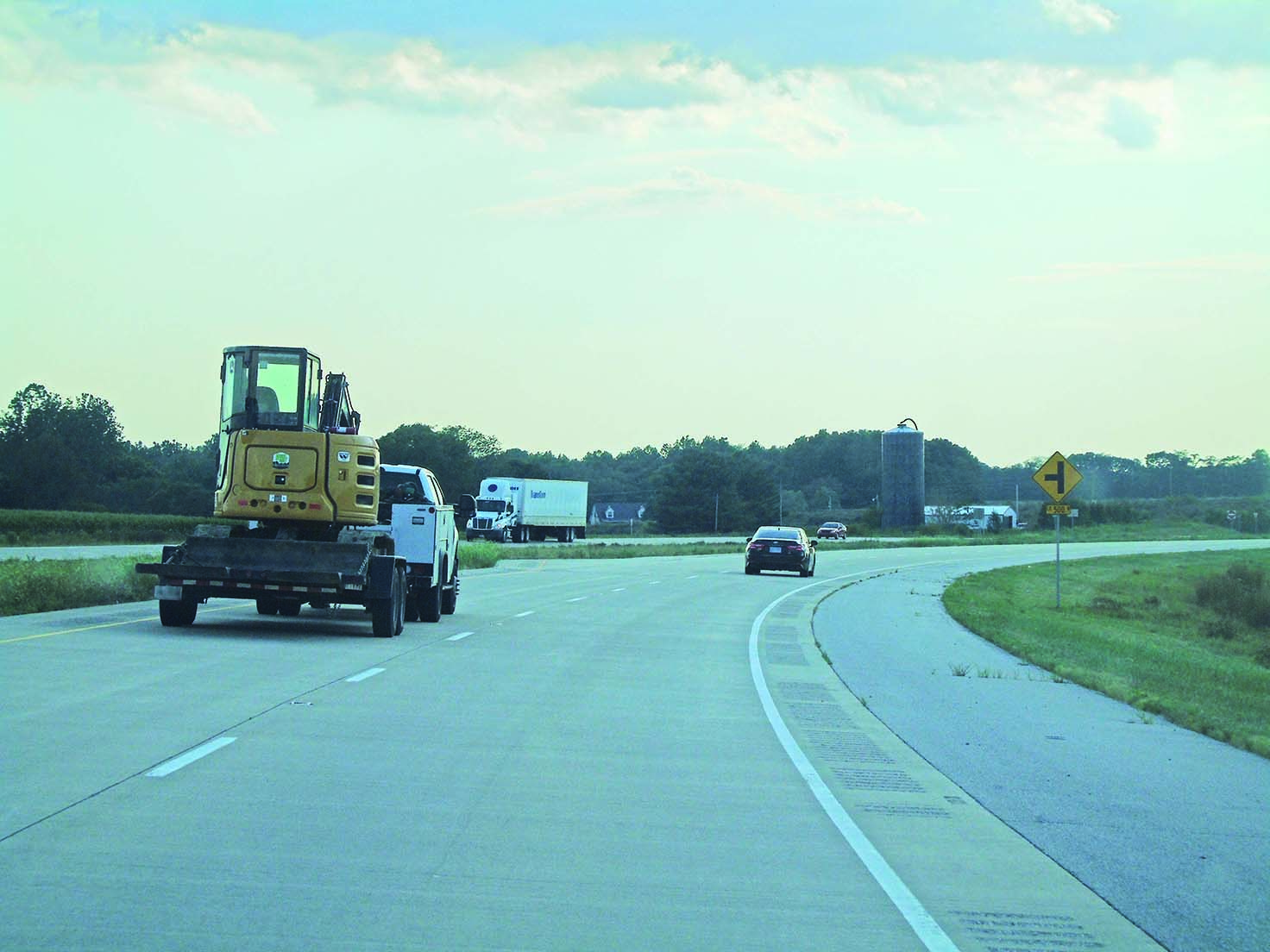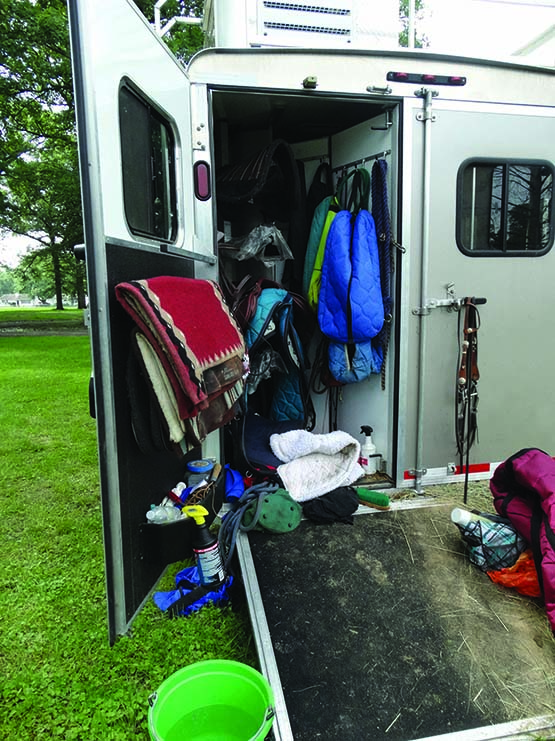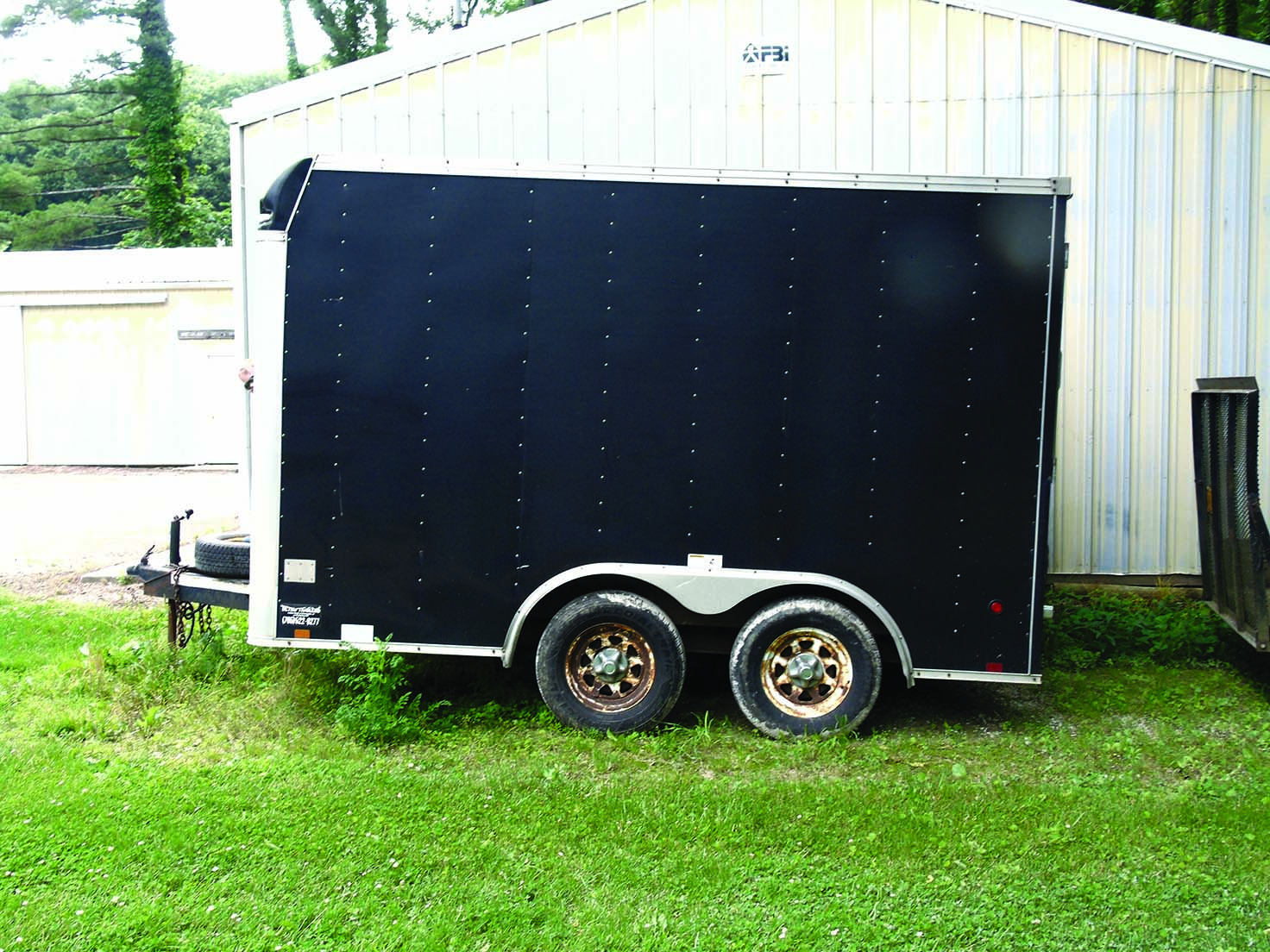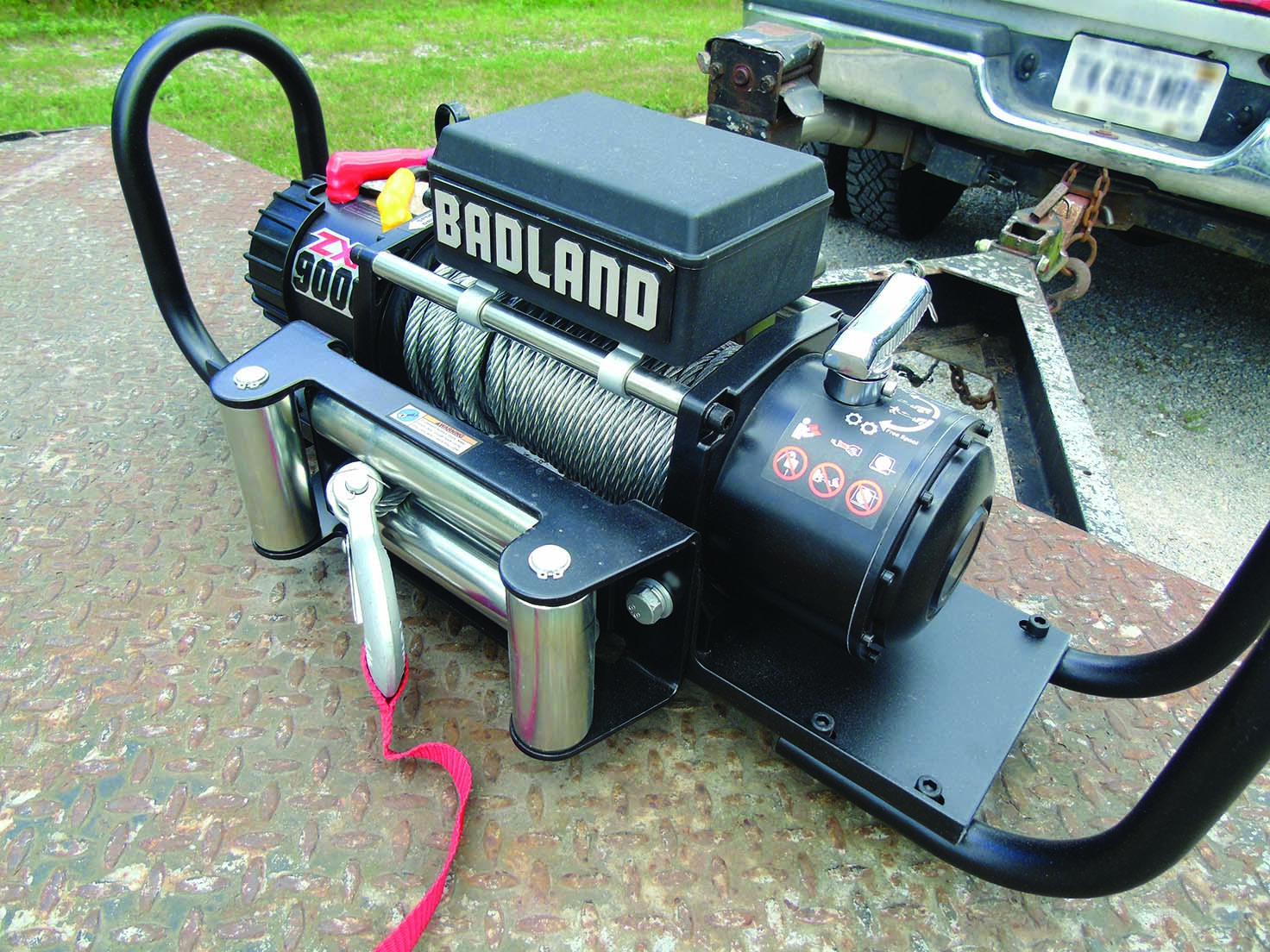Protect Your Trailers And Contents From Theft
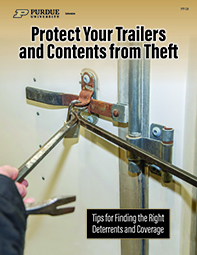
Fred Whitford, Director, Purdue Pesticide Programs
Dennis Nowaskie, Superintendent, Southwest Purdue Agricultural Center
John Adams, Agent, Indiana Farm Bureau Insurance
Steve Hawkins, Director, Purdue Agricultural Centers
John Obermeyer, Integrated Pest Management Specialist, Purdue University
Jeff Hemersbach, Lockshop/Carpentry Crew Chief, Purdue University
Kevin Leigh Smith, Continuing Lecturer and Communication Specialist,
Purdue Agricultural Sciences Education and Communication
3
Here Today, Gone Tomorrow . . . . . . . . . . . . . . . . . . . . . . . . . . . . . . . . . . . . . . . . . . . . . . . . . . . . . . . . . . . . . . 4
Common Types of Trailer Thieves . . . . . . . . . . . . . . . . . . . . . . . . . . . . . . . . . . . . . . . . . . . . . . . . . . . . 8
The Opportunistic Thief . . . . . . . . . . . . . . . . . . . . . . . . . . . . . . . . . . . . . . . . . . . . . . . . . . . . . . . . . . . . . . . . . . . . . 9
The Career Thief . . . . . . . . . . . . . . . . . . . . . . . . . . . . . . . . . . . . . . . . . . . . . . . . . . . . . . . . . . . . . . . . . . . . . . . . . . . . . . . . . 9
The Internal Thief . . . . . . . . . . . . . . . . . . . . . . . . . . . . . . . . . . . . . . . . . . . . . . . . . . . . . . . . . . . . . . . . . . . . . . . . . . . . . . . 9
Ways to Deter a Thief . . . . . . . . . . . . . . . . . . . . . . . . . . . . . . . . . . . . . . . . . . . . . . . . . . . . . . . . . . . . . . . . . . . . . . . . . 10
Towing Vehicle Deterrents . . . . . . . . . . . . . . . . . . . . . . . . . . . . . . . . . . . . . . . . . . . . . . . . . . . . . . . . . . . . . . 12
Parking Deterrents . . . . . . . . . . . . . . . . . . . . . . . . . . . . . . . . . . . . . . . . . . . . . . . . . . . . . . . . . . . . . . . . . . . . . . . . . . 12
Visual Deterrents . . . . . . . . . . . . . . . . . . . . . . . . . . . . . . . . . . . . . . . . . . . . . . . . . . . . . . . . . . . . . . . . . . . . . . . . . . . . . 18
Mechanical Deterrents . . . . . . . . . . . . . . . . . . . . . . . . . . . . . . . . . . . . . . . . . . . . . . . . . . . . . . . . . . . . . . . . . . 20
GPS Asset-Tracking Deterrents . . . . . . . . . . . . . . . . . . . . . . . . . . . . . . . . . . . . . . . . . . . . . . . . . . . . . . 28
Noise Deterrents . . . . . . . . . . . . . . . . . . . . . . . . . . . . . . . . . . . . . . . . . . . . . . . . . . . . . . . . . . . . . . . . . . . . . . . . . . . . . 28
Understand Your Insurance . . . . . . . . . . . . . . . . . . . . . . . . . . . . . . . . . . . . . . . . . . . . . . . . . . . . . . . . . . . 29
Help Police Solve the Mystery of the Stolen Trailer . . . . . . . . . . . . . . . 34
Conclusion . . . . . . . . . . . . . . . . . . . . . . . . . . . . . . . . . . . . . . . . . . . . . . . . . . . . . . . . . . . . . . . . . . . . . . . . . . . . . . . . . . . . . . . . . . . 36
Acknowledgments . . . . . . . . . . . . . . . . . . . . . . . . . . . . . . . . . . . . . . . . . . . . . . . . . . . . . . . . . . . . . . . . . . . . . . . . . . . . 39
Disclaimer . . . . . . . . . . . . . . . . . . . . . . . . . . . . . . . . . . . . . . . . . . . . . . . . . . . . . . . . . . . . . . . . . . . . . . . . . . . . . . . . . . . . . . . . . . . . 39
HERE TODAY, GONE TOMORROW
Whether you get your news listening to the radio, watching television, reading the paper, or browsing online, it always seems that someone’s trailer or its contents was stolen from a home, business, or worksite. It doesn’t matter who owns the trailer — it could be an individual, a farming operation, a volunteer organization, a summer youth baseball team, a university grounds crew, or a commercial pesticide company — all trailers are vulnerable. Thieves always look for “inviting” opportunities to take trailers, equipment, and/or pesticides off your hands. Permanently.
That’s because we know that there is, and always will be, a market for stolen goods like trailers, construction equipment, pesticides, and hand tools. Most thieves steal these items, because they are hard to trace and thieves can quickly and easily turn them into cash. Thieves can sell your trailer (or what was your trailer) in states that do not require a title at the time of sale, and they can sell your tools from the trailer at a pawn shop in another city. It’s as simple as: here today, gone tomorrow.
Thieves can easily sell equipment and supplies such as pesticides, application equipment, hand tools, mowers, bulldozers, backhoes, skid steers, sprayers, off-road bikes, boats, and 4-wheelers. You might ask yourself why thieves find such equipment so enticing. The reason is rather simple: Most of these stolen items can never be traced back to their original owners. However, you could potentially be held liable if hazardous materials stolen from your trailer are misused and harm human health or contaminate the environment.
There are other reasons why thieves target trailers and the equipment on or in them, such as:
• People seem less skeptical of buying a trailer when the selling price is just too good to pass up.
• This type of equipment is easy for thieves to sell, because there are plenty of buyers waiting for their chance to get a deal.
• The chances that law enforcement will apprehend a thief are slim to none.
• Equipment sitting on an open trailer allows thieves to know exactly what they are stealing.
• Trailers are largely indistinguishable from the thousands of look-alikes being towed on the highway, because most manufacturers use similar designs.
• Trailers also are easy targets, because most owners do nothing (and we mean absolutely zero) to prevent the theft of their property.
• Enclosed trailers potentially carry expensive equipment and tools. To a thief, it’s like opening a Christmas present. They may be pleasantly surprised with what’s inside!
Pilfering trailers is not going away any time soon. For thieves, there’s simply too much money to be made by taking someone else’s trailer and its contents. Your choices can actually provide a welcoming invitation to those who would like to separate you from your trailer. Outlaws do nothing more than simply back up, hook to, and drive off with your (now their) trailer. Rest assured: if you do nothing to prevent this, it’s not a question of if your trailer will come up missing, but when.
Most trailer owners will tell you that if thieves really want a trailer, they will get it. That might be true in some circumstances, but by making it more difficult for would-be thieves to take what rightfully belongs to you, you show some resolve. In most cases, doing something as simple as placing roadblocks in front of your trailer to slow thieves down or make them earn what they want to steal is often enough to deter thieves and make them look elsewhere for an easier target. If you want to keep your possessions and belongings, there are steps you can take to better secure them.
This publication provides strategies for those who want to protect and reclaim their property. We focus on three strategies:
1. Provide tactics that will better protect a trailer and its contents from becoming a police statistic
2. Know up-front (rather than after the fact) what your insurance can and cannot do if your trailer or equipment are stolen and never recovered
3. Dot your I’s and cross your T’s when you report a theft to law enforcement
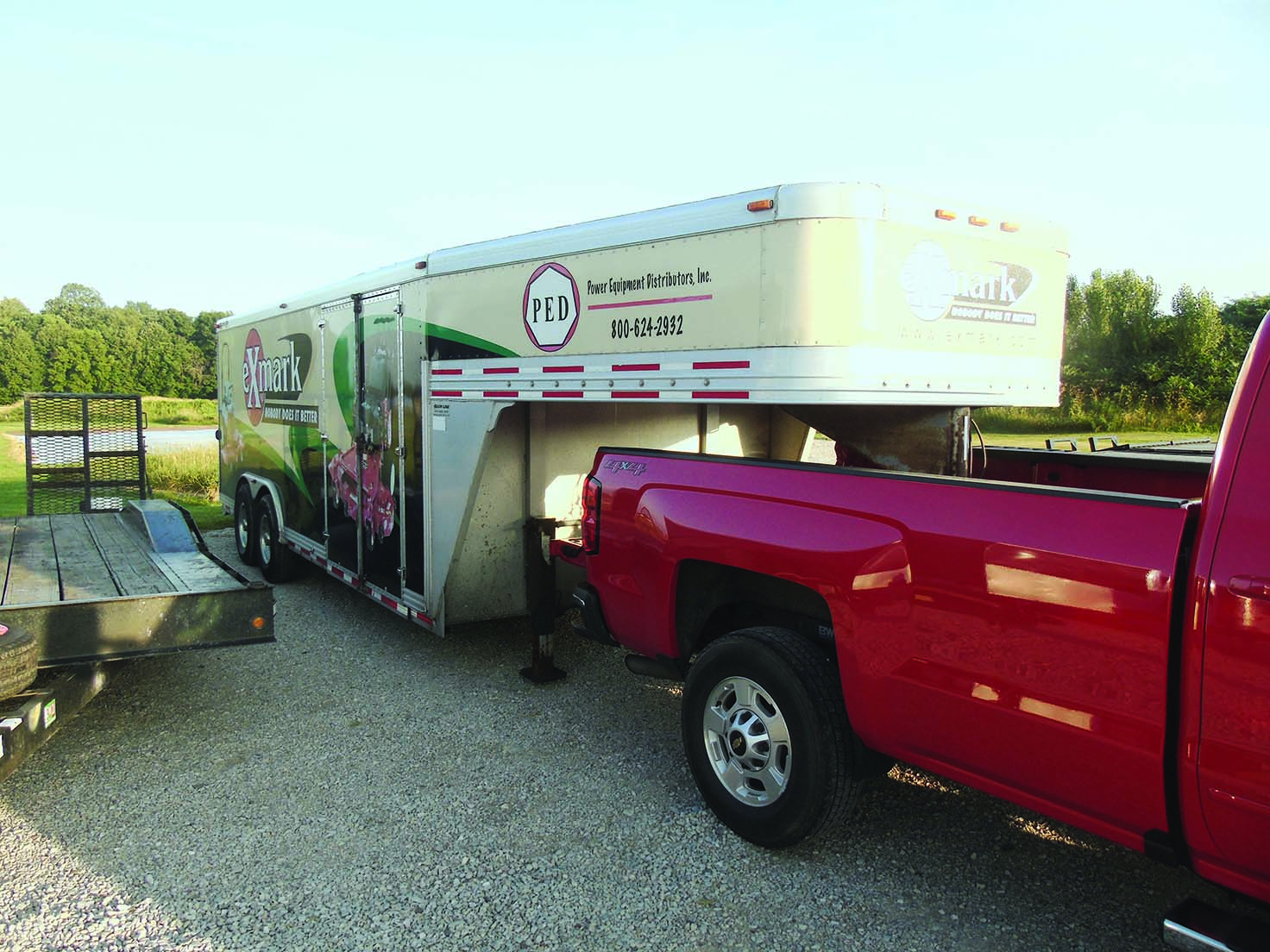 When thieves see this trailer, they think, “I wonder if it’s locked? There has to be some good stuff in this one!”
When thieves see this trailer, they think, “I wonder if it’s locked? There has to be some good stuff in this one!” 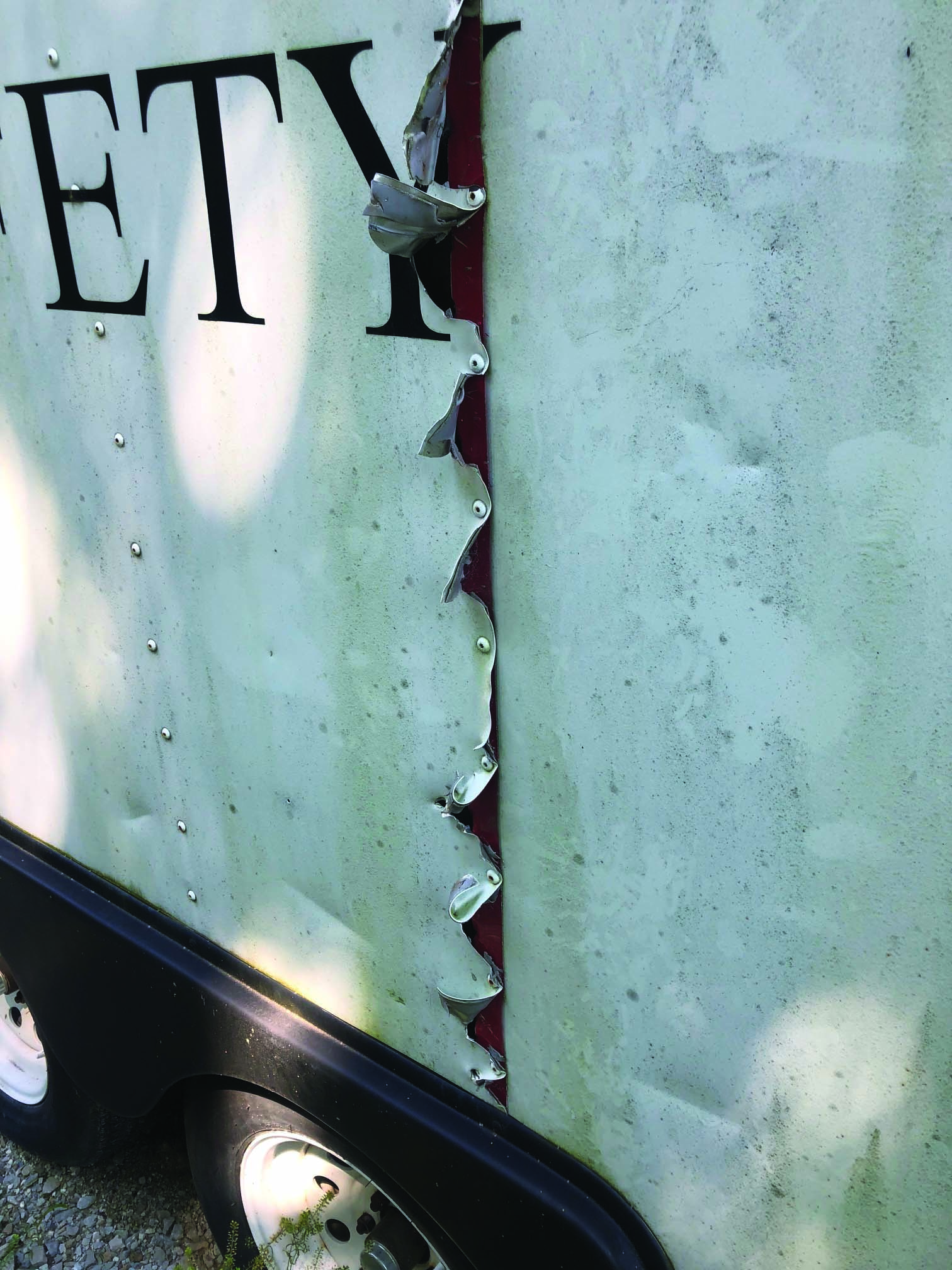 Thieves will try to get in trailers through the doors and even through the sides. Consider preventative steps to secure your investment.
Thieves will try to get in trailers through the doors and even through the sides. Consider preventative steps to secure your investment. Common Types of Trailer Thieves
We have observed that there are three types of thieves who steal trailers and the equipment in or on them: the opportunistic thief, the career thief, and the internal thief.
THE WOW FACTOR!
Many thieves have no idea what’s inside a trailer. In fact, some steal just for the wow factor that happens when they break the lock and get that first glimpse of what is inside. If they strike gold, it’s “Wow, look at this stuff.”
The Opportunistic Thief
As the name implies, this type of thief is looking for any opportunity to make a quick buck. Opportunistic thieves are usually amateurs and not particularly creative about what they steal.
They look for easy targets. Their basic tools are crowbars and sledge hammers. This means any security device you purchase must withstand prying and pounding. As a rule, opportunistic thieves generally don’t know the value of the heist or to whom they will sell it. Their hope is to sell the trailer and any equipment and supplies for whatever they can get as quickly as possible. If you use a few security measures on your trailer, it is a less attractive target for opportunistic thieves.
The Career Thief
Career thieves are full-time criminals who carefully think about the specific trailers and equipment they want to steal. Career thieves are creative, knowledgeable, and get in and out quickly. They know what they want, how to get it, and usually who they are going to sell it to.
Career thieves are challenging foes, because they:
• Usually work in teams as part of an organized and tactical effort
• Target specific makes and models of trailers and equipment
• Know the value of what they are stealing
• Scope out the trailer’s location multiple times during a day to see activity patterns
• Do their homework, so they know the right time
• Use social media to determine if you might be away for a few days
• Are able to extract a trailer in short order
• Have buyers in mind who will not ask questions about the source of the goods
The Internal Thief
Past employees can be internal thieves. Former employees often retain keys, have codes to security locks, and know what you are housing at the facility. All of these can lead to them stealing valuable property. Because they know the property, you should always view them as a serious threat to stealing property.
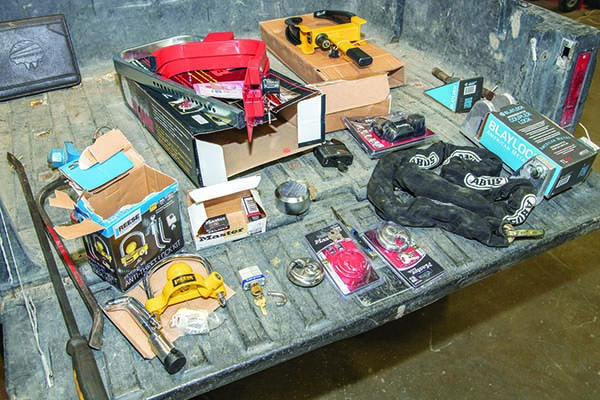
Ways to Deter a Thief
Being able to identify how thieves can uncouple or detach a trailer from a truck is the first step in preventing them from driving off with your property. The major components of a Reece-style hitch include where the insert fits into the receiver, the ball, coupler, and the coupler’s locking mechanism. If you can use simple devices to help make those areas more secure, you might be able to prevent an attempt to steal a trailer.
Ask yourself: “If I secure it here, can a thief still uncouple the trailer?”
Time Can Deter the Would-be Thief
Time is your friend and a thief’s enemy. Anything you can do to delay thieves and make them use more time to steal may help save your possessions. Placing obstacles in front of your trailer increases the time it takes a thief to hook up to a trailer, move a trailer, or break into an enclosed trailer. Thieves understand that the longer it takes to attach trailers to their vehicles or to get inside of them, the greater chance they have of getting caught.
Strategies such as parking against a wall or a building to secure doors and hitches will cost you nothing but a little forward thinking and only takes a minute or two. Other strategies, such as security devices (padlocks), range in costs but only take a few minutes to install. Anything you can do to cause thieves more time may even deter them from taking your possessions.
Be sure to select a well-made coupler ball lock that fits your trailer. Always double-check all security devices before you buy them.
You can easily communicate a security strategy for individual- or family-owned trailers to those concerned. A business with multiple trailers will require additional training and oversight of staff to make certain that employees follow security policies.
Preventing a theft requires a little time to think about what you want to accomplish. Knowing the weak security points of your truck-trailer combination, and learning more about the security products you can buy are great deterrents. The last thing you want to do is spend money on devices that don’t fit, don’t work, or take too long to put on and take off.
There is a wide array of locking mechanisms and deterrents. This means you will have to do a little homework to decide which one works best for your security needs.
Conversely, you don’t want to place confidence in devices that look strong, but in reality, only take seconds to break (for example, locking pins on inserts). Remember, many times thieves do not even want the trailer, they want its contents. Thieves often abandon trailers after they remove and sell the contents. A legitimate question to ask ourselves is: Why do we continue to use cheap, flimsy padlocks to protect property inside or on a trailer that might be worth thousands of dollars?
Although it may not be practical to implement all of the anti-theft strategies we describe, you should implement more than one strategy to keep the thieves at bay. Our hope is that by adopting one or more of the multiple security options that we suggest, you will help keep your trailers (and their contents) secure.
In the sections that follow, we will examine six kinds of trailer theft deterrents.
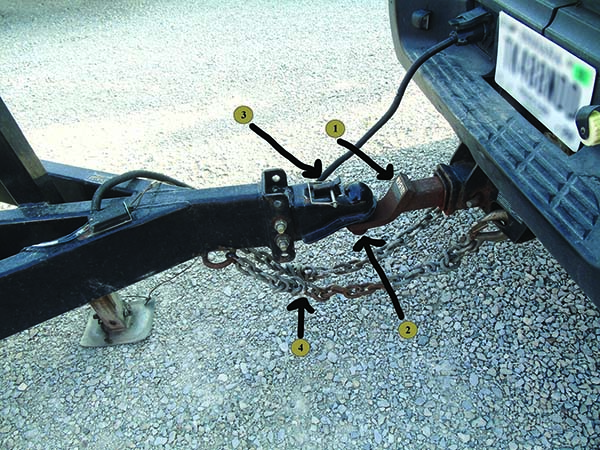
1. Towing Vehicle Deterrents
When it comes to deterring thieves, you don’t want to make stealing your towing vehicle too easy. Here are some practices you can implement with your towing vehicle to deter would-be thieves.
- Don’t leave keys in the ignition
- Secure or remove items in the bed of the truck – they will attract attention
- Lock or bolt accessory boxes or items to the towing vehicle
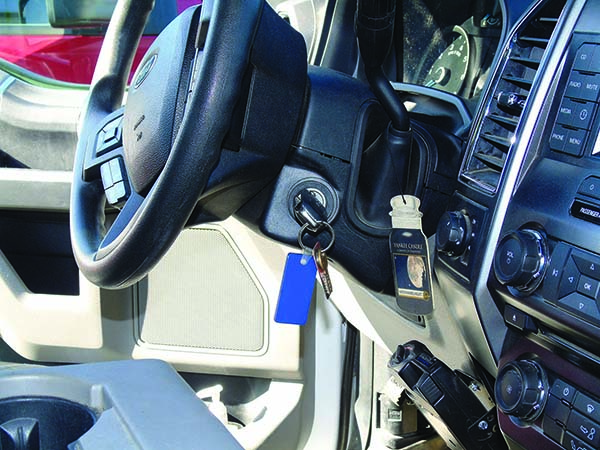
These days, most manufacturers already equip larger equipment with theft deterrents in place – such as keys and keypad codes. Know how to use these tools to immobilize equipment.
Securing your tire tells thieves: “Keep your mitts off.”
2. Parking Deterrents
There is no good answer to the question: Where is the safest or most secure place to park a trailer? Is it better to park a trailer out in the open or hide it? Both options have pros and cons.
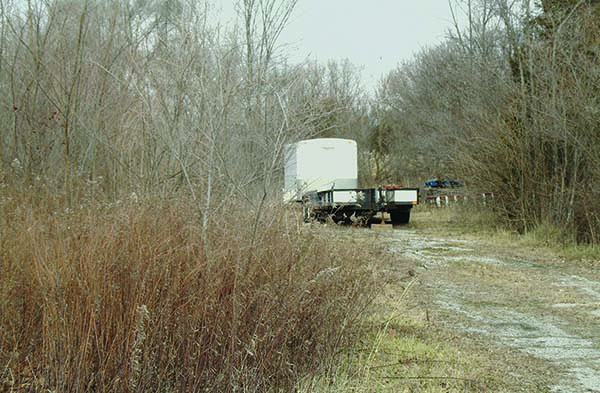
If you park a trailer in a location that is highly visible to the public, opportunistic thieves might be less inclined to steal and more worried about being seen and getting caught. On the other hand, career thieves might take more time to consider the risks and benefits of attempting such a heist. They may anticipate what is inside an enclosed trailer or know the value of what is on a flatbed trailer.
If you park a trailer by tucking back in the woods, the trailer might be easier to steal, because there is less activity and it might be weeks before anyone notices or realizes it is missing. Still, thieves would have to know where that well-hidden trailer is before they could take it.
Wherever you decide to park your trailer, make sure it will be difficult for anyone to just hook up to it and drive away. In addition, make it difficult for thieves to look inside enclosed trailers to see what goodies there are for them to take.
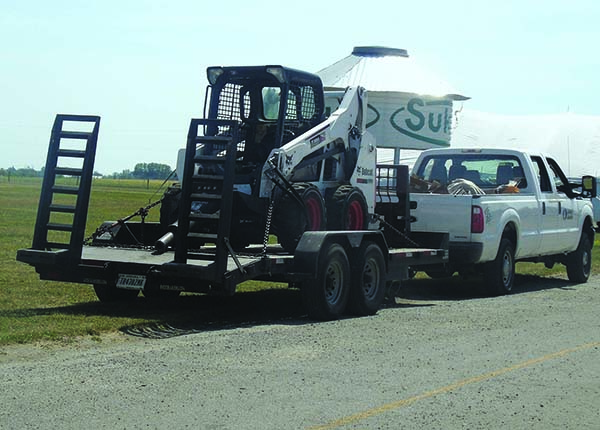
Whether you park at home, on the farm, or at a worksite, following a few very simple anti-theft strategies can help keep the trailer and its contents where they belong.
These strategies include:
- Park the trailer in sight of a trusted neighbor or business who can keep an eye on it.
- Lock the truck.
- Keep the trailer secured to the truck when you park overnight.
- Place a vehicle or another trailer in front of an unhooked trailer.
Access denied! Blocking a trailer with a truck or another trailer is one step to protecting your property. What other step can you add to create a one-two security punch?
It is a good idea to back trailers against an object such as the outside of the building. However, it was possible in this case to open the doors enough so that thieves could have stolen some of the smaller items.
• Back the doors of an enclosed trailer against another trailer or building.
• Back the trailer against a fence, wall, tree, or curb. That way, even if thieves manage to unhook the trailer from the truck, it will be difficult for them to push back or swing the tongue around to pull it forward.
• Park under a security light.
• Install a motion detector with lights where you park your trailer.
• Park your enclosed trailer in a position where the access door is against a wall in order to prevent the door from opening. Make sure the door is close enough that thieves cannot open it enough to remove the contents.
• Enclose your trailer yard with a “cut-resistant” security fence. Such fences have links that are small, which make them difficult to cut through.
• Secure trailers and equipment in a locked building.
• Use a security camera to monitor trucks and trailers in the lot.
Implement multiple security methods to delay or deny access to your assets.
Theft: An Instruction Manual
Thieves broke into this enclosed work area by climbing the fence. They forced the cover off the controls and simply read the instructions about how to disconnect the fence. The thieves just rolled the gates open and stole the trailers and equipment.
What could the trailers’ owners have done to prevent this theft?
This business owner put up a chain over the driveway along the security fence to protect his property in case thieves open the gate.
- Place a sign in a highly visible location that warns that the property is being monitored by a security system even if it’s not. Some property owners even mount non-working cameras outside buildings to give the appearance of security cameras.
- If you need to spend the night at a hotel, ask the attendant which parking lot if any has surveillance cameras and good lighting.
3. Visual Deterrents
Manufacturers mass produce trailers on assembly lines, and they literally look exactly like hundreds of other trailers that were built before and after the one you purchased.
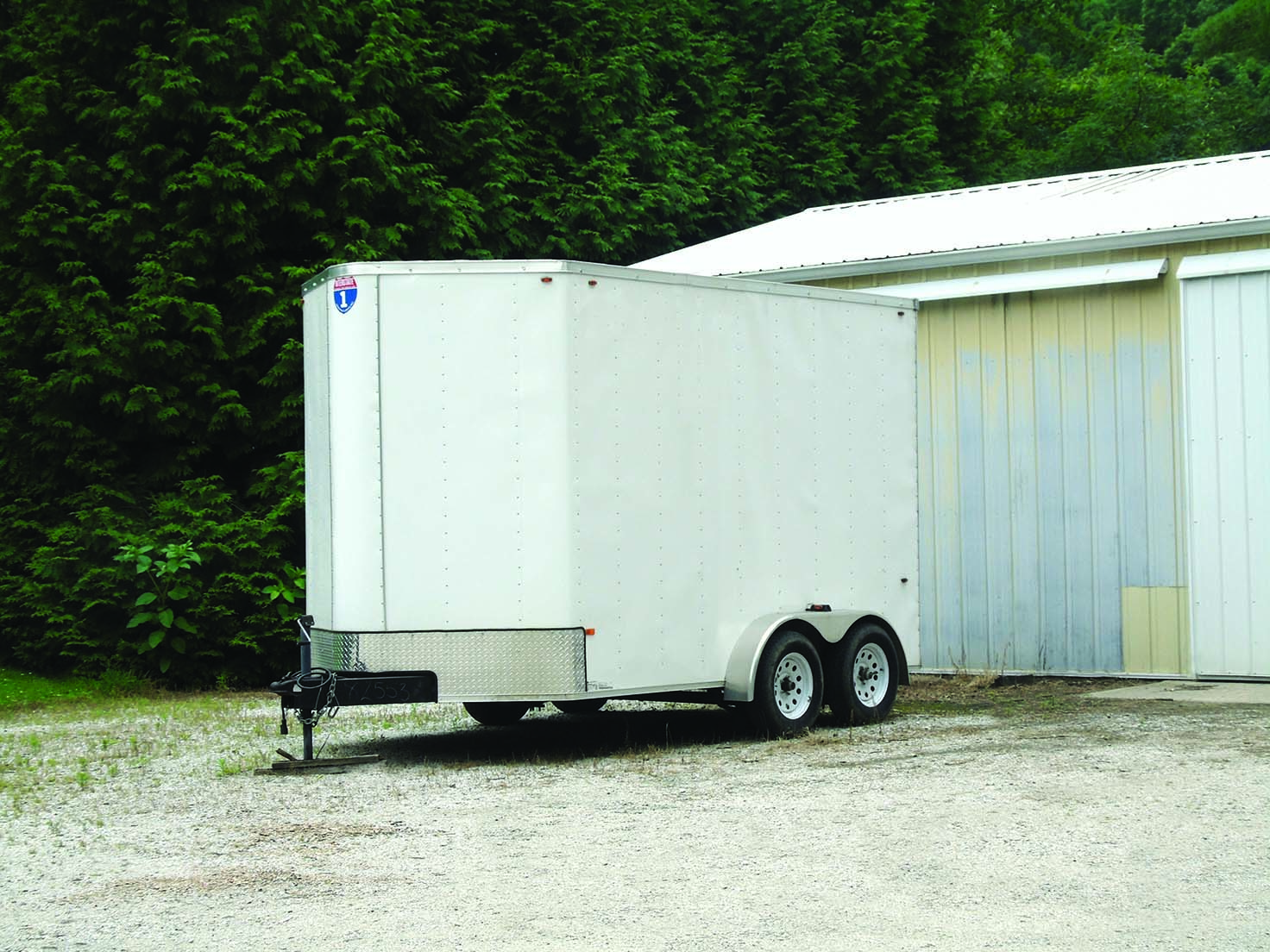
To help make your trailer and property less desirable to would-be thieves, consider these visual tactics to make your trailer stand out.
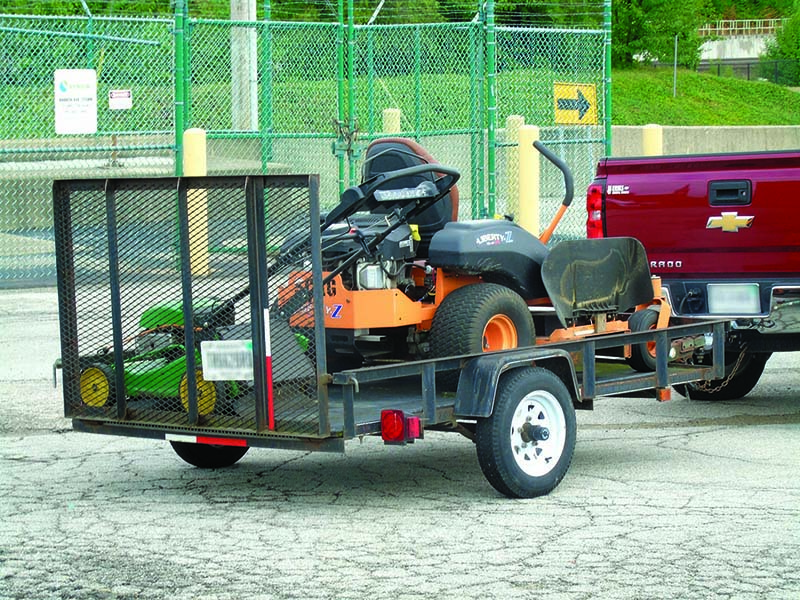
Custom identifiable markings are useful advertising. They’re also features that make thieves pass up your easy-to-spot trailer for less obvious ones.
Put distinctive lettering or images on enclosed trailers.
Stolen trailers that have no distinguishable markings are easier to sell than identical trailers that clearly display the name of the agency, company, or farm on them. Marking your equipment might make potential buyers question the legitimacy of the deals they’re being offered.
Although it is true that thieves could repaint trailers to cover up lettering or imagery, how many thieves, looking to make a quick buck, would want to take the extra time or effort to do that?
Paint a number in multiple locations on the trailer (underneath as well as in visible locations).
If someone steals your trailer, having the serial numbers and other identifying markings on your equipment may help in recovery.
Paint or place decals on top of enclosed trailers.
Typically, thieves never take the time to look on top of trailers. Markings on top would make it more helpful to identify stolen equipment.
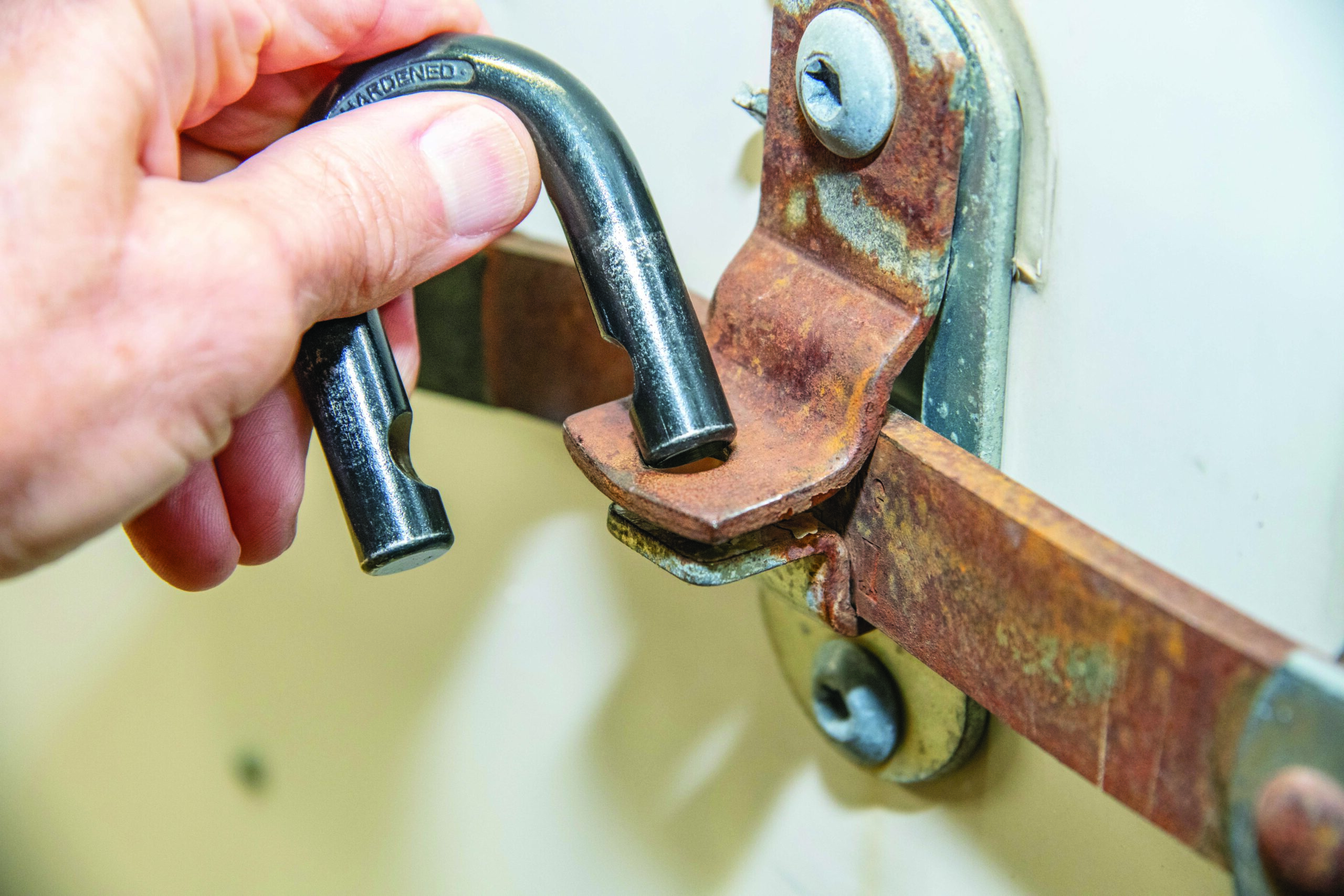
4. Mechanical Deterrents
While no mechanical device is foolproof, using mechanical devices goes a long way in protecting your property. There are several types of devices you can purchase to lock down trailers. But before you purchase any device, make sure it will be easy to use and maintain.
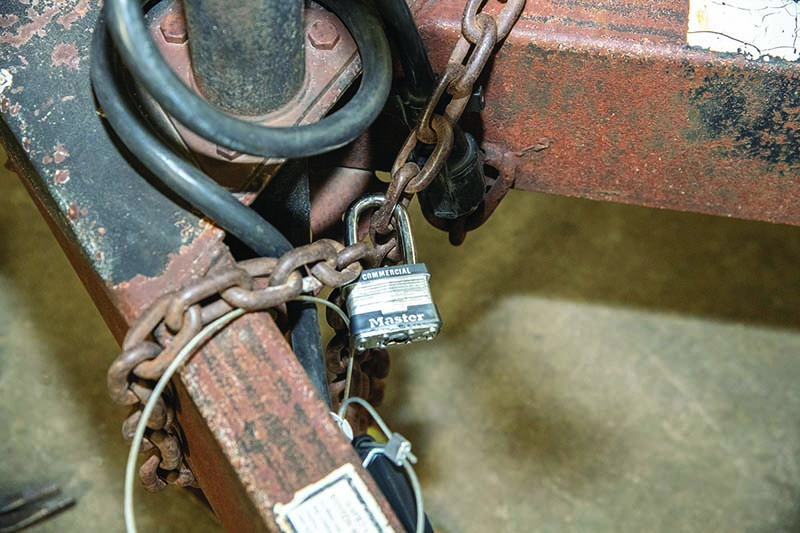
If a device is too complicated or difficult to attach and detach, you or your crew are less likely to use it each and every time you park the trailer. Buying security devices just to have them sit in the bed of a truck, in a tool box, or on a shelf in the shop is a waste of money.
When purchasing locks, consider buying ones that come equipped with protective caps to keep out moisture, salt, grit, and sand. Locks that get exposed to the elements(such as salt and sand during the winter, or rains during the spring) become sticky and rusty and difficult to use. As with any locking device, properly maintain your locks (for example, lubricate them) to keep them functioning properly.
Here are a few more mechanical deterrents you can consider incorporating in your security practices.
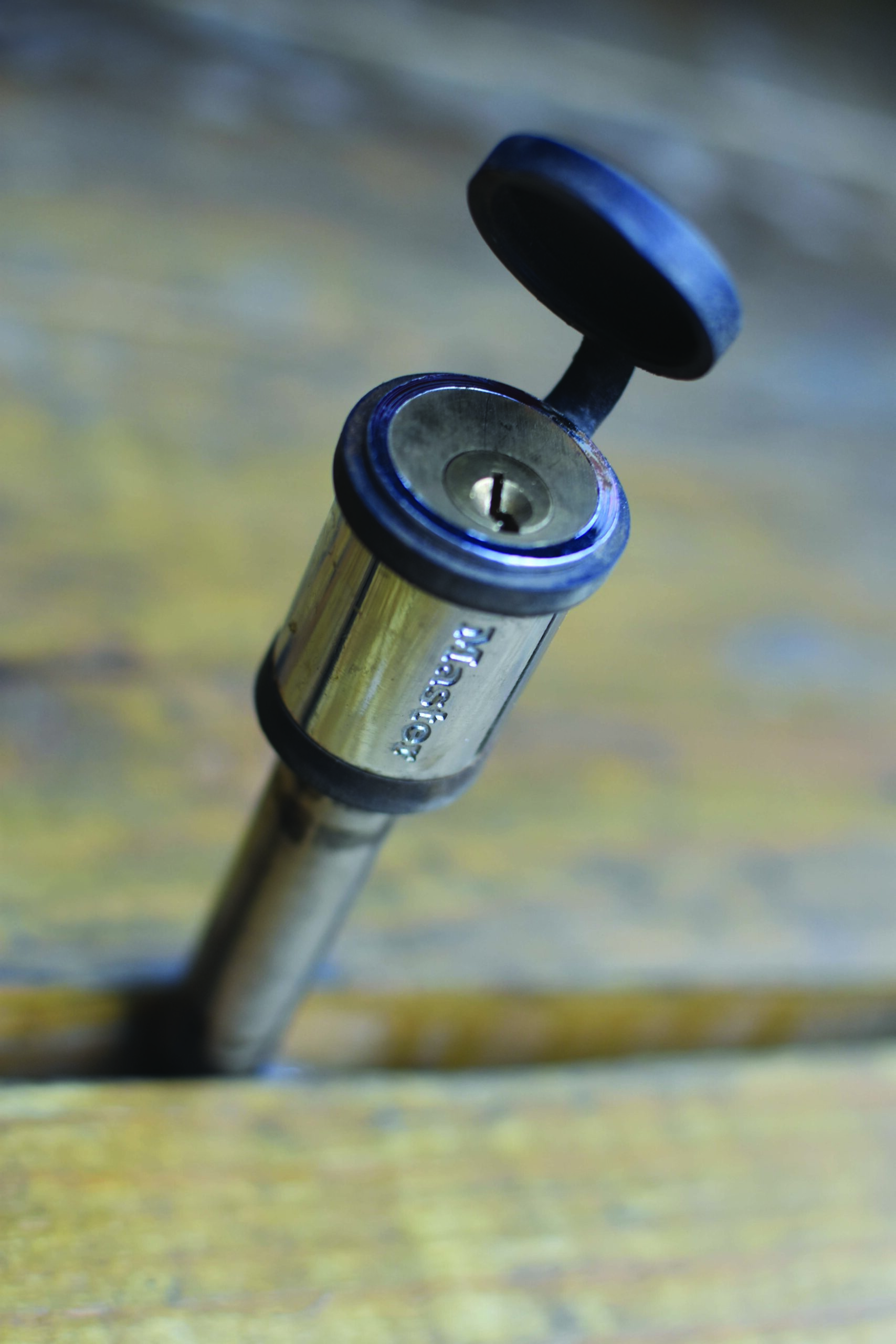
Chain trailers to immovable objects.
Make sure the chains are visible to would-be thieves. There are recorded instances of thieves who tried driving off
with trailers secured this way but did not see the attached chains, which considerably damaged the trailers.

Pull emergency brake cables out of trailers to lock the wheels.
If you implement this suggestion, place the brake cables inside the truck cab and lock the doors. Also, make sure trailer batteries are in good condition. Activating the brakes in this manner will put a load on batteries and possibly drain them within 24 hours.
Make the trailer drag its feet. Removing brake cables is a simple technique that slows down thefts. Keep the brake cables visible so you don’t drive off without reinserting them.
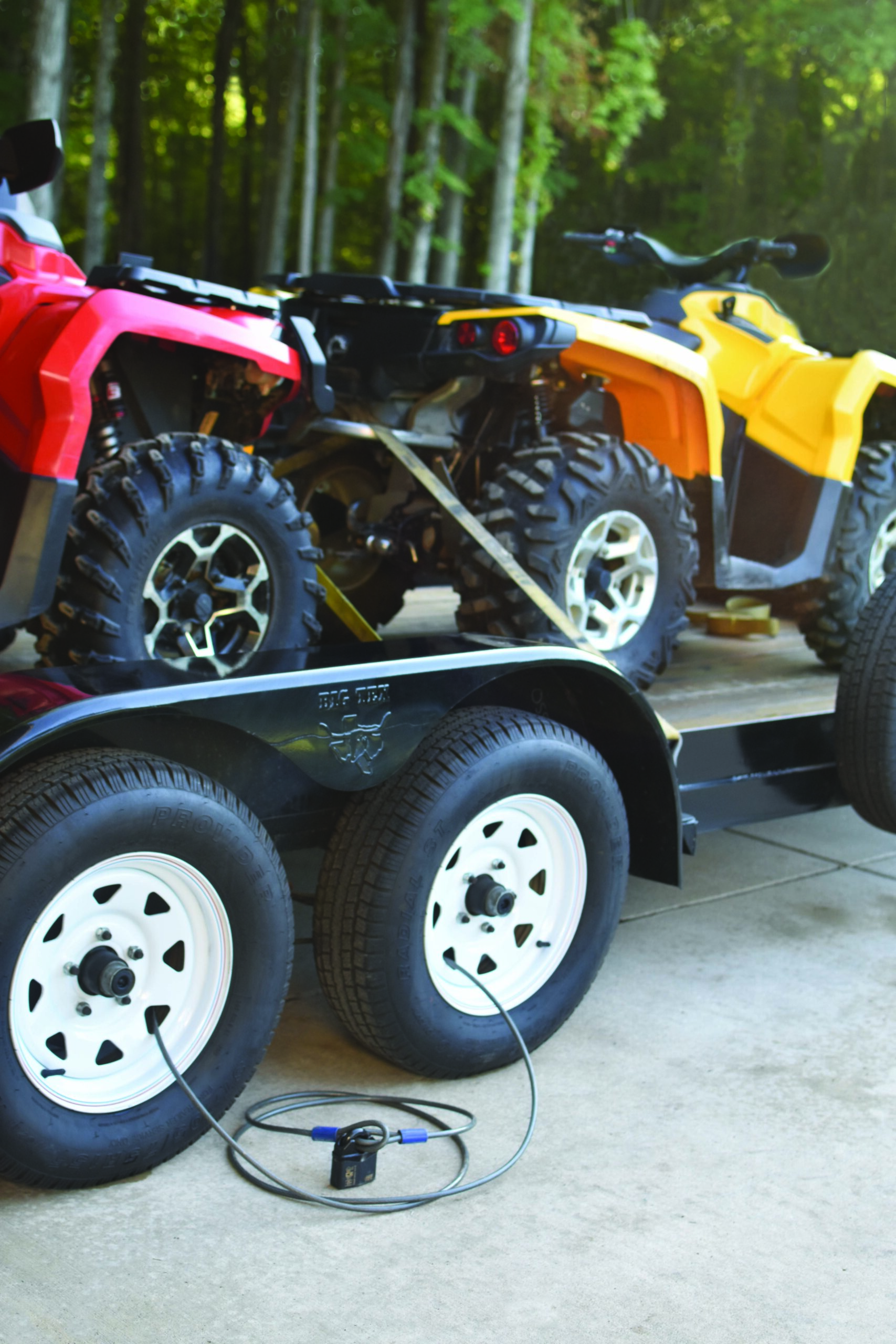
Run a chain or cable through the wheel rims and back around to the trailer frame or from tire-to-tire.
If you do this, make sure to use grade strength 43 or 70 chains that have links with a 5/16-inch diameter or greater to make it more difficult to cut the chain with bolt cutters.
Use locking hitch receiver pins.
This will keep the insert from being quickly removed.
Lock security chains to trailers.
This practice will prevent someone from pulling your equipment by those chains.
Use wheel locks to prevent movement.
Most wheel locks are colorful so they also serve as a visual deterrent to would-be thieves.
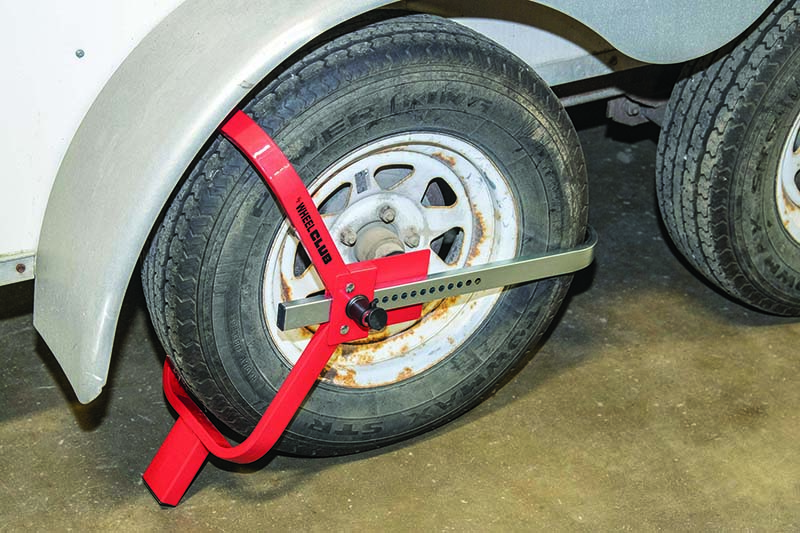
Leave enclosed trailers unlocked when empty.
If thieves can easily open your trailer they will see there is nothing to steal. This might also keep thieves from damaging your trailer attempting to open the locks and the doors.
Purchase high-quality locks that can withstand cutting, bending, prying, or being picked.
Locks are such an important mechanical theft deterrent, that it is worth examining them in more detail.
CHOOSE THE RIGHT LOCKS
Consider the price of locks. Unfortunately, most people consider a solid lock (whatever that means) as one that costs less than $10. We often hear, “Look at the bargain deal I got with this heavy-duty lock — only $7.95 on sale.”
Because you ask locks to do so much, chances are that you will need to spend $30 to $50 to get a good quality lock. You might be thinking, “Pay $50 for a lock? You must be crazy.” To that we say, you didn’t have any problem spending tens of thousands of dollars for the trailer, the equipment, or the tools. So, why go cheap on the lock that protects them? If you put it in perspective, $30 to $50 for a high-quality lock is a small price to pay to protect thousands of dollars’ worth of investments.
It only took 5 seconds to cut through this lock with a cutting wheel!
The cutting wheel cannot reach the shackle of this lock.

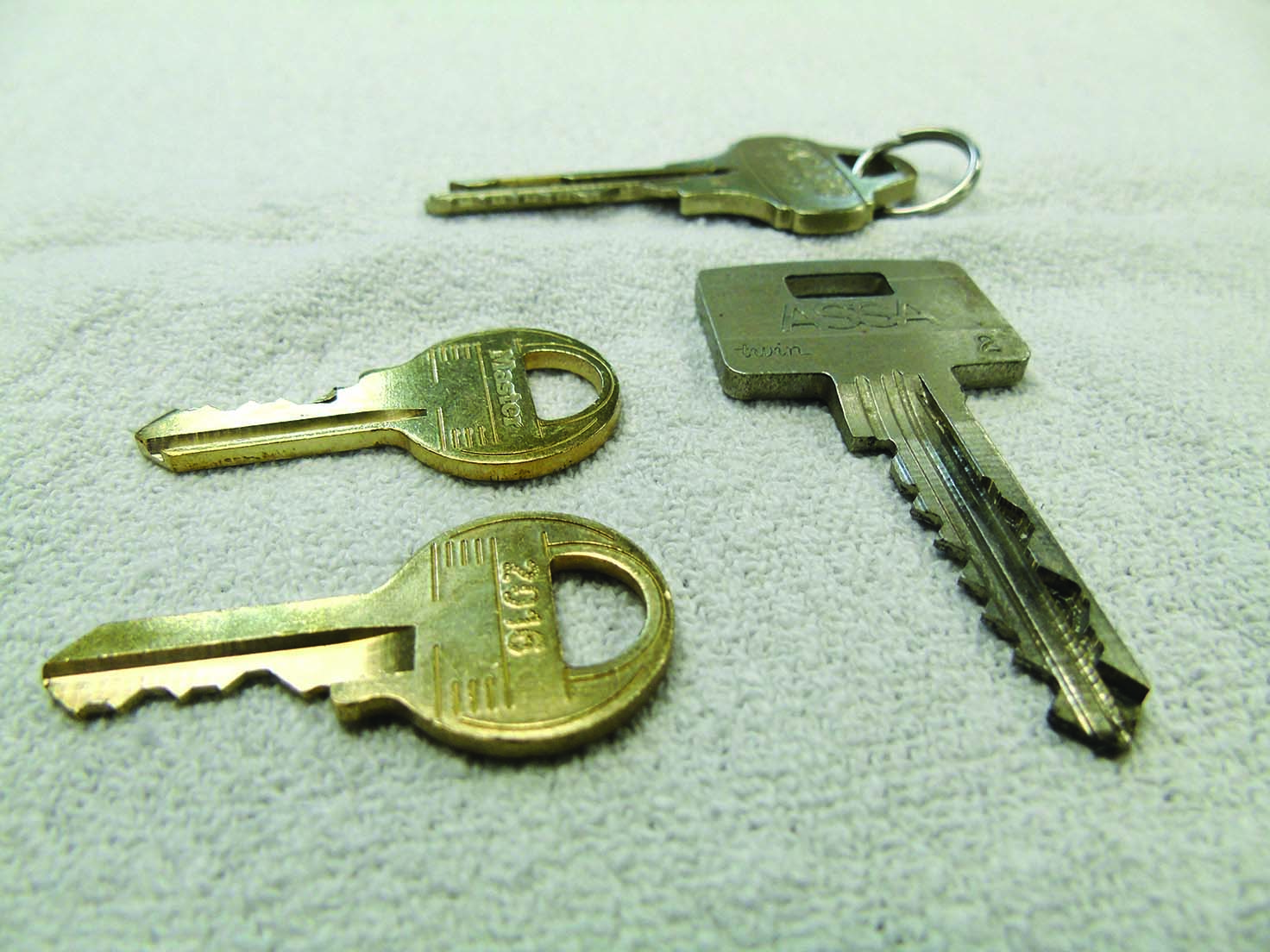
Aside from price, there are several other things you should consider when purchasing locks.
Select locks made of hardened steel.
Locks made of hardened steel can better withstand cordless grinders, bolt cutters, or crowbars.
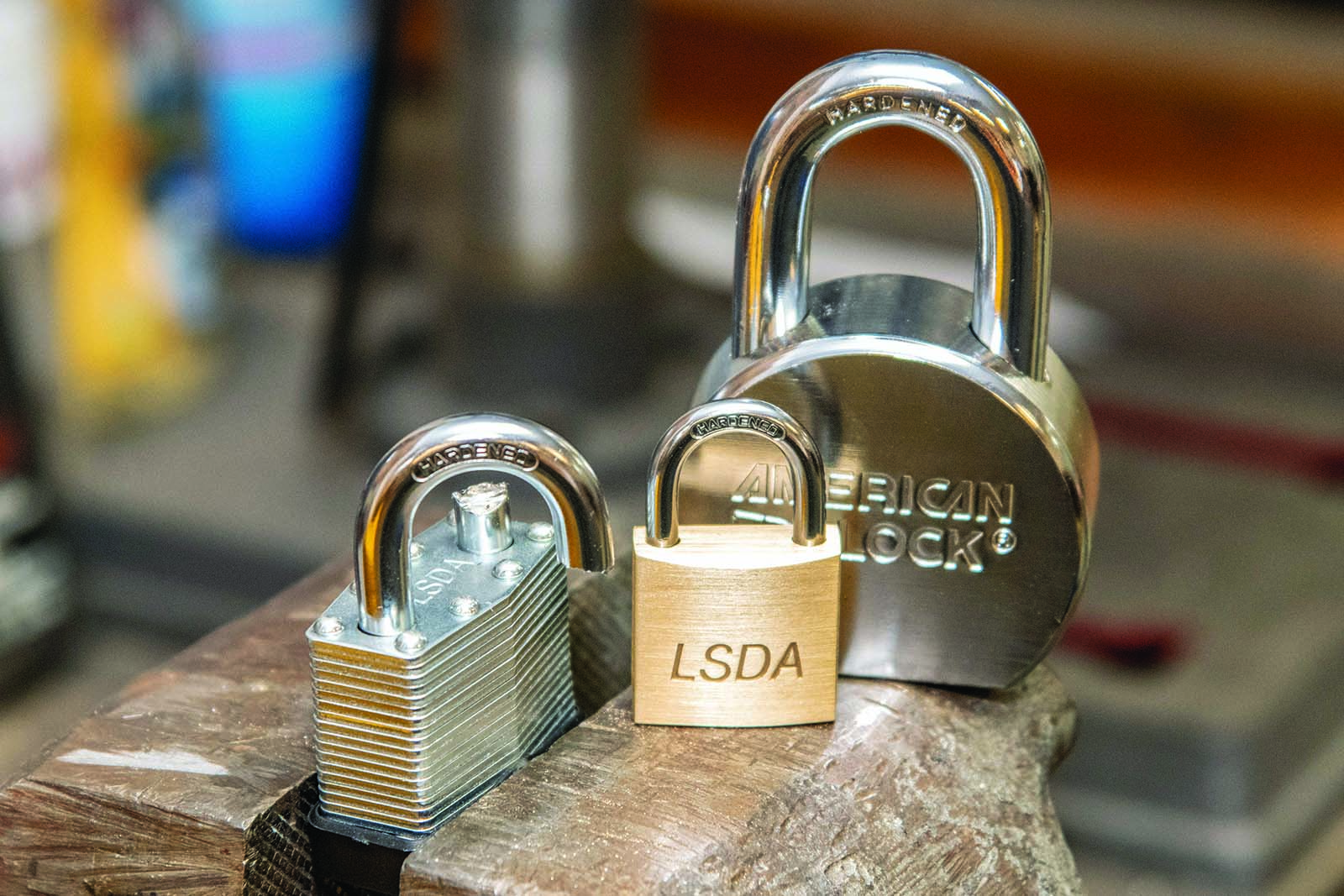
Notice the long shackle on the lock on the left. It would be easy to use a prybar to break the lock. The other locks shown here have shackles that are mostly hidden or entirely hidden. It’s harder to cut or pry what you can’t easily get to.
Select the biggest shackle that will fit.
The thicker the shackle, the more difficult it will be to cut. Consider locks that have a shackle with at least a 5/16-inch diameter. But always know the size of the holes where your locks will go to ensure they will fit on your equipment.
Select locks with shackles that are hidden or difficult to get to.
Ideally, you should purchase locks that have hidden shackles to prevent prying and cutting. If that is not possible, then keep the space between the shackle and body of the lock to no more than ¾ inch. Long shackles are easier to break with simple tools like a prybar.
Pay attention to the keying mechanism.
High-security locks with side-bar keying mechanisms are the best. Make sure locking mechanisms have five or more pins. In addition, select locks that have two-dimensional (horizontal and vertical) pins.
Consider multiple locks that use the same key.
Having a key that will fit all of your locks means employees will have an easier time using them.
Make sure the lock is protected from the elements.
Grit and sand are enemies of locks exposed to the elements. Some locks come with covers that protect their locking mechanisms. As an additional benefit, look for a rubber gasket where the shackle opens.
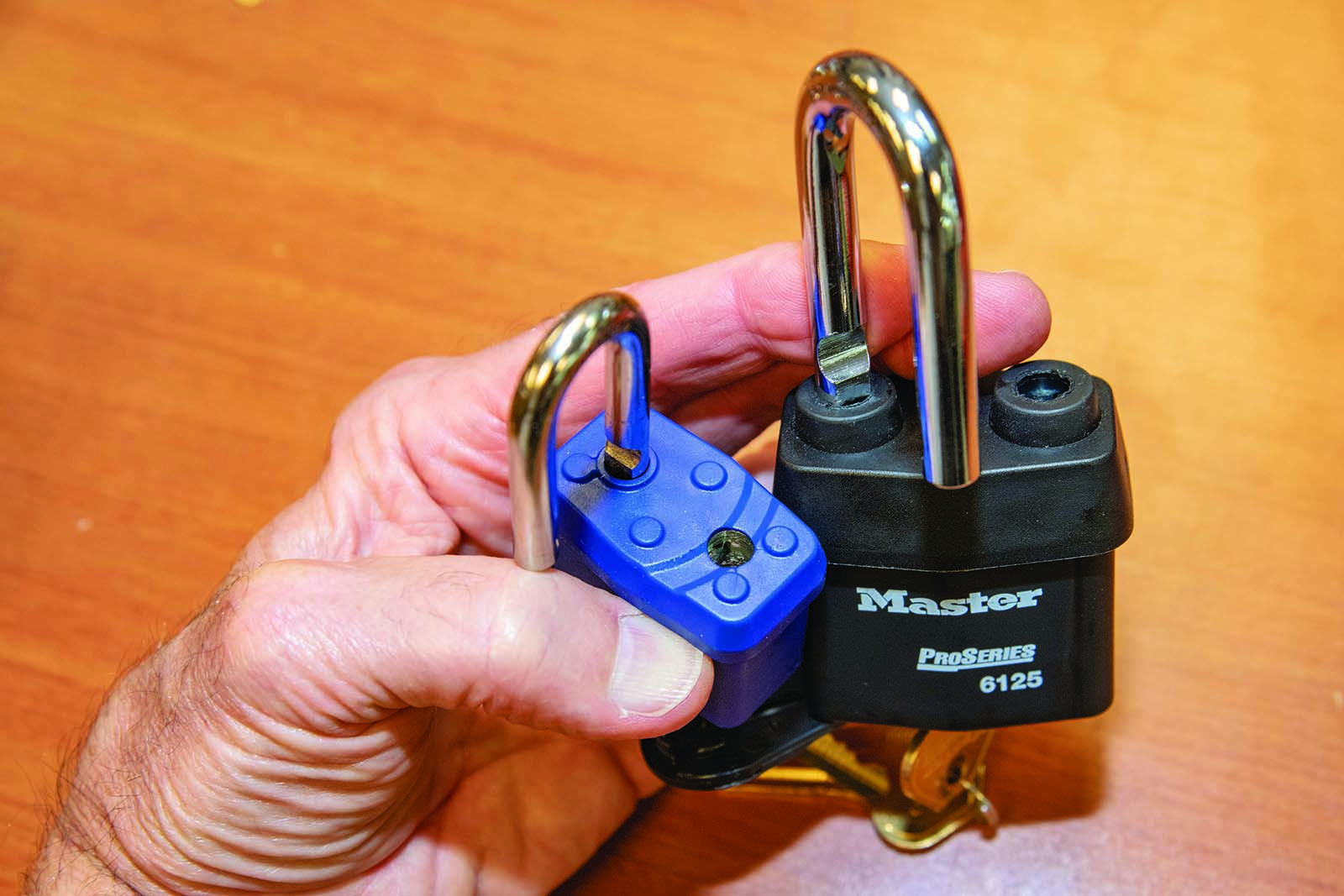
Keep your locks properly lubricated.
Locksmiths will warn you not to mix a graphite substance with any liquid product. Pick the preferred lubricant and stick to it.
CONSIDER SPECIAL LOCKS
Some of your equipment may benefit from purchasing special kinds of locks.
For gooseneck trailers, you can place a coupler and locking mechanism in such a way to keep thieves from pulling out the tube.
Coupler ball locks are popular security devices. These locks consist of an external ball that is fitted into the coupler and locked in place. This prevents thieves from attaching your trailer to the ball of their truck.
Coupler locks come in many shapes, sizes, and materials.
5. GPS Asset-Tracking Deterrents
Wireless GPS tracking devices use a battery that manufacturers claim will last five years. In other applications, the GPS unit is hard-wired. Some come with a monthly service fee and a centralized tracking service. Other GPS systems use a mobile app.
The obvious advantage to GPS tracking devices is if a trailer is stolen, you can track it with a smart phone or tablet.
Be sure to place conspicuous decals on all four sides of your trailer that the trailer is equipped with a GPS tracking device, even if it’s not. Many thieves will pause for a few moments to determine if the GPS tracking device warning is real or a bluff. In the time it takes them to read the signs, thieves will have to decide if they want to take the chance if the warning is real or not.
6. Noise Deterrents
Using today’s technologies, your mobile phone can notify you that someone has broken into your trailer. There are alarm systems that are activated when an enclosed trailer’s door is forced open. Some systems will automatically set the emergency brakes on the trailer when it suspects an unwanted entry.

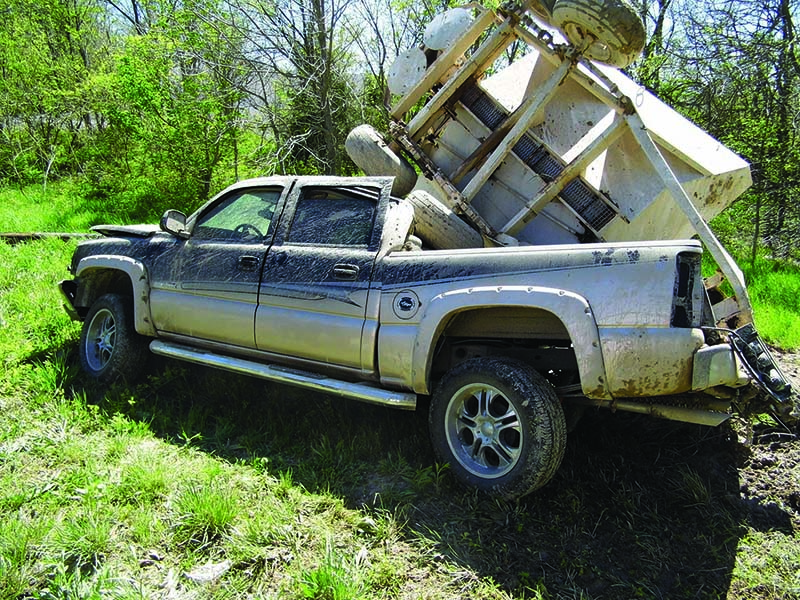
UNDERSTAND YOUR INSURANCE
If you buy insurance to cover losses (such as a stolen trailer or equipment, damage to your trailer in an attempted heist, or liability and losses if the trailer is in an accident), but you never read the policy or meet with your agent, you may get an unexpected surprise when you file a claim. Hoping and assuming your insurance will pay for such damages or losses is not the position you want to be in when you make a claim with your agent. What you want to know is whether you are covered before a theft!
Ask Questions Before Reporting a Theft
If you’ve really tried reading your entire insurance policy, you will understand that it was written by lawyers for lawyers. With so much mumbo-jumbo, it is difficult to pinpoint what coverage you may or may not have. That is why the annual visit with your insurance agent is so critical.
IT’S WORTH MEETING WITH YOUR AGENT
Most insurance agents try to contact their clients yearly to go over the details of what the policy does and does not cover. More often than not, clients tell their agents that they are too busy to meet. When agents leave messages, their calls often go unanswered.
But ask yourself: How can an insurance agent be your adviser if they don’t know what’s changed in your home, business, or farming operation? It’s an agent’s job to advise you, but that advice is only as good as the information they have to work with. Relying on Lady Luck is not the way to deal with insurance, and ignoring the agent is not in your best interest.
ARE YOU COVERED FOR SUCH EVENTS?
Here are seven questions you should ask your insurance agent to help you determine if your current policies are providing coverage to protect your home, business, farm, and trailer.
1. Is the trailer insured under the correct person, farm, or business entity?
Remember you can’t insure something you don’t own. Before you start thinking about coverage, make sure the trailer is listed on a policy for the proper owner. If a trailer incurs physical damage while being used, the owner of the trailer will file the claim.
2. Is the trailer or its contents used for a business, a farming operation, or just for personal use?
People use trailers in a variety of ways with different contents inside them all the time. You must remember that if you need to file a claim, there could be multiple policies involved depending on the situation of a loss. For example, the owner of the vehicle pulling the trailer could be a different policy than the policy of the trailer owner. And the contents inside the trailer could be owned (and covered) by someone else entirely.
AN AGENT’S FRUSTRATION
One of my clients had a trailer he assumed was covered. The client said, “What do you mean, I’m not covered?” I said, “Did you call us when you bought the trailer?” He admitted he had not, because he assumed the trailer was covered. In the insurance world, never assume anything is covered unless the agent says it is.
NEVER BUY WITHOUT NOTIFYING AND ASKING THE AGENT
If you buy something, make sure your insurance agent is one of the first people you contact. The agent may tell you that you don’t need to do anything. On the other hand, the agent may say it’s not covered. Then it’s left to you to decide if you want to cover those liabilities.
Talking with your agent is a win-win for both of you.
Your agent learns what you are doing and you learn what needs to be covered by insurance.
3. Is my trailer covered for physical damage and liability?
There is a misconception that trailers are automatically covered when they are attached to the vehicle if involved in an accident. Normally, the trailer is covered for liability when it is attached, but unless you have a separate policy for the trailer, you may be looking at picking up the repair and replacement cost. Talk with your agent to fill the gaps by adding endorsements or policies.
Liability for the misuse of stolen items within or on the trailer may be a separate issue. For example, if thieves or recipients improperly use restricted-use pesticides, they may harm humans or contaminate the environment, leading to substantial litigation.

4. Does it make a difference if the trailer is connected or unhooked?
Insurance agents will often write a separate policy (similar to a policy written for an automobile) for a trailer to ensure it has proper coverage. Some policies do not cover the damage done by or to a trailer when it has been separated from the towing vehicle.
5. Is my trailer covered in the event it is stolen?
Another misconception is that all trailers have automatic coverage as long as you have insurance on the vehicle you use to pull it. If you have spoken with your agent about your trailer, chances are they advised you to purchase separate insurance coverage. You do not have to insure your trailer at all if you choose to assume your own risk.
6. Are my tools and equipment covered?
The chances that your trailer policy covers stolen equipment are slim. Covering your tools and property often requires a separate policy.
7. How do you evaluate the replacement cost for a trailer or equipment like a skid steer or tools that might be stolen?
If someone asked you right now to list everything on or in your trailer and the value of that equipment, could you do it? Chances are, without looking, you would probably not remember a fraction of what you have or what it is worth. This is why it is important for you to keep an updated inventory of what you own.
You may ask yourself, “What’s my 10-year-old trailer worth? Or an antique tractor?” Most of the time, the trailer’s value depends on its age at the time it was stolen. By using the purchase cost, the insurance company can calculate the depreciation and estimate a fair settlement value for the trailer.
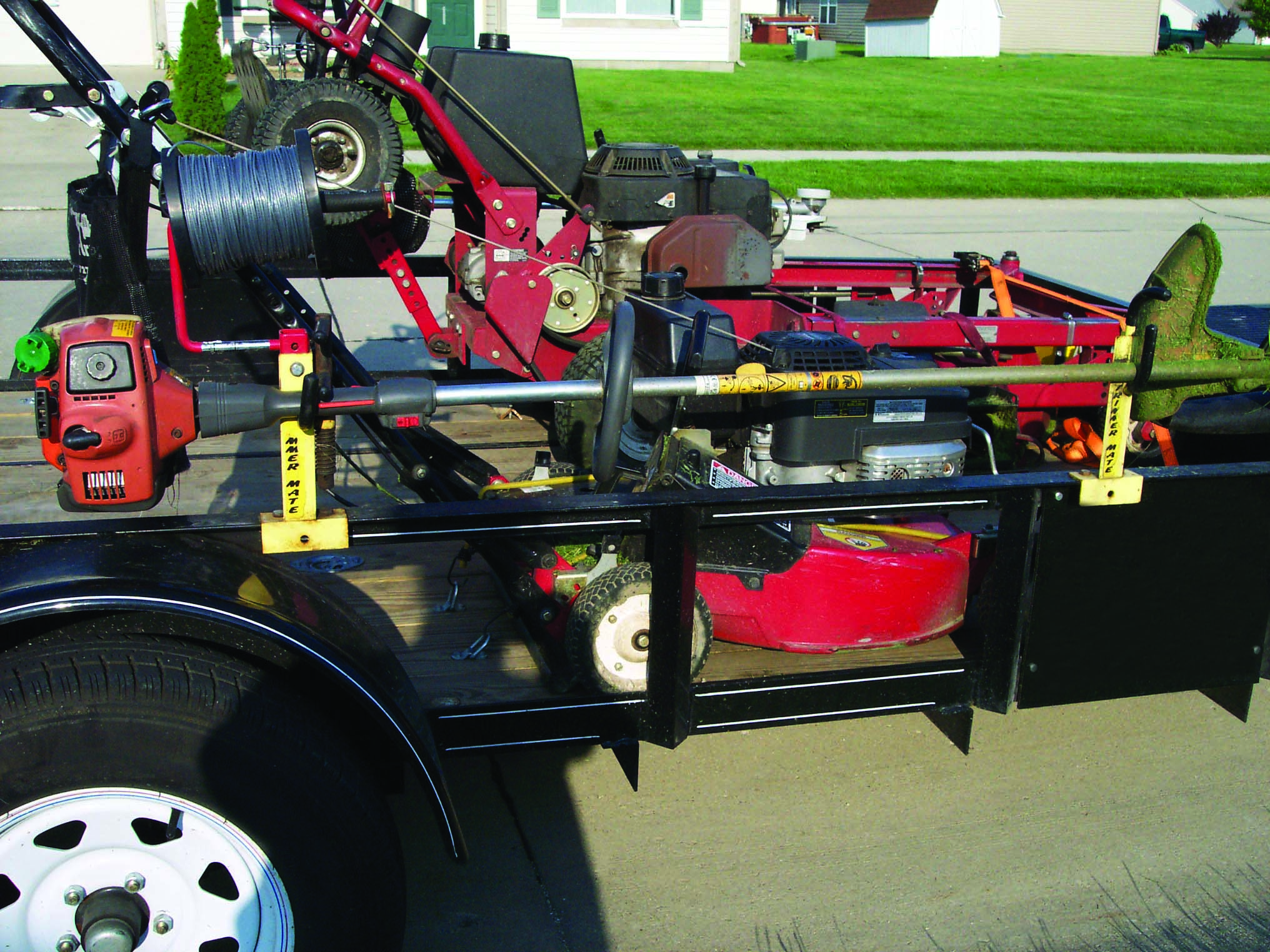
Today, most insurance companies rely on third-party vendors to estimate the true value of trailers and equipment. Since insurance companies may be responsible for replacing stolen items, they will ask you to fill out forms and to list everything that was stolen. The agent may ask you to provide receipts or other information you have for the items you list. They may request model numbers, dates of purchase, and other information for larger equipment.
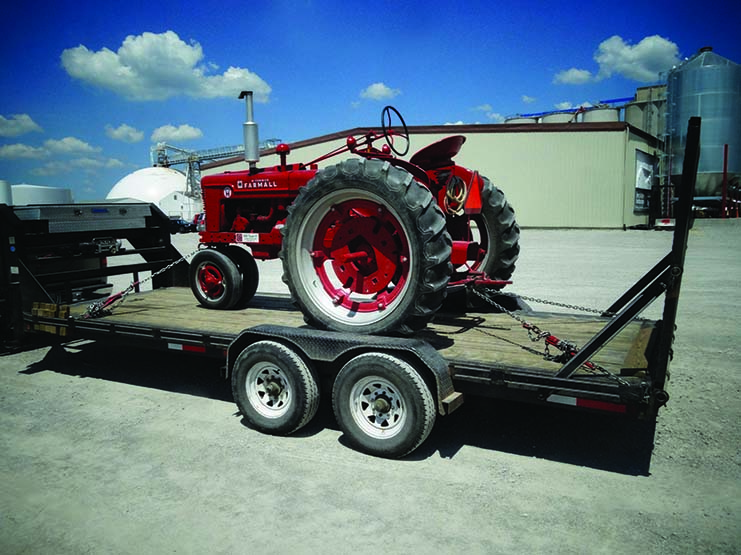
One of the easiest things you can do to document what you own is to create a video or take photos of what you normally carry in or on your trailer. If someone steals your stuff, the claim process will go much smoother and faster if you have evidence that is documented by videos and/or photographs to back your claim.
Most insurance companies are willing to pay their fair share for any covered losses, but no more than their fair share. This is why “hard” proof (such as videos, photographs, or lists of stolen items) is critical.
Depending on what is being insured and how the insurance company provides the protection package, ATVs, bikes, Bobcats, tools, skid steers, bulldozers, combines, and backhoes may be on separate policies as well as on a policy for the trailer. Don’t be surprised if you end up with multiple policies covering the trailer and its contents.
It is better to ask “What does my auto insurance cover in the event of a trailer theft or accident?” before a trailer is stolen or wrecked. Assuming you are covered is a gamble you should not be willing to take. It’s always better to rely on facts rather than on a roll of the dice.
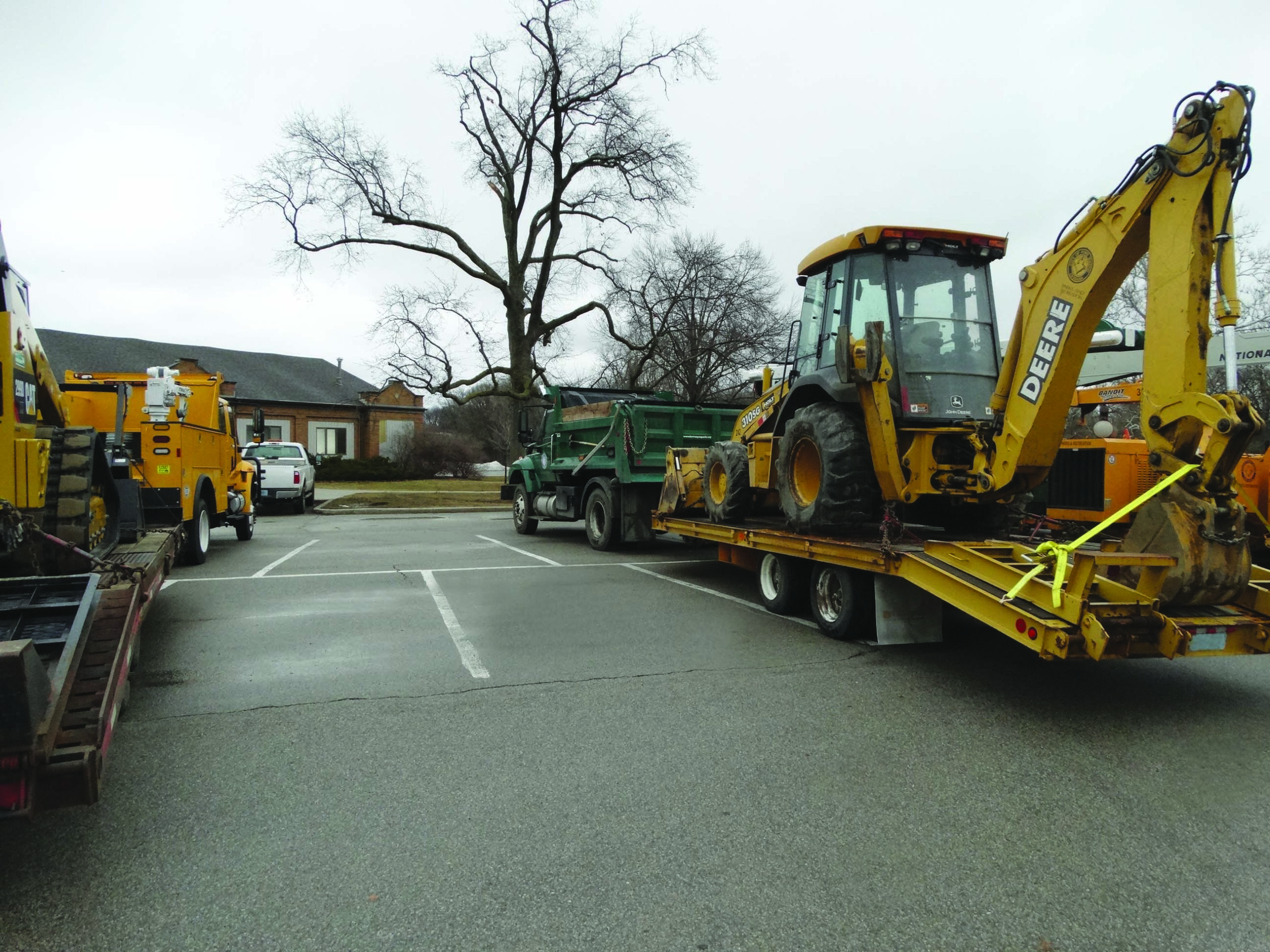
MAKE CERTAIN YOUR PROPERTY IS INSURED
It’s the start of a new day, and when you go out to hook up your trailer, you find it’s not where you parked it the night before. You ask employees if they took the trailer to a jobsite without telling you. You probably know the answer before you even ask the question.
As if having the trailer stolen wasn’t bad enough, you go over the edge when your insurance agent says, “Sorry, but you didn’t have coverage for the trailer or its contents.” You reply,
“That can’t be right. I assumed that I had coverage since you are insuring all of my trucks, my home, and business!” At this point, there’s nothing the agent can do for you.
After your property is stolen is not the time to learn this lesson. Never assume your trailer and contents are covered without talking to your insurance agent first.
Help Police Solve the Mystery of the Stolen Trailer
On a scale of one to 10, the odds of your stolen trailer being recovered are probably about three. Recovering the trailer’s contents and equipment is nearly zero.
Although those odds are not the best, there is always the possibility that you might be one of the lucky ones whose trailer and contents are recovered by law enforcement. If there’s any hope of recovery, you must call law enforcement as soon as you discover the theft. The longer you wait, the less likely that the trailer and all your property will be located and returned to you.
Once informed about the theft, law enforcement officials will document the properties stolen and start the search.
It is likely that law enforcement will ask you several questions about your stolen property, including:
• When was it stolen?
• Where was the trailer parked?
• What is the make and model number of the trailer?
• What is the license plate number?
• What is the VIN number?
Law enforcement will also ask you supplemental questions, including:
• Are there any specific markings or lettering on your trailer or its contents?
• Was there anything in or on the trailer?
• Can you describe the trailer?
This last question may be the most important. Giving an accurate description of your trailer may give you the best chance of recovering your property. If you can only tell the responding officer that the stolen trailer was a white, 5 x 8 enclosed trailer, then the odds of recovery are slim to none.
KNOW AND RECORD THE VIN
In states where trailers are registered with the bureau of motor vehicles, the vehicle identification number (commonly referred to as the VIN number) is like a Social Security number or thumbprint for the trailer.
One trailer repair shop indicated that the VIN number could not be read on half of the older trailers on the road. Without knowing the VIN number, your chances of recovering your trailer are zero. Make sure you can find and keep the paperwork that has the trailer’s VIN number.
Such a generic description is of little or no value with helping police track down a stolen trailer. That’s because there could be hundreds of trailers (just in your community alone) that also fit the description you gave.
Today, trailers of the same make are basically manufactured exactly alike down to the nuts and bolts when they come off the production line. The real question is: Have you done anything to your trailer that makes it stand out from all of the others that rolled off the same assembly?
Unfortunately, the answer for many (maybe most) trailer owners is that the trailer looks exactly as it did when they purchased it, thus lowering the odds of it being found.
Photographs are valuable, but your photos need to include distinguishing marks that differentiate your trailer from all other look-alike trailers. Provide law enforcement with specific photographs that show unique features to increase the odds of them recovering the stolen trailer.
Unique trailer features might include:
• A personalized license plate
• An add-on toolbox
• Signs on the sides of the trailer
• Decals or numbers on top of the trailer
• Numbers stenciled or welded on the trailer
• Unique damage to the trailer, such as a dented back door, fender, etc.
If you installed any GPS tracking equipment to the trailer, tell the police that you know the exact location of the trailer. Never attempt to recover the trailer yourself, because you may be putting yourself and others in harm’s way. Let the police do their work off recovering your trailer and, hopefully, arresting those who were brazen enough to take it. In addition to reporting the theft to the authorities, you may want to consider three additional options:
1. Record the trailer theft on the Stolen 911 website: stolen911.com/stolen-property/stolen-trailer-theft.
2. Post photographs of the trailer on social media.
3. Visit local pawn shops to see if any of your items have been sold. The Quik Pawn Shop blog has more information, including how to report your stolen items to pawn shops: blog.quikpawnshop.com/how-do-youreport-a-stolen-item-to-a-pawn-shop.
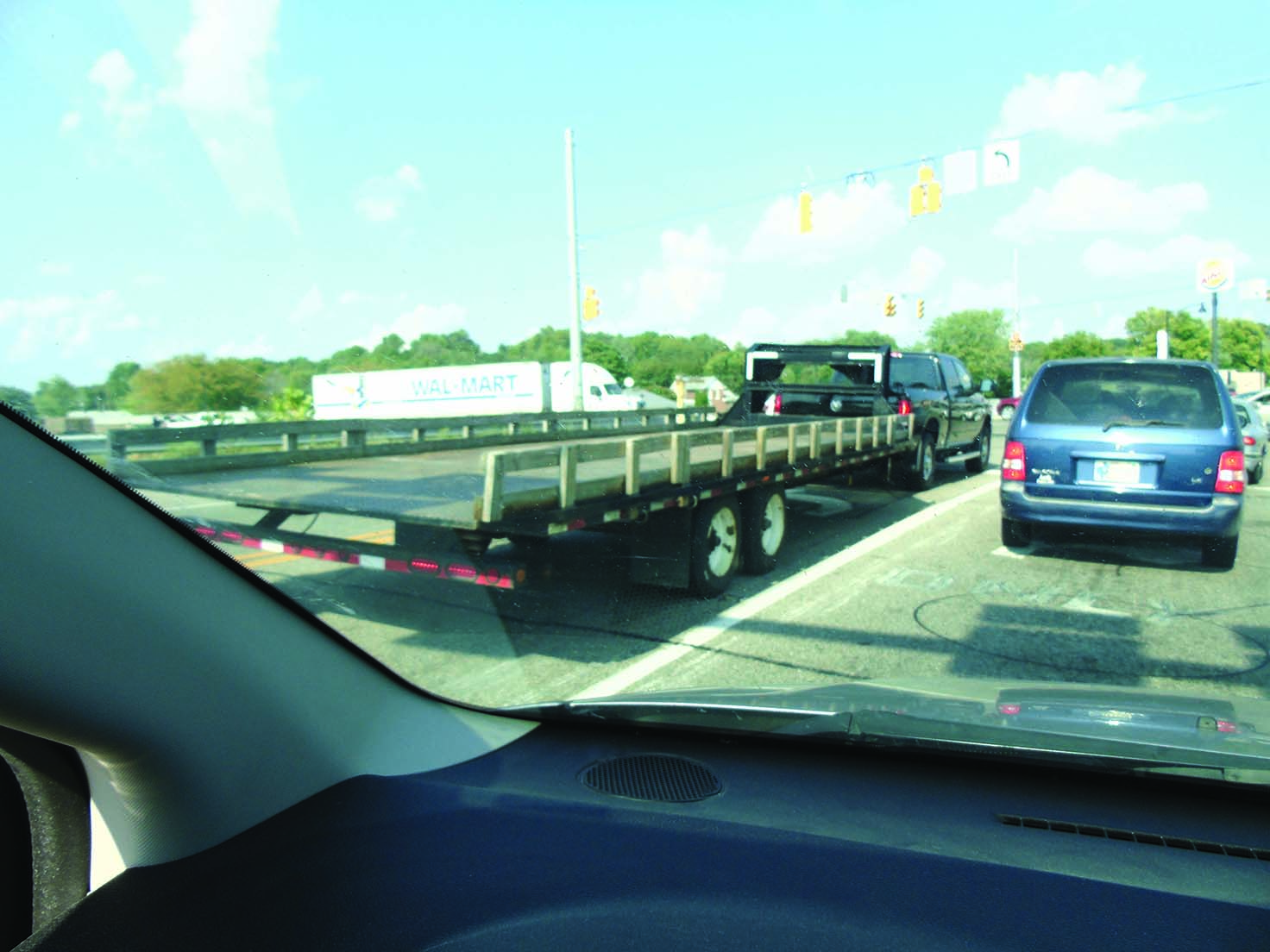
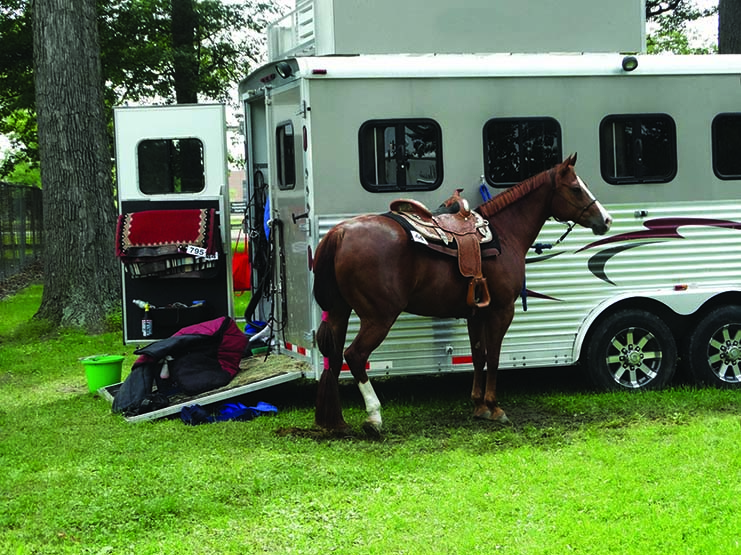
Conclusion
What we hear about trailers stolen in our community is just the tip of the iceberg, because many thefts never make the local news. You may also have been the victim of a stolen trailer. Can you remember those unpleasant memories when you went out to hook up or load a trailer only to find an empty space where it had been parked the night before? Gone without a trace!
Large trucking and construction firms often hire guards to protect their assets. However, most companies rely on devices and practices to safeguard their possessions.
Most of the security tips in our publication are rather simple, easy to adopt, and not overly expensive. Many of the devices will at least make thieves stop and think whether they want to continue with their attempt of stealing your trailer. Forcing someone to spend a few minutes battling security devices may be just enough to deter them from stealing your property at all. Professional thieves can exploit weaknesses in your trailer security system. That is why we purchase insurance to cover such losses when they happen.
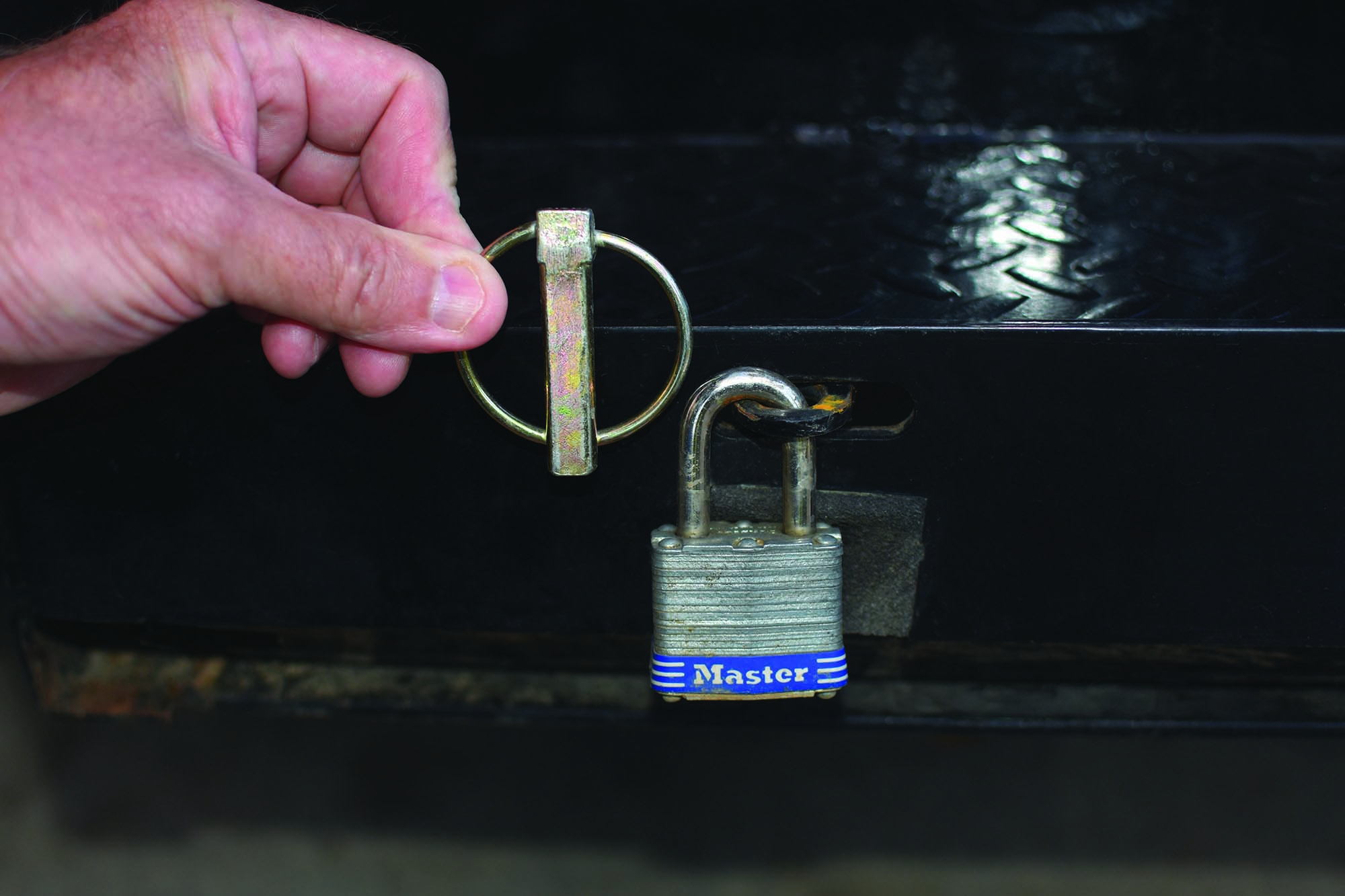
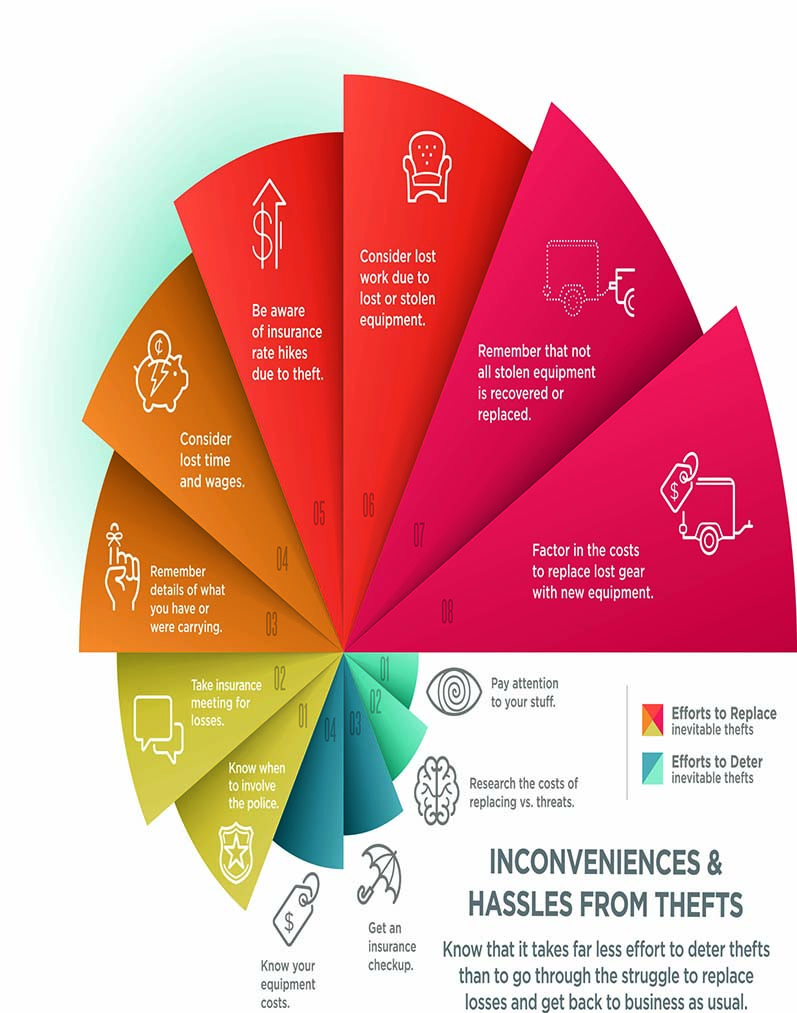
But, it’s better and easier to think about deterring thefts than reporting thefts to the police and being reimbursed by insurance. Unfortunately, the majority of trailers are easy targets for even the most unsophisticated thieves.
Where’s the proof to support that statement? Just look at any parked trailer and see how easy it would be to take that trailer off the owner’s hands. In less than a few minutes, a thief can steal a trailer and make several thousand dollars.
We hear the same statement over and over from trailer owners, “If they want it bad enough, they will get it!” While the statement is true, it isn’t a license for owners to do nothing at all to protect their property. Simply put: Doing something to protect your property is worth your time and effort.
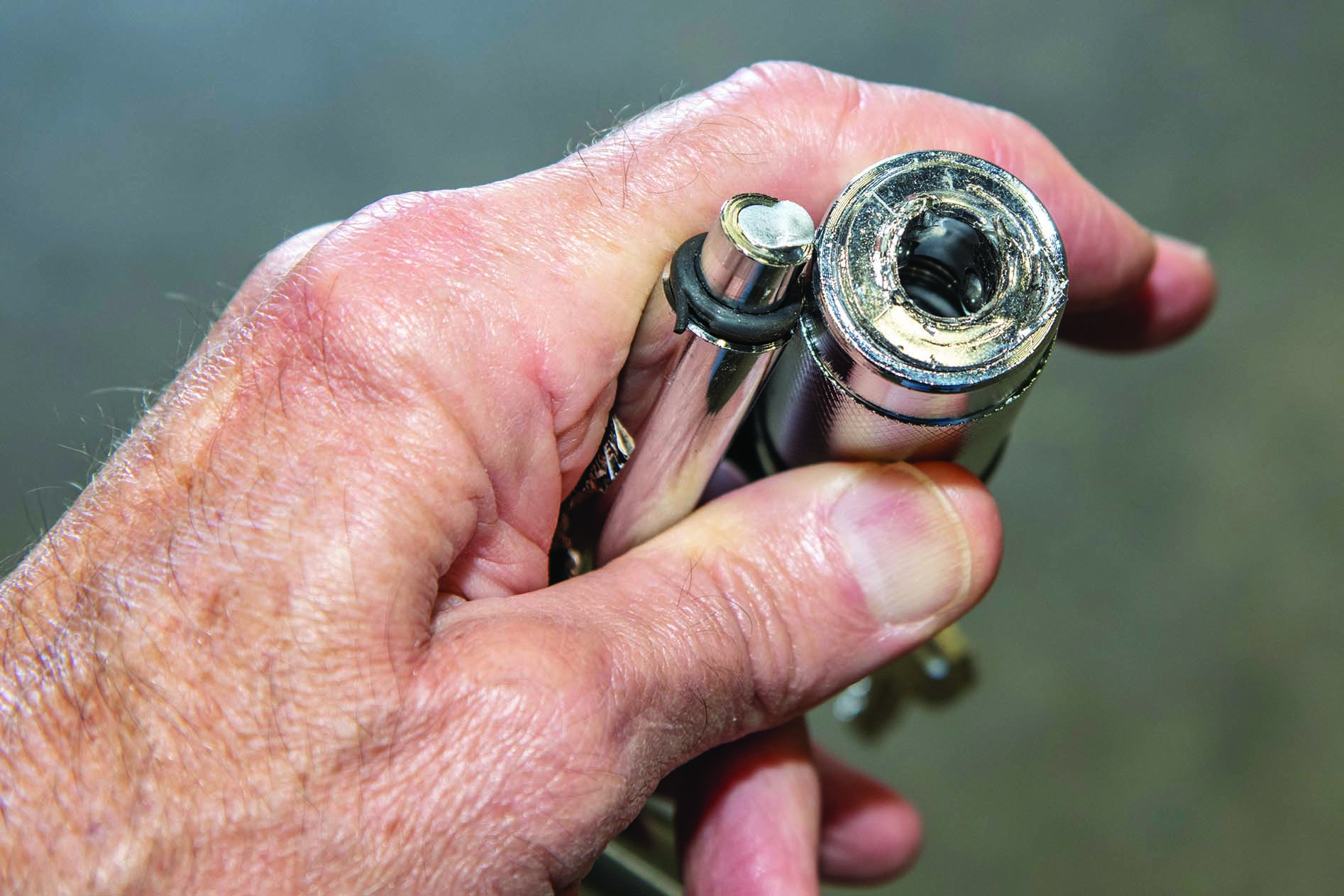
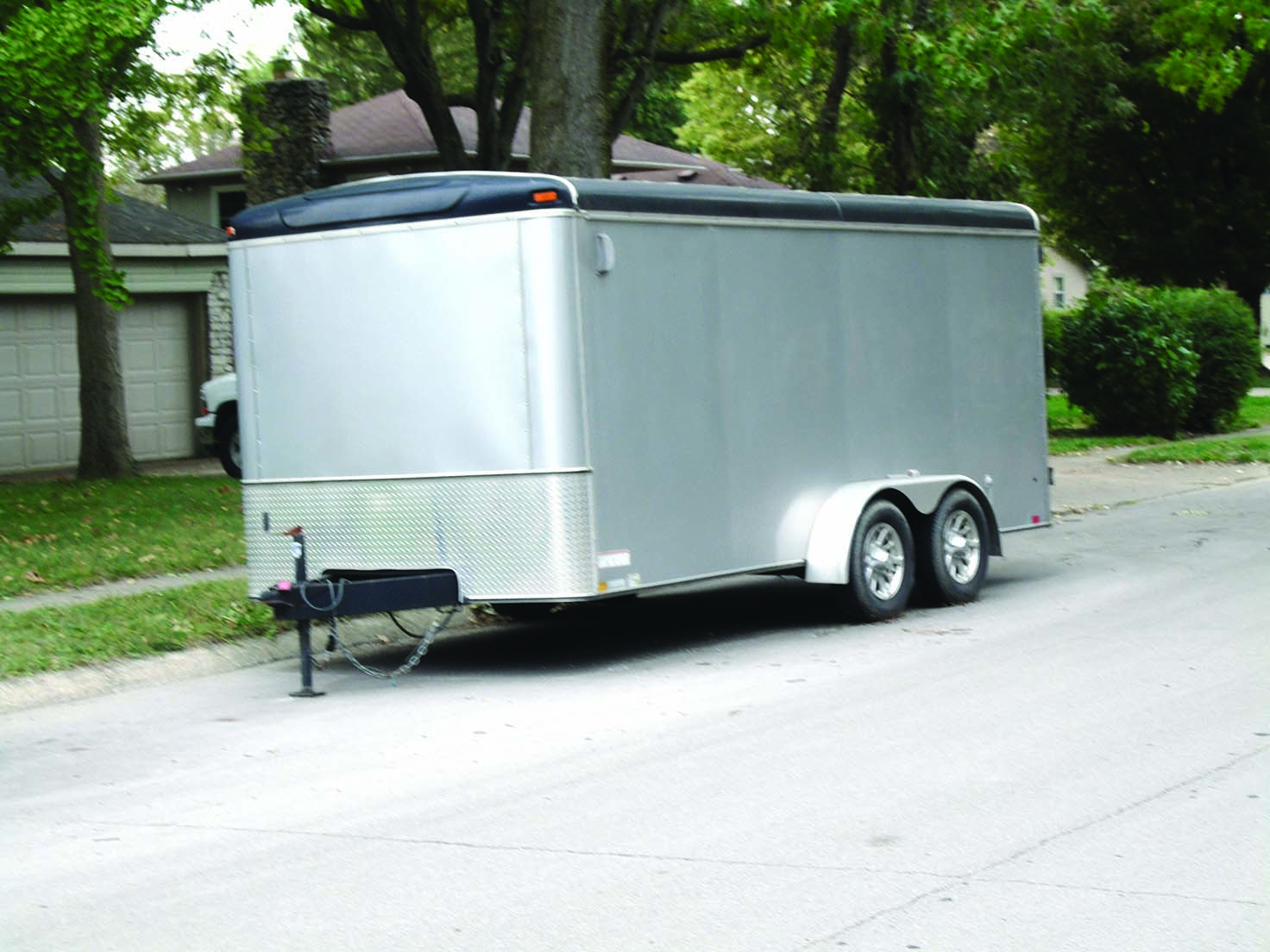
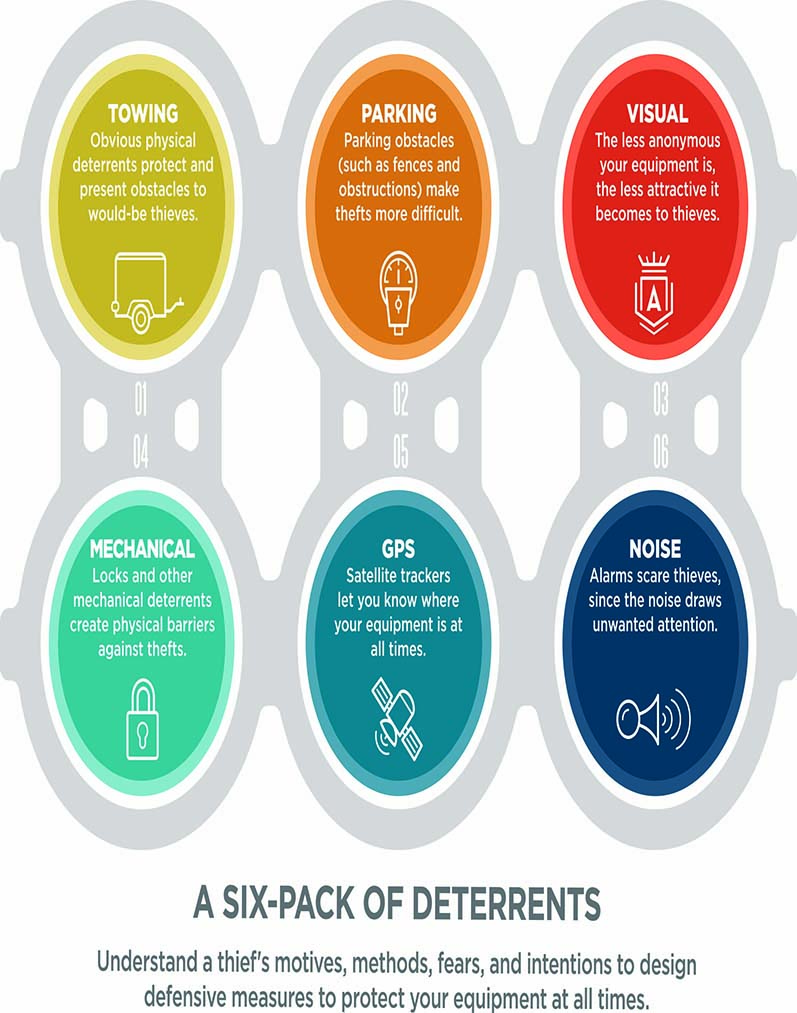
Acknowledgments
Thanks to Dawn Minns for graphic design. Thanks also to the following individuals who provided valuable comments and suggestions that improved this publication.
Jim Colias, Matt’s Lawncare
William Davis, Purdue University Southwest Purdue Ag Center
Rex Fields, Indiana Farmer
John Hall, University of Idaho
John Leuck, Purdue University
Steven McKay, Cornell University
Robin Ridgway, Director of Environmental Health and Safety Compliance, Purdue University
Scott Royer, Royer Trailer Sales
Brad Shelton, Purdue University Feldun Ag Center
Jake Trahan, Nutrien
Dustin Warder, Asmark
J. Warren, Indiana Farmer
Disclaimer
This publication is intended for educational purposes only. The authors’ views have not been approved by any government agency, business, or individual and cannot be construed as representing a perspective other than that of the authors. The publication is distributed with the understanding that the authors are not rendering legal or other professional advice to the reader, and that the information contained herein should not be regarded or relied upon as a substitute for professional consultation. The use of information contained herein constitutes an agreement to hold the authors, companies or reviewers harmless for liability, damage, or expense incurred as a result of reference to or reliance upon the information provided. Mention of a proprietary product or service does not constitute an endorsement by the authors or their employers. Descriptions of specific situations are included only as hypothetical case studies to assist readers of this publication, and are not intended to represent any actual person, business entity or situation. Reference in this publication to any specific commercial product, process, or service, or the use of any trade, firm, or corporation name is for general informational purposes only and does not constitute an endorsement, recommendation, or certification of any kind by Purdue University. Individuals using such products assume responsibility that the product is used in a way intended by the manufacturer and misuse is neither endorsed nor condoned by the authors nor the manufacturer.
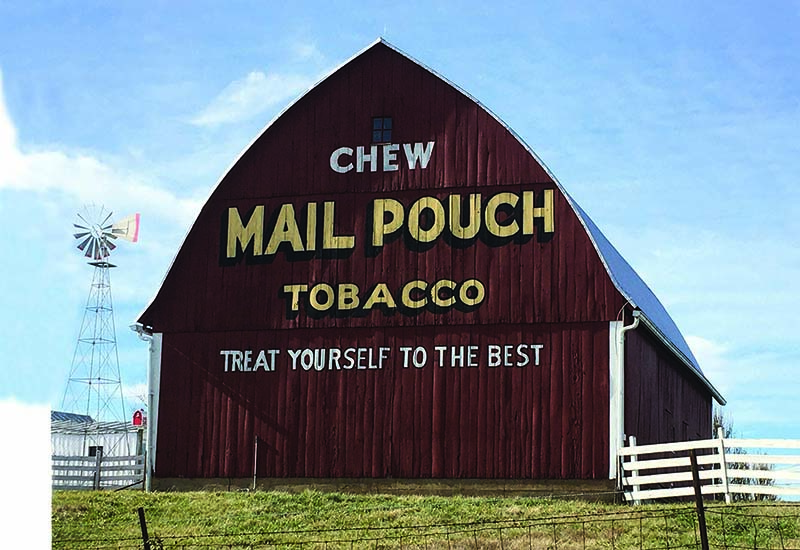
Reference in this publication to any specific commercial product, process, or service, or the use of any trade, firm, or corporation name is for general informational purposes only and does not constitute an endorsement, recommendation, or certification of any kind by Purdue Extension. Individuals using such products assume responsibility for their use in accordance with current directions of the manufacturer.
Find out more at THE EDUCATION STORE edustore.purdue.edu
June 2020

